- English (EN)
- Español (ES)
- Português (BR)

Is Jakarta Safe? Crime Rates & Safety Report
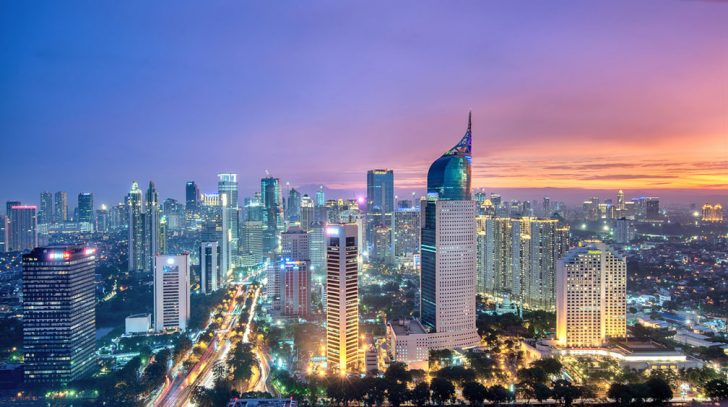
Indonesia : Safety by City
Being the country’s economic, cultural and political center, Jakarta is the capital and largest city of Indonesia , it is the most populous city in whole Southeast Asia.
Heavy traffic and high level of pollution are present in the city, but it still attracts tourists with its exciting nightlife, sandy beaches followed by diving and surfing and vibrant shopping areas.
The city is the center of Indonesian culture and you are guaranteed to meet people of all sorts here.
The Old City, with the Dutch style buildings, stays as a reminder of how the city looked like before the modern buildings were built.
Among other areas interesting to include on your agenda if coming here are Jakarta History Museum, Maritime Museum and Sea World Indonesia.
- Warnings & Dangers in Jakarta
OVERALL RISK: MEDIUM
When the overall risk is in question, Jakarta can be considered not so safe city. Tourists need to exercise a high degree of caution in Jakarta, and this is all due to the high threat of terrorist attack. Your security is at danger at all times, so you need to pay special attention. Before deciding to come here, you should watch the media to get the latest information about safety.
TRANSPORT & TAXIS RISK: MEDIUM
People are friendly, hospitable, and helpful, but make sure to keep away from the mini-bus drivers and some notorious taxi drivers. There are unfair taxi drivers that do not use meters. Public transport in Jakarta can be considered safe, but overcrowded and thus targeted by pickpockets.
PICKPOCKETS RISK: LOW
Taking into account the fact that it is a city with a high touristic flow, pickpocket risks are possible. To decrease the chances of being robbed, little precautions are enough. Theft and other petty crimes, such as robbery and bag snatching, are frequent with violence, which is sometimes used.
NATURAL DISASTERS RISK: HIGH
Natural disasters occur. Earthquakes and tsunamis are common in Jakarta and the eruption of the volcanoes might be a threat because they can erupt at any time and cause widespread loss of life and destruction. Floods and mudslides occur during the wet season, and after the water recedes, it leaves the high risk of contracting water-borne diseases. In the event of a natural disaster, follow the advice of local authorities.
MUGGING RISK: LOW
Mugging and kidnapping risks in Jakarta are rare and it is unlikely that you might get assaulted. However, you should not rely on this, and should always practice common sense and make sure to avoid some risky areas at night.
TERRORISM RISK: MEDIUM
Since terrorism is a worldwide threat, tourists need to be careful in case of any suspicious activity. Security in Jakarta tends to be heavy and constant information indicating that terrorists may be planning attacks in Indonesia is received. Attacks might occur anywhere, anytime, including locations frequented by tourists.
SCAMS RISK: MEDIUM
Drink spiking with toxic substances occurs. Fake Arak, dangerous for your health, is often offered to tourists since it costs less because methanol is used instead of alcohol. Scams with credit cards are frequent in Jakarta and criminals use electronic “skimming” to steal credit card credentials and pin code at some ATMs. Some scammers pretend to recognize the victim offering him/her a drink and a ride, to mug him/her.
WOMEN TRAVELERS RISK: LOW
Women can feel safe in Jakarta. There are no reports of foreign women being assaulted, but you should always be vigilant and do not accept help or drink from unknown males.
- So... How Safe Is Jakarta Really?
Jakarta is a huge city with several district s that have strong cultural value, but, unfortunately, many of the buildings are not well preserved.
The area around Old Town covers very interesting places to visit and it is safe, but be aware that the big flow of tourists attracts pickpockets and scammers.
When it comes to crime, you should stay away from the Ancol Port area and other neighborhoods in the North of the city, which have the highest crime rate among other districts.
Criminal problems have become more serious in the last 10 years and pick-pocketing or bag snatching are the most common crimes.
Business travelers need to watch for their laptops, which have been known to disappear even from within office buildings.
In general, as long as you exercise awareness and precaution, avoid walking alone at night and be wary of strangers you do not have to worry about your safety in Jakarta.
- How Does Jakarta Compare?
- Useful Information
For the stays that are shorter than 30 days, you do not require a visa. Your passport needs to be valid for at least 6 months. Visas are available at the airport and they may be paid in cash or credit card. If you intend to stay in Indonesia for more than 30 days, you need to apply for a visa. The period of your stay is calculated from the day you arrive.
The official currency of Indonesia is the rupiah. You can withdraw money from the ATM using your credit or debit card. ATMs are available, but you should always have some money with you since Indonesian taxis do not accept credit cards.
The dry season in Indonesia lasts from May to October and the peak season is August. Jakarta has a tropical monsoon climate. The majority of precipitation falls from November to April. The best part of the year to visit Jakarta is spring and early autumn.
The busiest airport in Indonesia is Soekarno–Hatta International Airport which operates all international and most domestic flights. It is 20 km away from the city. The older Halim Perdanakusuma Airport is used by the military, VIP flights, charter flights, and private jets and several domestic flights.
Travel Insurance
Regardless of how healthy you are, travel insurance is obligatory. It should cover medical expenses since numerous diseases might happen to you such as measles, mosquito-borne illnesses, and Zika virus. Do not consume magic mushrooms because they can cause major health problems.
Jakarta Weather Averages (Temperatures)
- Average High/Low Temperature
Indonesia - Safety by City
- Where to Next?

7 Reviews on Jakarta
Stunning city.
Jakarta is a very busy place so if you are not keen on going to a place where you always have to be moving, go elsewhere. This place seems to get a lot of tourists and the locals do not slow down the pace for no one. I had a wonderful time here with my wife and our friends did not. It was just too busy for them to enjoy it.
I’m sorry, but I live in Jakarta and there arent any terrorist attack neither earthquakes and tsunami’s that occur, the transport risks are not majorly in Jakarta you may be talking about the country itself but to throw this out there it’s safe and even if there are thefts they’re mostly in suburban places
Another citizen.
Noticable earthquakes do happen probably once or twice a year but other then that I agree.
Expériences in the city
I agree with most of informations. Just as usually in any country with high % of poor people, you will consider the difference of their revenue that could push some people to be opportunistic.
Generally it’s advised not to stay alone anywhere and to be connected with local practices. Visiting this city is in itself an adventure. You feel to be part of the last century in some areas.
I will go there again after covid 19
Busy, lively city
I’ve lived 30 years in Jakarta and whilst it is might be not the safest city, it is not also a dangerous place to live at all. Of course, there are some sketchy areas, where there are no tourist attractions. But locals wouldn’t even go there anyway. Just stay in Central or South Jakarta, where it is mostly safe. We have MRT now which really clean and safe. Yes, terrorist attacks occurred a couple of times in the past, but gunshots and gang fights happened almost every day in US cities, which I find more terrifying. Antiterrorism special forces also worked very hard to capture terrorists in our country. We have so many great cafes, restaurants, street food, attractions you should try.
I live in usa. The places that gun violence happens everyday, you would never visit.
Share Your Experience Cancel reply
Your Review
Title of your review
Article Contents
- Jakarta : Safety by City
- Overall Risk
- Transport & Taxis Risk
- Pickpockets Risk
- Natural Disasters Risk
- Mugging Risk
- Terrorism Risk
- Women Travelers Risk
- Weather Averages (Temperatures)
- User Reviews
- Share Your Experience
Popular Destinations

Safety Index
Recent reviews & comments.
- Garth on 10 Most Dangerous Cities In Georgia
- Alex on 10 Most Dangerous Cities in Japan
- Tristan Nash on Canton
- Jones Schultz on Canton
- Jamal Walsh on Canton
Popular US States
- Pennsylvania
Situation in Haiti April 5, 2024
U.s. citizens in haiti, update april 12, 2024, information for u.s. citizens in the middle east.
- Travel Advisories |
- Contact Us |
- MyTravelGov |
Find U.S. Embassies & Consulates
Travel.state.gov, congressional liaison, special issuance agency, u.s. passports, international travel, intercountry adoption, international parental child abduction, records and authentications, popular links, travel advisories, mytravelgov, stay connected, legal resources, legal information, info for u.s. law enforcement, replace or certify documents.
Share this page:
Indonesia Travel Advisory
Travel advisory july 24, 2023, indonesia - level 2: exercise increased caution.
Reissued with obsolete COVID-19 page links removed.
Exercise increased caution in Indonesia due to terrorism and natural disasters. Some areas have increased risk. Read the entire Travel Advisory.
Do Not travel to:
- The provinces of Central Papua (Papua Tengah) and Highland Papua (Papua Pegunungan) due to civil unrest.
Terrorists continue plotting possible attacks in Indonesia. Terrorists may attack with little or no warning, targeting police stations, places of worship, hotels, bars, nightclubs, markets/shopping malls, and restaurants.
Natural disasters such as earthquakes, tsunamis or volcanic eruptions may result in disruptions to transportation, infrastructure, sanitation, and the availability of health services.
Demonstrations occur frequently and have the potential to become violent. Avoid demonstrations and crowds.
Indonesia’s revised criminal code, which takes effect January 2026, includes penalties for defamation, blasphemy, cohabitation, and sex outside of marriage. It is unclear how Indonesian authorities will implement the revised criminal code.
Read the country information page for additional information on travel to Indonesia.
If you decide to travel to Indonesia:
- Monitor local media for breaking events and be prepared to adjust your plans.
- Visit the websites for Badan Geologi (Indonesian Geological Agency, Indonesian language only) for the latest information from the Government of Indonesia on current natural disasters.
- Review the CDC’s suggestions on how to prepare for natural disasters.
- Be aware of your personal safety and security at all times.
- Enroll in the Smart Traveler Enrollment Program ( STEP ) to receive alerts and make it easier to locate you in an emergency.
- Ensure your passport is valid for at least six months beyond your intended stay.
- Follow the Department of State Facebook and Twitter . Follow the U.S. Embassy Jakarta on Facebook , Instagram , and Twitter .
- Review the Country Security Report for Indonesia.
- Prepare a contingency plan for emergency situations. Review the Traveler’s Checklist .
Central Papua and Highland Papua– Level 4: Do Not Travel
In Central Papua and Highland Papua, violent demonstrations and conflict could result in injury or death to U.S. citizens. Avoid demonstrations and crowds. Armed separatists may kidnap foreign nationals.
The U.S. government has limited ability to provide emergency services to U.S. citizens in Central Papua and Highland Papua as U.S. government employees must obtain special authorization before traveling to those areas.
Travel Advisory Levels
Assistance for u.s. citizens, indonesia map, search for travel advisories, external link.
You are about to leave travel.state.gov for an external website that is not maintained by the U.S. Department of State.
Links to external websites are provided as a convenience and should not be construed as an endorsement by the U.S. Department of State of the views or products contained therein. If you wish to remain on travel.state.gov, click the "cancel" message.
You are about to visit:

Is Jakarta Safe? Must-Know Tips To Stay Safe In Indonesia’s Capital
B ustling Jakarta has earned a bad rap in recent years, with stories of pickpockets, assaults, and scams targeting tourists. It’s even been claimed as one of the world’s most dangerous cities. So it’s natural that the question – is Jakarta safe? – pops up when thinking of visiting this huge coastal city. Especially when some governments recommend that tourists should avoid Indonesia’s capital completely.
However the reality is that considering the size and density of Jakarta – which holds around ten million people – this city is much safer than many think.
Crime – especially petty crime – does exist here though. As such, tourists should be vigilant, and exercise caution. Below we outline more about crime in Jakarta, tips to stay safe and scams to avoid.
But what about violent crime? Is Jakarta safe for female travelers, or LGBTQ tourists? What about safety at night? What reputable and safe taxi companies should you use? We cover all here, in our rundown of what you need to know when visiting Jakarta:
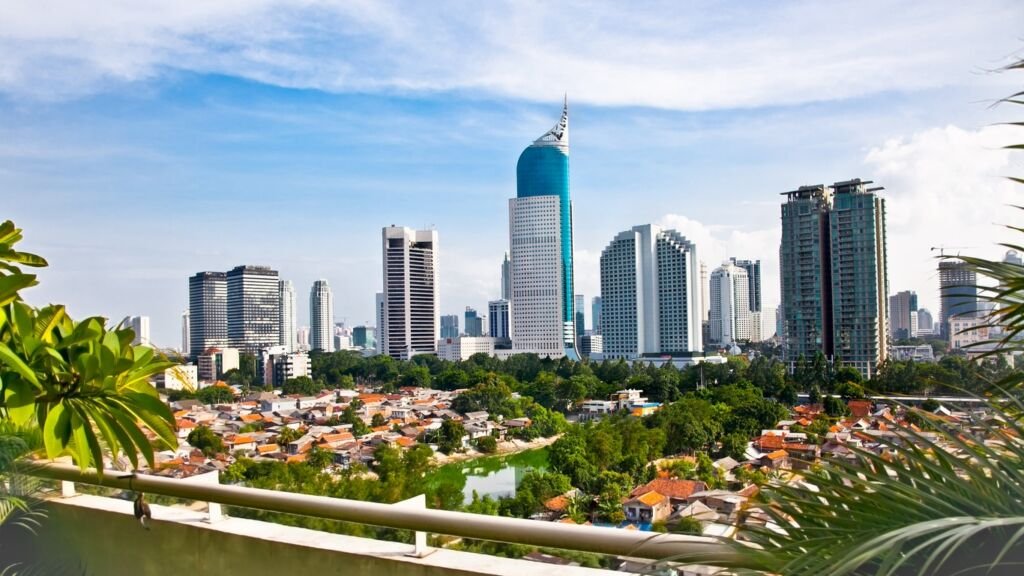
How Safe Is Jakarta: Crime
Violent crime isn’t common in Jakarta, however it does exist. Assault and home robberies tend to take place at dusk and dawn. While most robbers don’t intend to harm victims physically, some have been known to use weapons.
Therefore keep windows locked – not open – at night, and ensure doors and residences are secure. If the hotel, airbnb, or apartment you are staying in has security cameras, or security personnel, that’s even better.
Crime tends to pick up a little before and during the holy month of Ramadan due to extra cash pressure on families around this time. Therefore it’s worth keeping this in mind if traveling to Jakarta and Indonesia during this month.
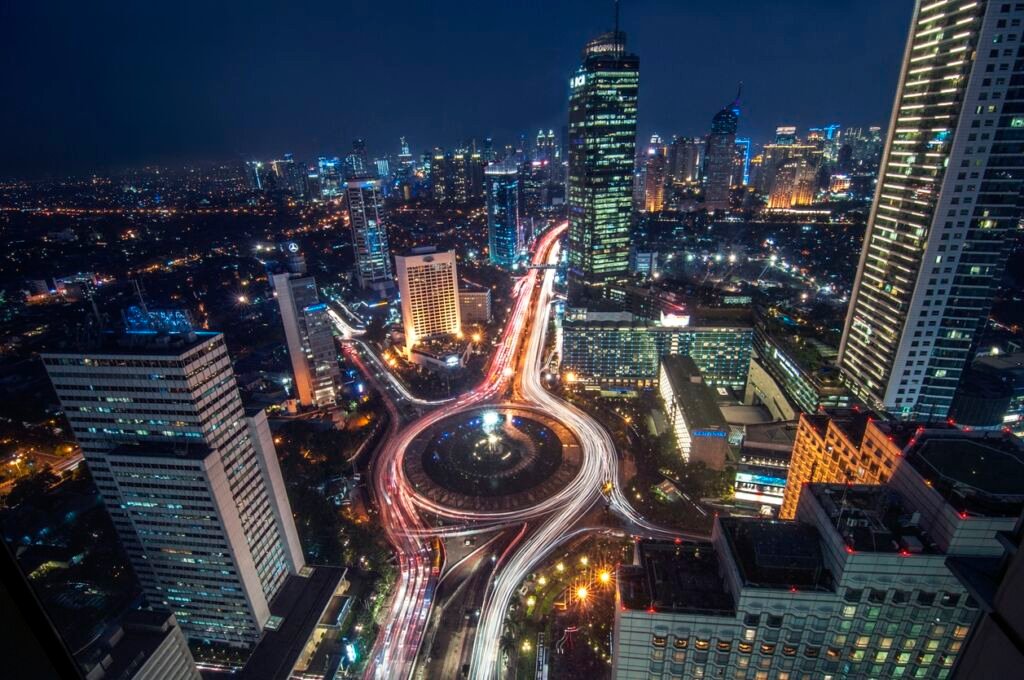
Pickpockets & Petty Crime In Jakarta
However the main issue for tourists and travelers to Jakarta is petty theft. In particular snatch and grabs are becoming more common.
Whilst some of these robberies take place on foot, the vast majority of thieves use motorbikes and scooters to quickly grab bags, wallets, phones and similar items from unsuspecting tourists. Muggers will even attempt to grab items from individuals also riding motorbikes.
Some tourists have also reported bags being stolen whilst in busy areas, such as malls and restaurants.
Therefore be vigilant and take precautions. Keep bags secured. However be very careful with bag straps – an injury can occur if a thief grabs a bag and the victim is dragged along with it. Furthermore, don’t flash money, or wear expensive jewelry, and take extra care using your phone or camera in public.
There’s also been several reports of taxi drivers being involved in thefts. Rather than carry out the robbery themselves, they work with criminal gangs by taking victims to a remote area of the city where a team of muggers are waiting. These criminal gangs will then demand money and personal items, or even an ATM pin-code and card, and are sometimes armed. Female solo passengers tend to be the victims – see more on our section below on ‘How safe is Jakarta for female travelers’.
To avoid falling victim to such a theft, it is important to only take a licensed regulated taxi. The best thing to do is get your hotel, or a trusted friend, to recommend a licensed taxi, and use them. It may cost a little more than hailing a cab on the street, but will be immeasurably safer.
Taxis companies with a good reputation include Bluebird , Silverbird or Express . But be aware that some taxi drivers have impersonated these reputable companies. Therefore it’s still best to ask your hotel to phone a taxi for you.
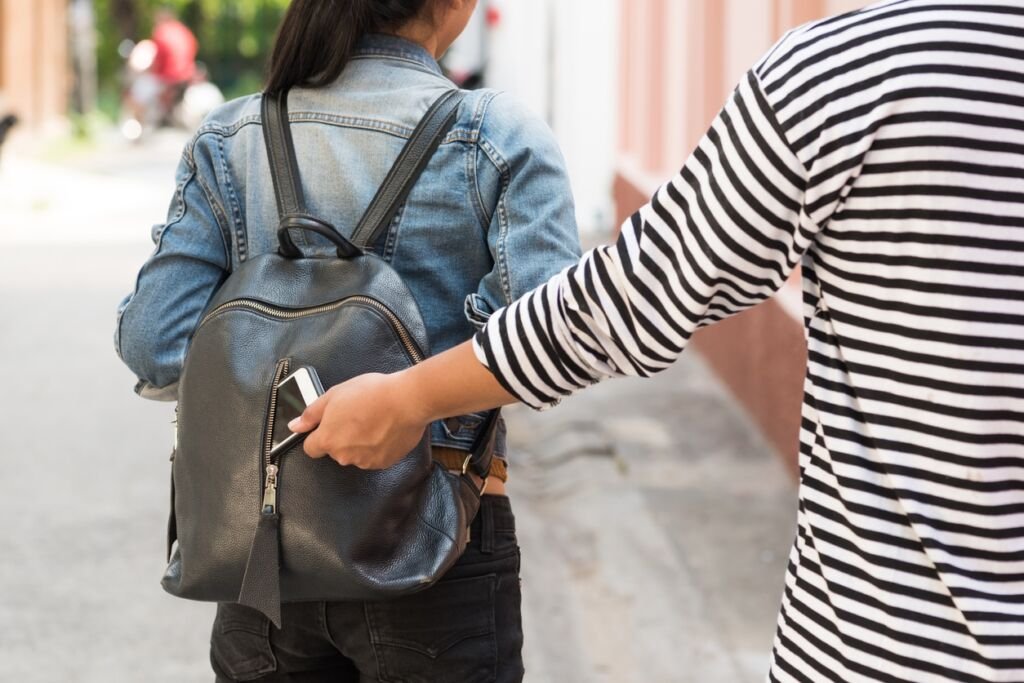
Is Jakarta Safe At Night?
Some popular nightlife areas of Jakarta, like Block M, the Ancol Port and Glodok tend to report higher crime rates per year than other areas of the city. So extra care should be taken there.
Violent crime and house robberies usually take place at dusk and dawn, and so walking alone at night is to be avoided . Female travelers in particular, must be wary, as sexual assault is a risk in Jakarta – as outlined in the next section.
It’s best to avoid walking alone in badly-lit areas of the capital at night. If you can avoid walking at night completely, that is even better.
Take a recommended taxi to and from your destination in the evenings. If the driver does not wish to drive though a particular neighborhood then it may be best to listen. Criminal gangs have been known to stop cars and rob the occupants.

How Safe Is Jakarta For Female Travelers?
Robbery is an issue in Jakarta, and women are targets to criminal gangs.
Whilst the majority of visits to Jakarta will go well, unfortunately sexual assault remains a risk for female travelers.
Solo women should avoid walking alone at night and be wary of accepting drinks from strangers – drink spiking is an occurrence.
There have been reports in recent years of women being assaulted in taxis, with drivers appearing to target women that have been drinking. Therefore always take a licensed and official taxi that has been recommended to you by a friend, or hotel. Do not take one from the street at night.
There have also been several reports of men on motorbikes and mopeds groping women as they pass by. Some women have also reported men exposing themselves on the street.
Catcalling is common towards foreign women. Dressing conservatively may help reduce that.

Is Jakarta Safe For LGBTQ Travelers?
Being LGBTQ is legal in Jakarta, and most of Indonesia. However homosexuality is regarded nation-wide as a taboo subject, and LGBTQ individuals face discrimination for their orientation.
Attacks have happened on LGBTQ people in the past. Therefore it’s advised to be discreet as Indonesia remains very conservative in comparison to many Western nations.
The Terrorism Situation In Jakarta
A high threat of terrorism exists in Jakarta, with several attacks taking place in the last two decades.
Some militant groups currently operate in Indonesia, and since 2019, police have arrested hundreds of terrorist suspects throughout the country.
Cities in the wider region have also experienced attacks at busy public spaces, such as malls, so new terrorist activity can’t be completely ruled out.
Is Water Safe To Drink In Jakarta?
It is best to not drink the water straight from the tap in Jakarta, as you will almost certainly end up with stomach issues. Either boil the water before drinking, or buy bottled water.

Safety In Jakarta: Our Final Thoughts
Many people have spent time in Jakarta and loved it! Some have visited and never wanted to come back. It is, in many ways, a love it or hate it city!
Jakarta does have problems with crime, however the vast majority of visits will go smoothly. However, you can reduce your chances of becoming a victim significantly by being vigilant and sticking to the tips outlined above.
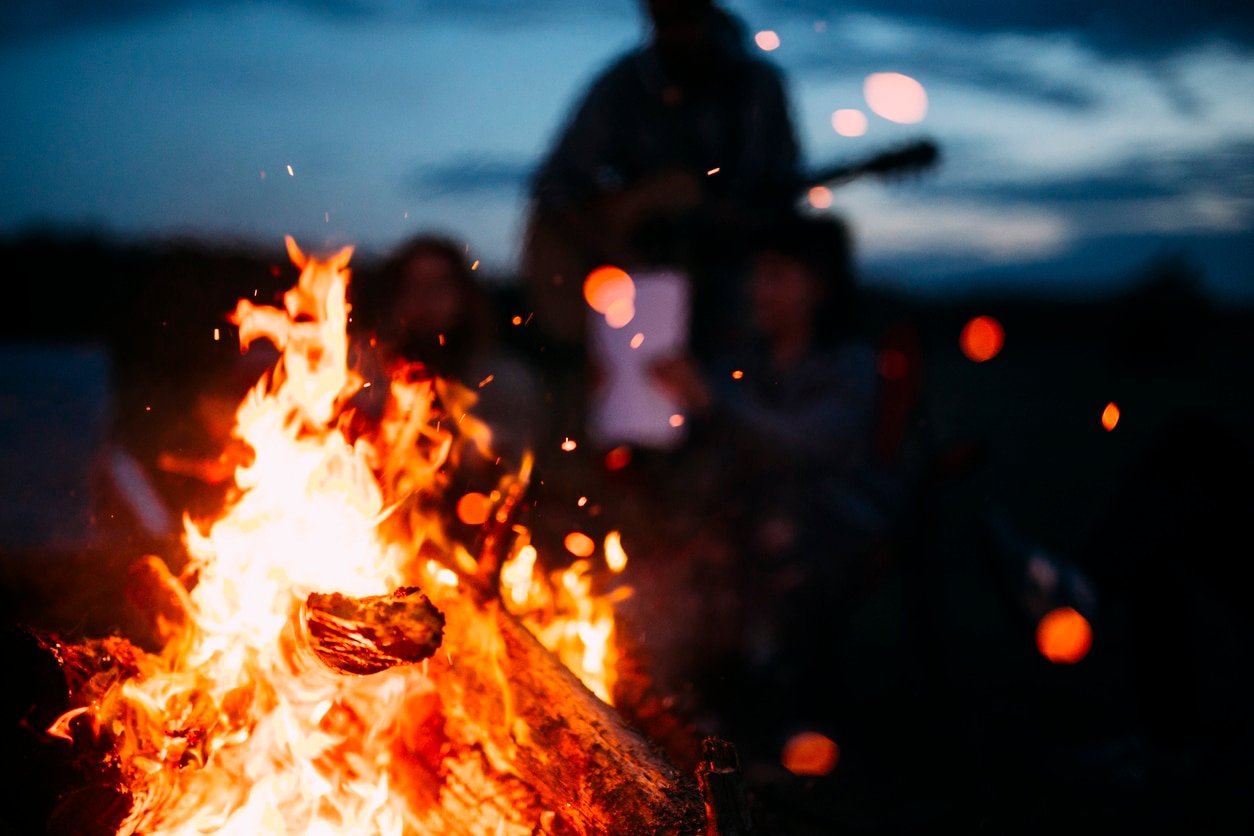
Related Posts

Bali vs Fiji An Honest Comparison To Help You Choose
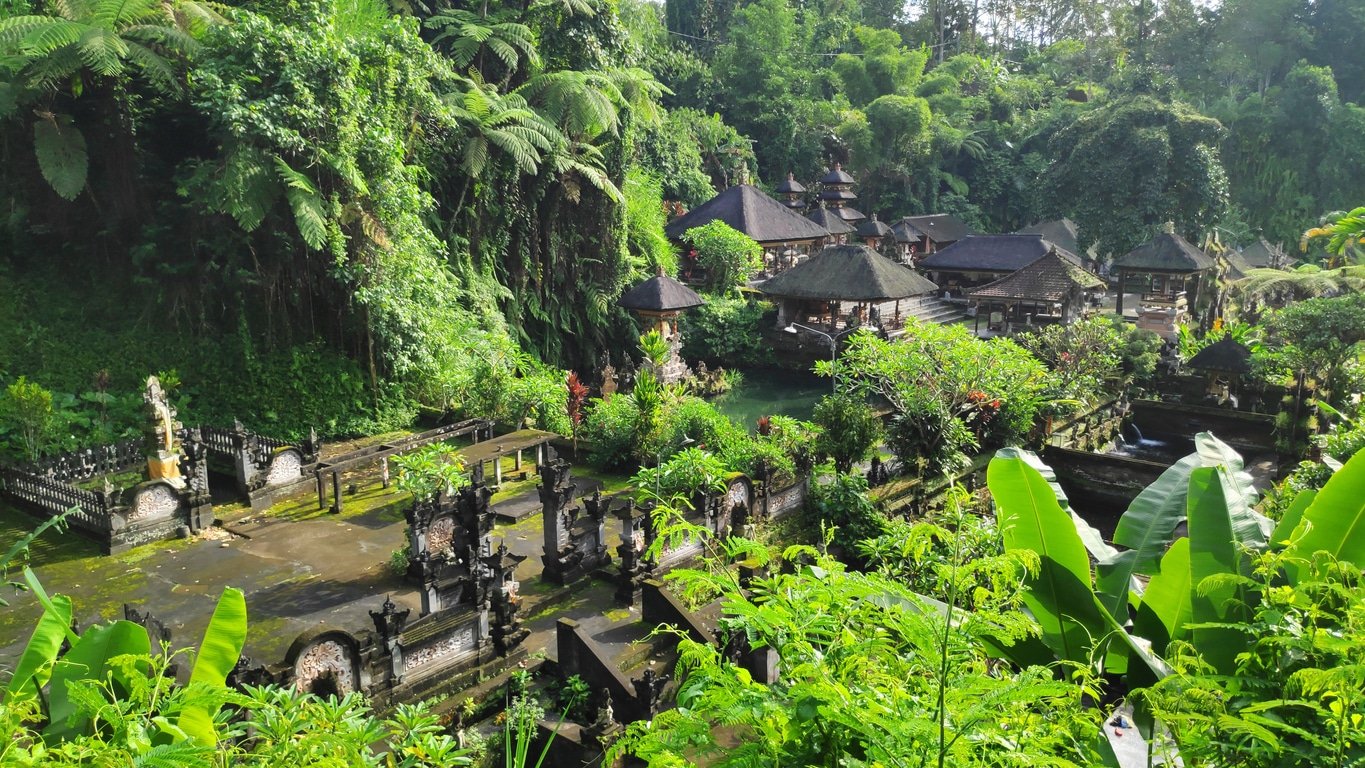
Snakes In Bali: Here’s Why You Shouldn’t Worry About Them
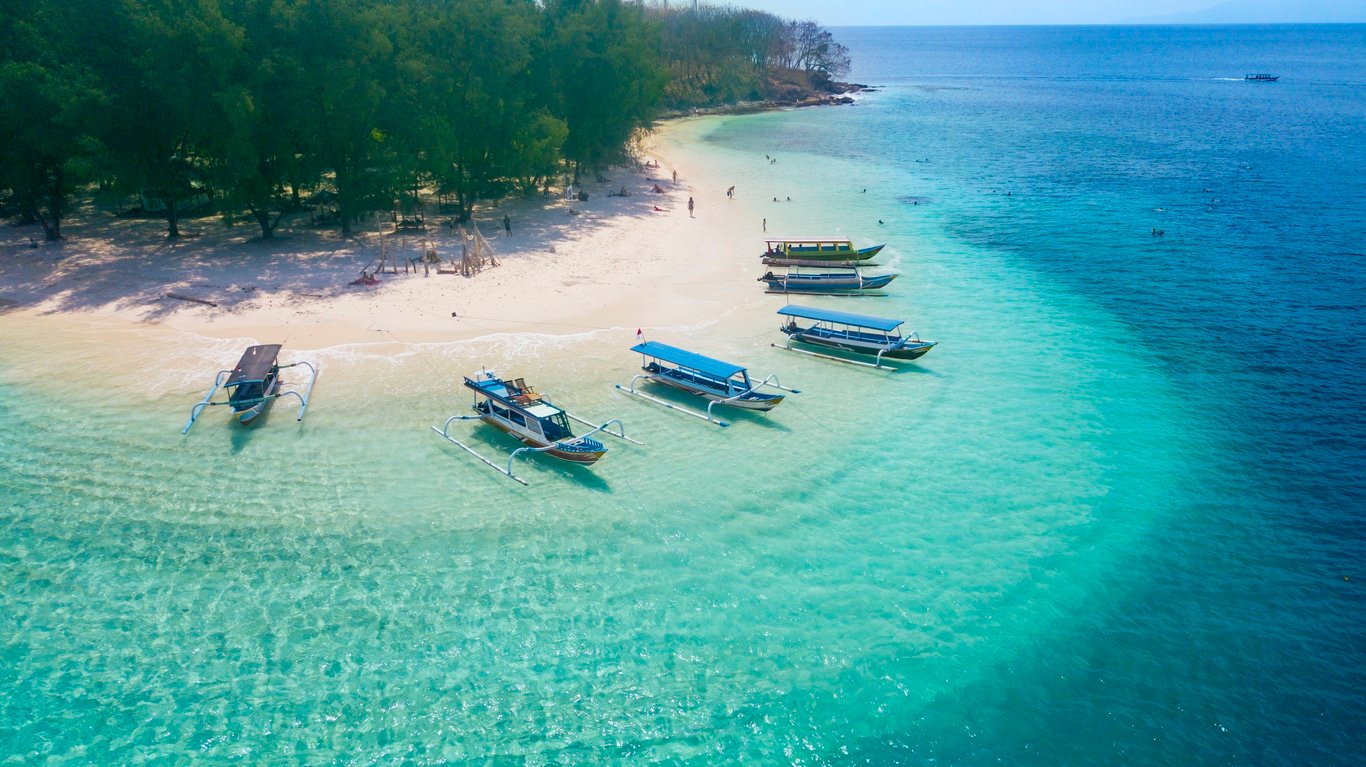
Camping In Bali: Best Campsites, Which Region To Camp, Tips & More!

Lorem ipsum dolor sit amet, consectetur adipisicing elit sed.
Follow us on
We’re on the road right now – join in on the fun and follow @thebrokebackpacker on IG!
- Meet the Team
- Work with Us
- Czech Republic
- Netherlands
- Switzerland
- Scandinavia
- Philippines
- South Korea
- New Zealand
- South Africa
- Budget Travel
- Work & Travel
- The Broke Backpacker Manifesto
- Travel Resources
- How to Travel on $10/day
Home » Southeast Asia » Travel Safety
Is Indonesia Safe for Travel? (2024 • Insider Tips)
Indonesia is a must-visit country.
There are thousands of islands to explore. It has some of the world’s best snorkelling and scuba spots.
Indo’s got great food, a genuinely interesting mix of cultures and different languages, a fascinating history AND an infectiously laid back lifestyle,.
You’ll also find international quality nightlife in Bali, spot giant lizards on Komodo, chill out in the Gili Islands and get lost in the megacity that is Jakarta.
However, Indonesia is not without its darker side. When visiting, there are quite a few things to consider.
There are violent protests, religious extremists, terrorist attacks and natural disasters such as devastating earthquakes and tsunamis. Then there is the threat of volcanic eruption, some harsh laws to keep in mind, poor air quality and occasional sinking ships!
So yes Indonesia can be bloody dangerous.
But thankfully, I’m here to help you navigate the cultural pitfalls, the petty crime, scams and sometimes scary natural world of this awesome archipelago.
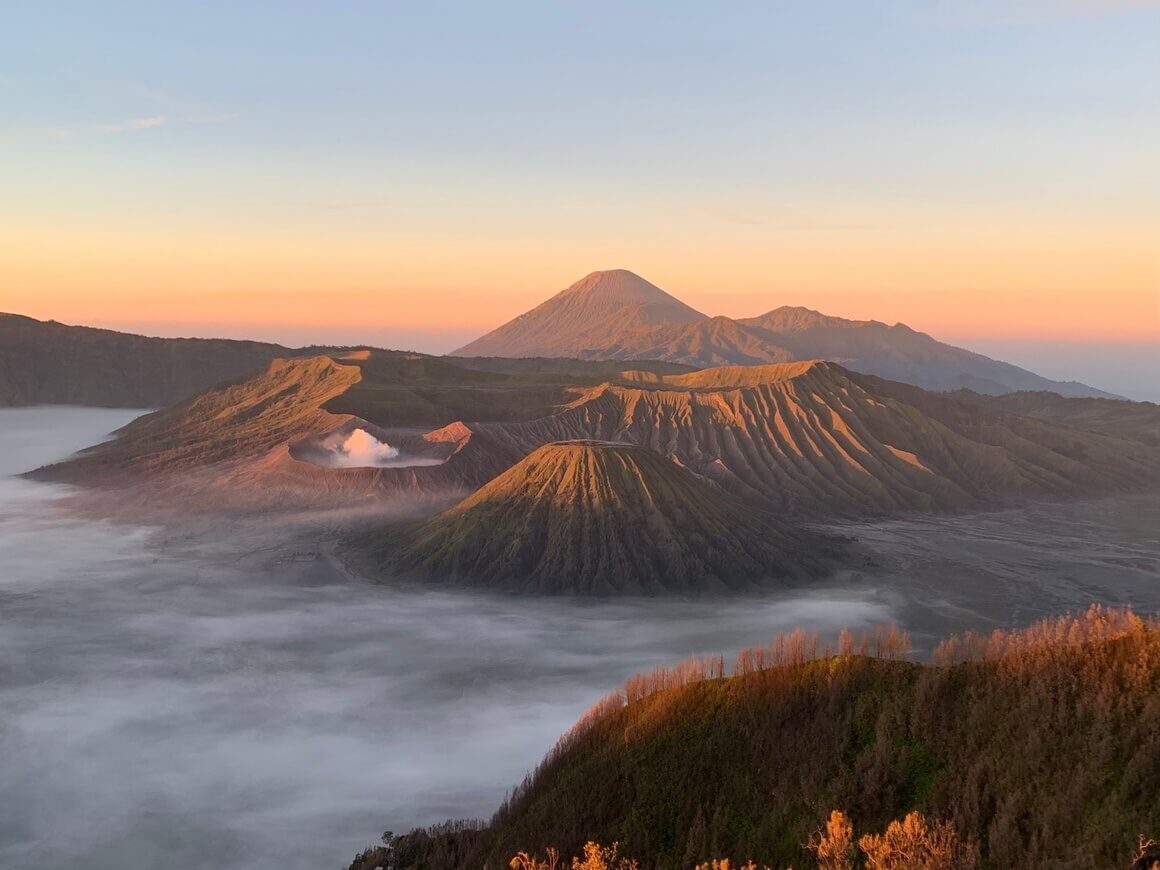
There is no such thing as a perfect safety guide, as things change quickly. The question of “Is Indonesia Safe?” will ALWAYS have a different answer depending on who you ask.
The information in this safety guide was accurate at the time of writing. If you use our guide, do your own research, and practice common sense, you will probably have a wonderful and safe trip to Indonesia.
If you see any outdated information, we would really appreciate it if you could reach out in the comments below. Otherwise, stay safe friends!
Updated December 2023

Unlock Our GREATEST Travel Secrets!
Sign up for our newsletter and get the best travel tips delivered right to your inbox.
Is Indonesia Safe to Visit Right Now?
Safest places in indonesia, top 10 safety tips for traveling to indonesia, is indonesia safe to travel alone, is indonesia safe for solo female travellers, where to start your travels in indonesia, is indonesia safe to travel for families, getting around indonesia safely, what to pack for your indonesia trip, getting insured before visiting indonesia, faq about staying safe in indonesia, so, is indonesia safe.
Much of Indonesia is safe to travel. Around 5,889,031 tourists arrived in the country by 2022 as stated in Indonesia’s statistical report , and travellers mostly had a positive experience.
Visiting Indonesia is fantastic – it’s an amazing place.
Made up of an awesome 17,508 islands, the archipelago that makes up Indonesia would take any traveller an age to explore. It’s a cultural wonderland that is the result of the melding of different traders and conquerors throughout the ages.
However, in this country, there are some issues. There are the standard travel woes of pickpockets and scammers and some of the worst air pollution in the world.
Add to this severe social disparities between rich and poor. Oh, and then there are also violent protests and the threat of terrorism to contend with.
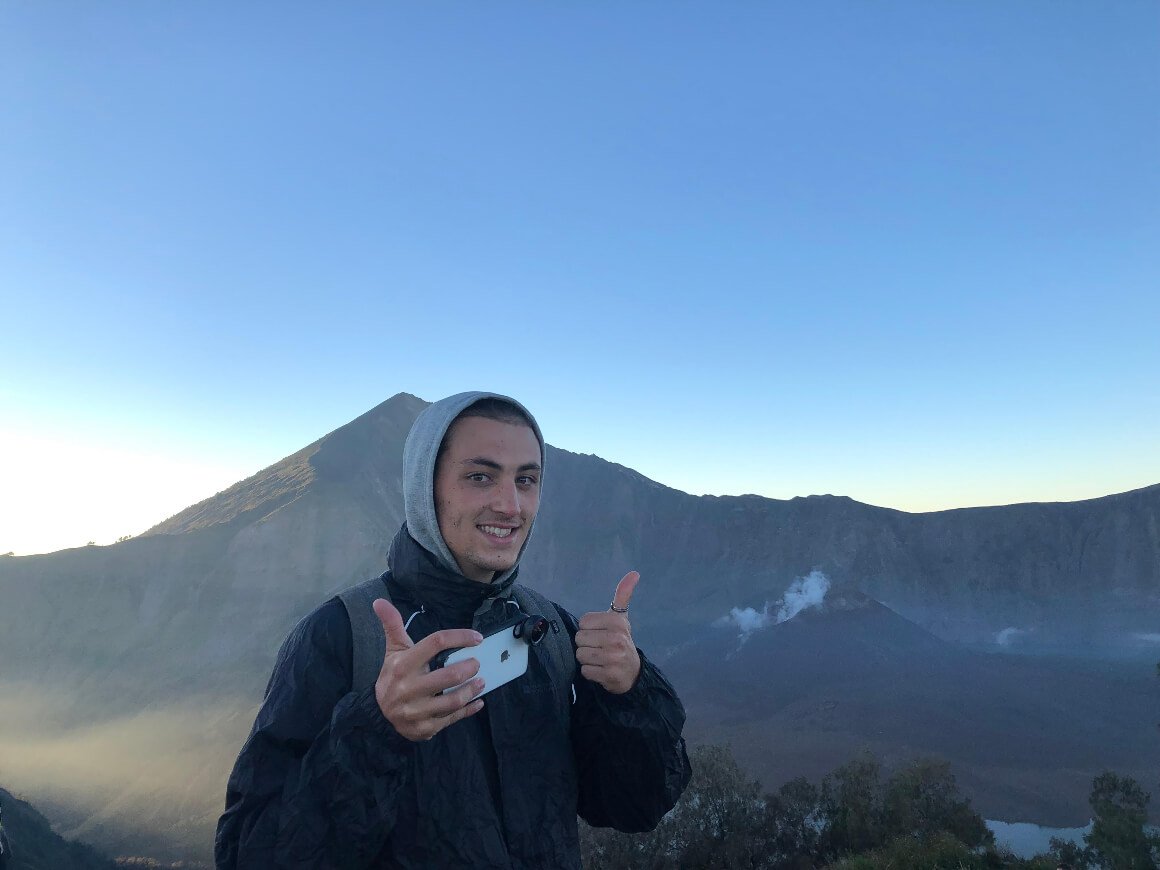
As if the human side of things in this vast nation wasn’t enough to deal with, there’s also nature to take into consideration here. There are many volcanoes in Indonesia like Bali’s Mount Agung (which has been simmering recently), as well as devastating earthquakes and recent tsunamis. It can be a scary prospect.
Generally, Indonesia is (or at least was) known more of a “backpacking” destination than one that’s primed for mass tourism. That said, tourism has been growing a crazy amount in this island nation – and the numbers speak for themselves.
With all this potential seeing these impressive numbers and rankings, the natural is to think, that Indonesia must be pretty safe. And whilst it generally is, learning how to travel safely is of utmost importance and relevance. Even in countries like Indonesia.
The likelihood of you coming into contact with something like a terrorist attack in Indonesia is very, very slim. You’re more likely to experience a seismic tremor.
So I’d definitely say that to answer the question of “ How safe is Indonesia to visit right now? ” would be… safe enough!
Check out our detailed where to stay guide for Indonesia so you can start your trip right!
When choosing where you’ll be staying in Indonesia, a bit of research and caution is essential. You don’t want to end up in a sketchy area and ruin your trip. To help you out, I’ve listed the safest areas to visit in Indonesia below.
Let’s start out with the crown jewel of backpacking in Indonesia – Bali. It’s probably THE safest place in Indonesia, thanks to incredibly friendly locals and a laid-back vibe.
Although it may look tiny on the map, there are many places to stay in Bali as it’s actually quite a large island with many different areas to explore. There’s much more to it than the beaches, including terraced rice fields, several lakes, and a couple of active volcanoes.
The buzzing digital nomad scene has triggered a whole load of coworking spaces to pop up all over the island. In the bubbly town of Pererenan is Tribal , an epic hostel and coworking spot!
Lombok is another Indonesian Island but offers a completely different vibe than Bali. While you can still do adventures like climbing the active volcano Rinjani (it’s a sketchy 2-day climb), Lombok is all about white sand beaches and relaxation.
Apart from the natural disaster threats like earthquakes, especially if you’re staying in good hostels in Lombok , it’s incredibly safe as well.
The only threat you’ll have to face in Flores is being eaten by a Komodo Dragon (which is VERY unlikely). Or, getting a sunburn while exploring the white sand beaches with its incredibly clear water. Flores might not have much to offer for adventure, but it’s the ideal getaway if you want to relax for a couple of days.
Places to Avoid in Indonesia
- Jakarta – Jakarta is a GREAT city to visit and pretty safe as well. But the air quality is definitely not ideal. Smog and dust pollute the air and traffic can be horrible.
- Canggu at night (Bali) – While Backpacking in Bali is totally safe during the day, travellers, especially females, have to take care of their valuables when walking or driving around here at night.
- Active volcanos – It’s not advisable to go within 4 kilometres of the Mount Agung crater in East Bali or within 7 kilometres of Mount Sinabung in Kalo Regency, North Sumatra. Local authorities have set up these exclusion zones due to increased volcanic activity and natural disasters.
- Drugs – not a place, but definitely something to completely avoid in Indonesia. Drugs are highly illegal and possession and use will be punished with the death sentence.
Keeping Your Money Safe in Indonesia
One of the most common things to happen to you whilst travelling is losing your money. And let’s face it: the most annoying way for this to actually occur is when it’s stolen from you.
Petty crime is pretty much a problem all over the world.
The best solution? Get a money belt.

Stash your cash safely with this money belt. It will keep your valuables safely concealed, no matter where you go.
It looks exactly like a normal belt except for a SECRET interior pocket perfectly designed to hide a wad of cash, a passport photocopy or anything else you may wish to hide. Never get caught with your pants down again! (Unless you want to…)
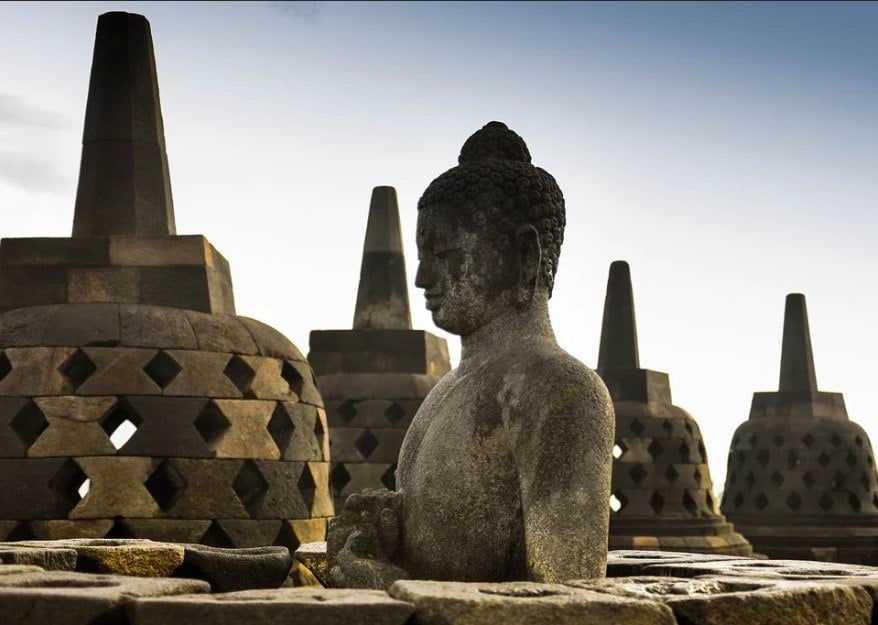
Just because tourism is everywhere in Indonesia, doesn’t mean that it’s always 100% safe.
To help keep yourself as safe and as secure as possible I’m sharing my best safety tips for travelling to Indonesia…
- Keep your belongings close to you and don’t walk around looking flashy – doing otherwise could easily make you a target of crime in Indonesia.
- Blend in – wear low-key, modest outfits, especially around religious sites and in more local areas
- Don’t leave your belongings unattended on the beach – they can easily go missing…
- Always keep an emergency stash of cash – Never keep all your cards/ currency in one place. And hide it all from thieves with a hidden money belt .
- Do not go swimming when you’re intoxicated – it seems like a good idea, but things can very easily go tragically wrong
- Be culturally aware – read up on what you should and shouldn’t do during Ramadan and Balinese New Year
- Muslims and non-Muslims have to abide by Sharia law in Aceh Province – any rules will also apply to you!
- Only use ATMs that look legitimate – and watch your back when you’re withdrawing money
- Keep away from drugs altogether – there’s a zero-tolerance policy her, DON’T RISK IT!
- Take a good medical kit with you – you never know when you might need it!
- Protect yourself against mosquitoes – there is a risk of dengue virus, amongst other things
- Know what to do in the event of volcanic or seismic activity – Keep up to date with local authorities, on local media and with official Indonesian government news .
Indonesia is a fantastic place to go and explore but, as you can see, it’s not always the easiest place to travel around.
The potential for natural disasters and petty crime in Indonesia shouldn’t be ignored.
Volcanic eruptions or other natural disasters can occur with little to no warning. Indonesian authorities are on top of this (for the most part).
If you’re sensible with how you travel, personal safety shouldn’t be an issue- you’ll be fine.
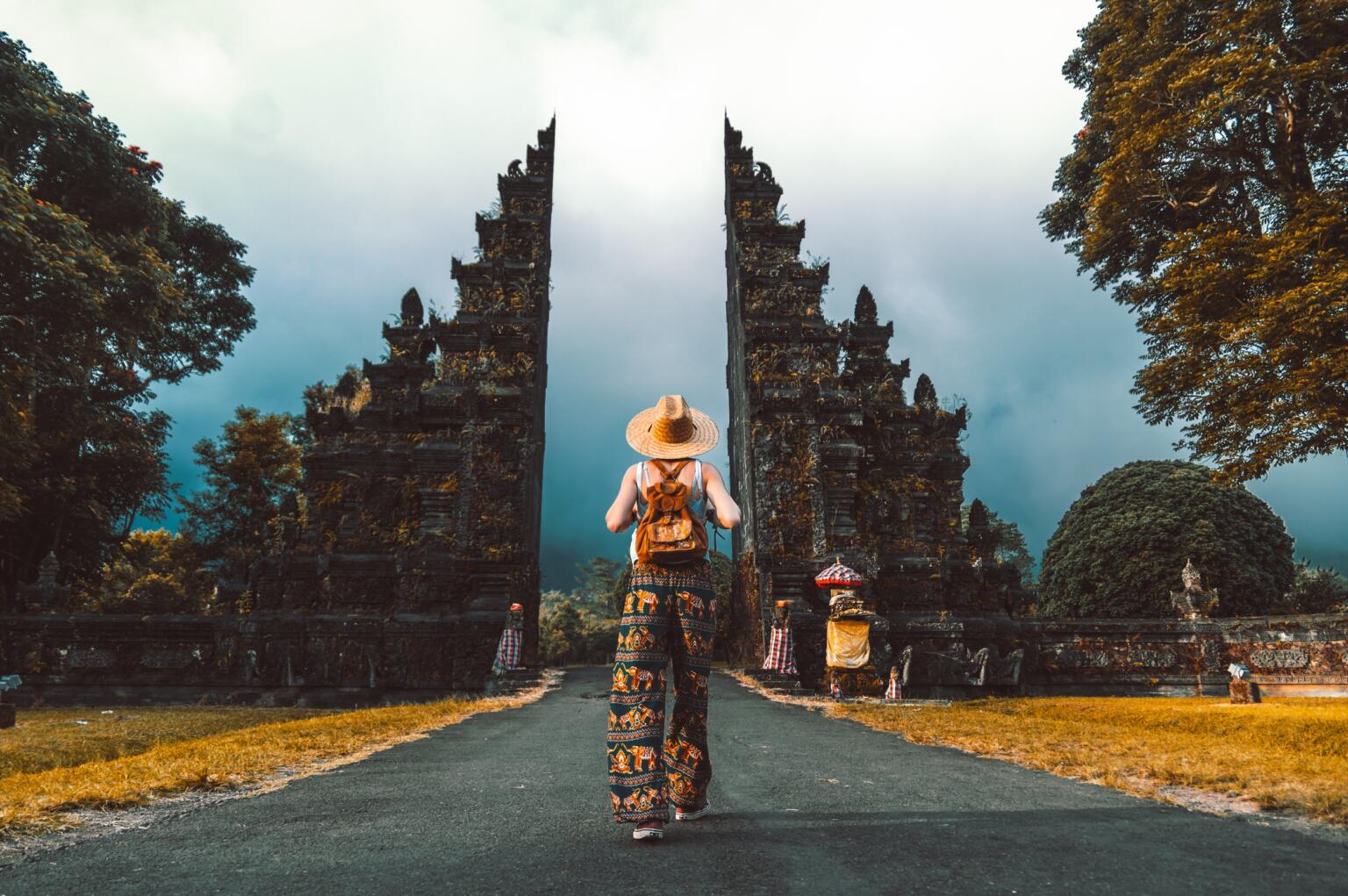
I solo travelled to Indonesia as a teenager. It was awesome. And, I survived!
Whilst solo travel is epic, it can be daunting. I hear you, I’ve been there.
Luckily Indonesia is a pretty good place for solo travellers. It’s been known for a while as a backpacking destination. Certain islands, like Bali, are strongholds of all sorts of travellers.
Indo can be easy to travel. That said, there are still a few things you should consider…
- There are a ton of hostels and homestays spread across the islands of Indonesia. This is a good way to make friends and maybe even get yourself a travel buddy; it’s a good way to start your trip. Make sure you do your research, however, and that places are rated highly by other solo travellers.
- Ask the local friends you’ve made, your taxi driver, or the staff at your accommodation for their insider knowledge .
- Carry around only the money that you need .
- Have different ways of accessing your money . Make sure you’ve got money set aside, stashed in a day pack etc.
- Don’t get really wasted . Not only women but also men can get into dangerous situations by losing their senses and good judgement by being completely drunk.
- Keep in touch with people back home – your mum will thank you!
- Travel light .
Solo travel in Indonesia is super fun. It is definitely worth your time exploring all the islands and finding the right places for you. Still, you will have to make sure you keep your wits about you, as you’ll be the only one looking out for you.
Make sure you stay aware of local customs and laws, too, and most importantly… TRAVEL SENSIBLY! You’ll be fine.
Psssst…. Searching for your Tribe?

Tribal Hostel – Bali’s first purpose-built co-working hostel and perhaps the greatest hostel in the world!
An ideal hub for Digital Nomads and backpackers, this very special hostel is now finally open…
Come on down and enjoy amazing coffee, high-speed wifi and a game of pool 😉
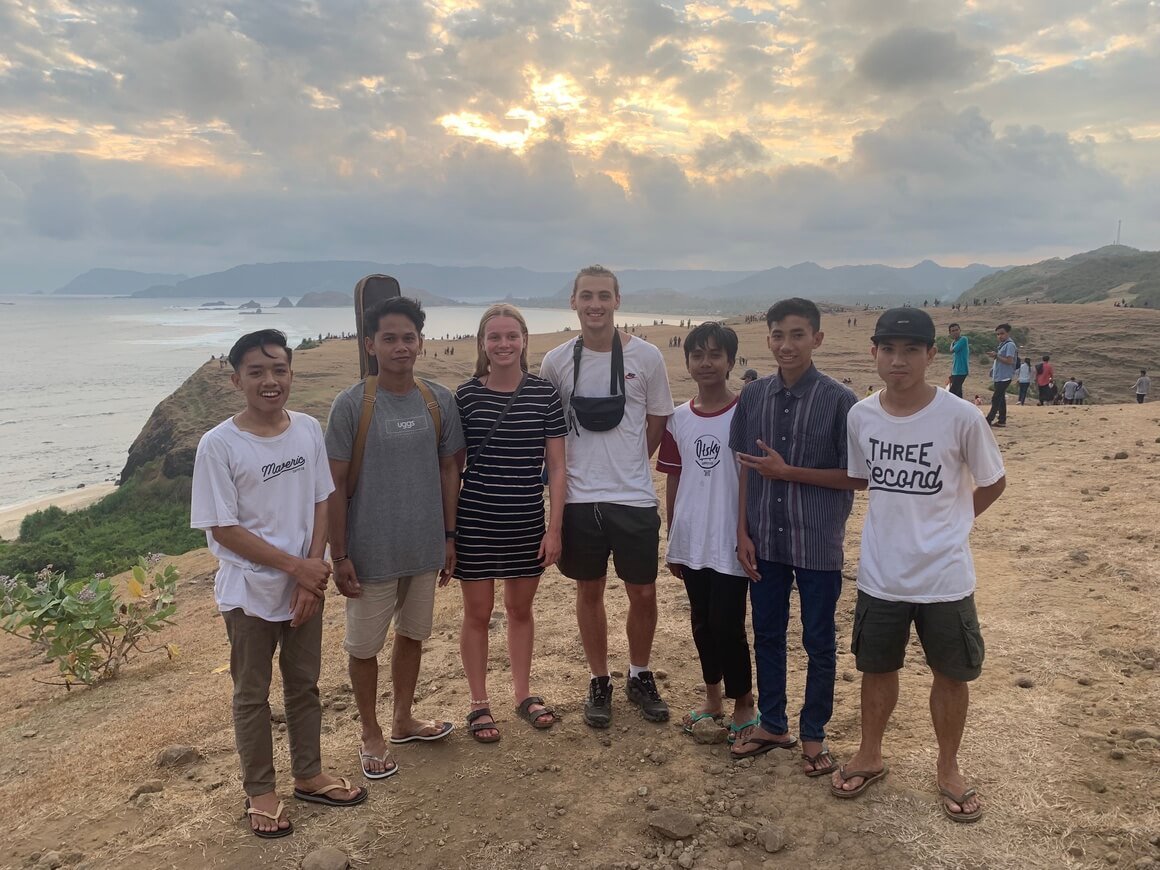
Is Indonesia dangerous for solo female travellers? Possibly. But generally not.
There are some important conversation topics here…
Even for female travellers, Indonesia is a fun place to travel. Solo female travellers flock to places like Bali to enjoy the beauty of the island.
In some areas of the country, you will need to pay more caution than in others. So, here are my tips for solo female travellers in Indonesia.
- Knowing what to wear , as well as where and when wearing certain clothes is appropriate, is important when you are travelling around Indonesia.
- In Aceh , for better or worse, Sharia law is in place. Women have to, by law, cover their hair with a headscarf, and cover their arms and legs.
- Horn honking and catcalling from Indonesian men does happen, unfortunately. When or if it does occur, it’s best just to ignore it and walk on.
- If someone is asking too many questions about where you’re staying, you’re itinerary or if you’re married, just lie. You don’t have to tell them the truth.
- Look up the places you will be staying at before you start out on your trip.
- Beware of drink spiking . This does happen and the best way to avoid is to keep an eye on your drink.
- There is nothing wrong at all with hiring a guide – just make sure the guide, or tour company, is well-reviewed (especially by other female travellers) and trustworthy.
Like everywhere in the world, women travelling by themselves in Indonesia are more at risk than their male counterparts. The usual rules apply, the same things you might do in your hometown anyway: trust your gut and don’t wander around at night by yourself.

Bali is one of the world’s travel hotspots at the moment. It’s a very safe island with an incredible amount of things to do and see. From stunning nature and action to white-sand beaches and digital nomad cafes, Bali a top place to visit.
Indonesia might not be the atypical destination to take your children on holiday, but why not?!
I met lots of families on my recent trip to Indonesia. It’s not always going to be straightforward though (depending on how you travel).
In fact, if you feel like dipping your toe into the diverse country of Indonesia and its myriad cultures – and want your children to be able to safely lap it all up – then Bali is a great starting point. Safety in Bali is significantly greater than in other of the country’s major cities or tourist destinations.
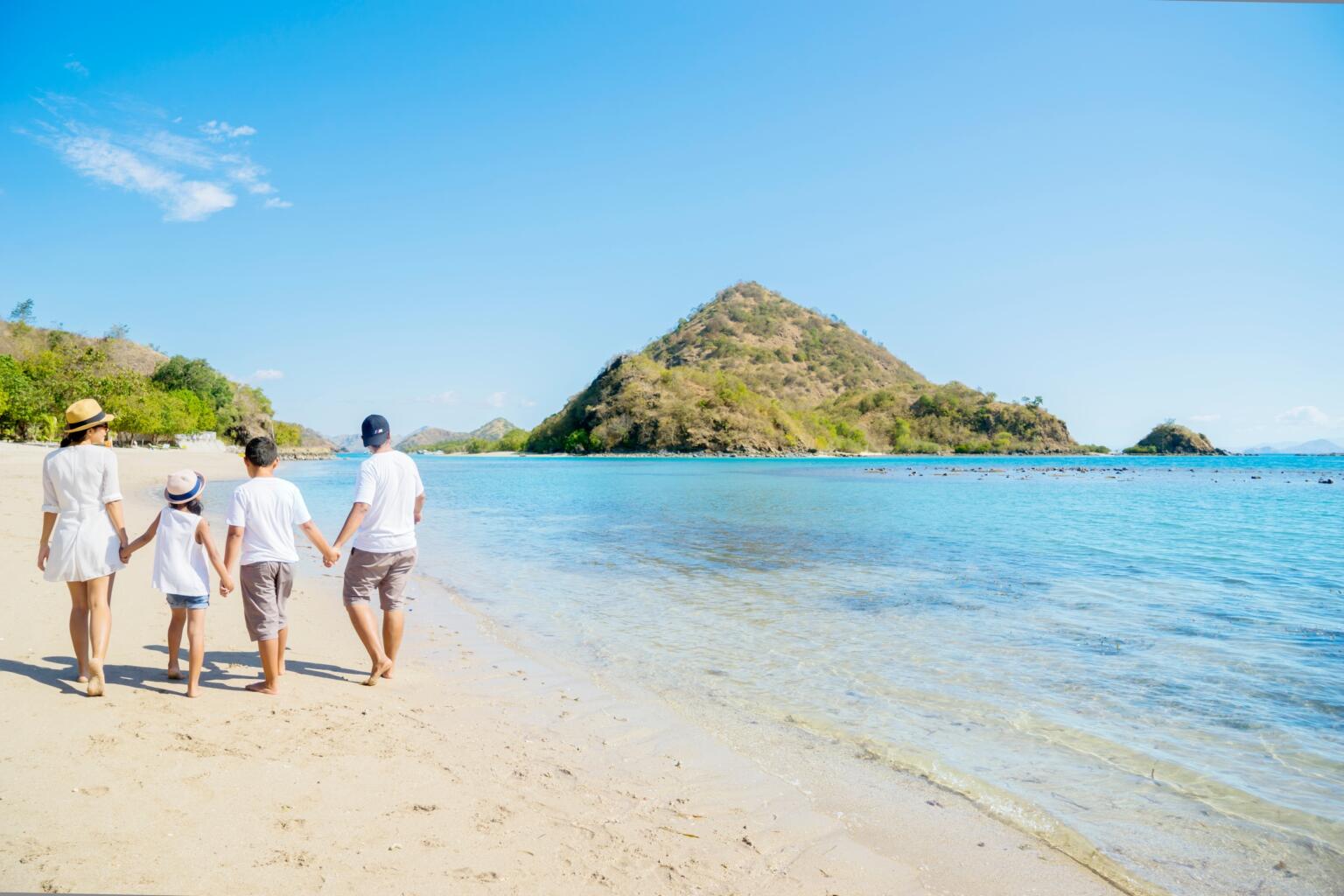
Here you will find a host of child-friendly facilities all across the island that will cater towards families. There are resorts and hotels in the southern part of the island and clean cafes with good food on offer.
In other parts of Indonesia, however, these kinds of child-friendly specialities are much harder to come by.
If you’re travelling with younger children, it’s best to bring some sort of carrier as opposed to a pram. This is the done thing in this part of the world anyway, plus getting a pram around on the non-existent pavements is just not going to be fun at all.
When it comes to breastfeeding, don’t do it in public, especially in more conservative places. It’s best to see what other local ladies are doing and follow suit.
Though it probably will be a challenge (unless you stay in a lovely resort or luxury accommodation in Bali ), Indonesia will be a rewarding place to travel with your children. It’s somewhere they aren’t likely to forget soon!
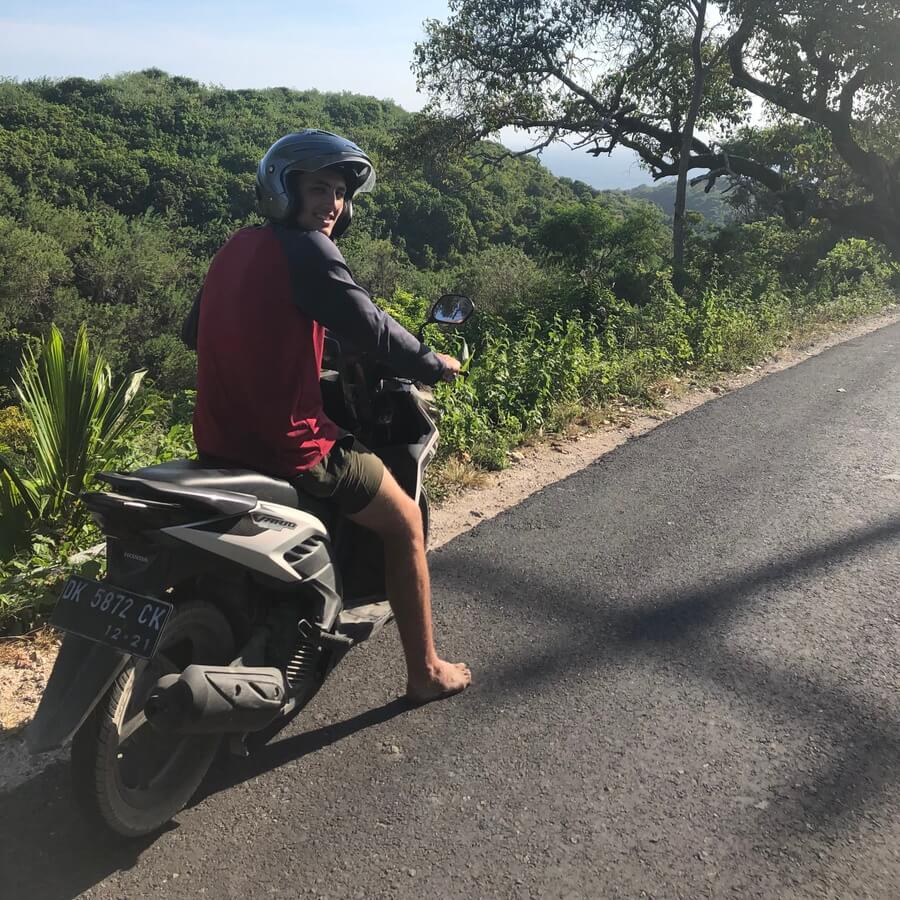
Indonesia can be a pretty… hair-raising place to drive.
Local drivers are not the best, the roads are not always the best, and the extreme weather that hits the islands can mean those roads only get worse – and more dangerous. Oh, and getting an international driving permit isn’t always a smooth experience.
People don’t always follow the traffic rules in Indonesia. This means that it can be a pretty stressful place to drive, especially if you have never driven in a place like this before.
Most people rent scooters or motorbikes when in Indonesia. I urge you to be careful when hiring a motorbike.
Make sure you have prior experience, know how to ride one, and that your travel insurance covers you in case of an accident. WEAR A HELMET!
Cycling in Indonesia is increasingly popular and a wonderful safer alternative.
Uber was but no longer is in operation in Indonesia. Instead, the Malaysia-founded, Singapore-based Grab moved in and got all the business.
Taxis are plentiful in Indonesia, normal to use, and are, in general, pretty safe to use. However, you should make sure that you only take journeys with a reputable taxi company; and definitely do not use unlicensed taxi drivers.
Buses come in all shapes and sizes in Indonesia. Large buses are mainly used as city transport on Java; Jakarta, for example, has a wide-reaching bus system that’s very cheap. It’s not always straightforward and can be plagued by pickpockets, so use it with caution.
Minibuses are the classic way to get around and are pretty ubiquitous. This is the mainstay for both locals and backpackers. They trundle both in and around cities, as well as between destinations. They go by many different local names, too.
Everyone’s packing list is going to look a little different, but here are a few things I would never want to travel to Indonesia without…
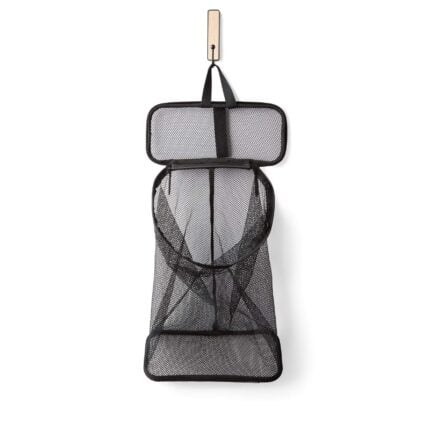
Hanging Laundry Bag
Trust us, this is an absolute game changer. Super compact, a hanging mesh laundry bag stops your dirty clothes from stinking, you don’t know how much you need one of these… so just get it, thank us later.

A decent head torch could save your life. If you want to explore caves, unlit temples, or simply find your way to the bathroom during a blackout, a headtorch is a must.

Yesim stands as a premier eSIM service provider, catering specifically to the mobile internet needs of travellers.

Monopoly Deal
Forget about Poker! Monopoly Deal is the single best travel card game that we have ever played. Works with 2-5 players and guarantees happy days.

This is a regular looking belt with a concealed pocket on the inside – you can hide up to twenty notes inside and wear it through airport scanners without it setting them off.
I always get asked “ Is Indonesia safe for tourists? ” If you’re worried about safety the best plan of action is to watch your own back by arming yourself with some good quality Indonesian travel insurance .
ALWAYS sort out your backpacker insurance before your trip. There’s plenty to choose from in that department, but a good place to start is Safety Wing .
They offer month-to-month payments, no lock-in contracts, and require absolutely no itineraries: that’s the exact kind of insurance long-term travellers and digital nomads need.

SafetyWing is cheap, easy, and admin-free: just sign up lickety-split so you can get back to it!
Click the button below to learn more about SafetyWing’s setup or read our insider review for the full tasty scoop.
Here are some quick answers to common questions about safety in Indonesia.
What should I avoid in Indonesia?
Avoid these things in Indonesia to stay safe: – Don’t disrespect the local culture – Keep your belongings close to you and don’t walk around looking flashy – Don’t keep your phone in your hand when walking on the street – Avoid using individual ATMs on the side of the road – opt for the ones inside shops and banks
Is Indonesia safe for solo female travellers?
If you use your common sense and don’t go looking for trouble, Indonesia can be very safe for solo female travellers. Local people are genuinely friendly and welcoming. Catcalling is hardly a thing but be prepared to be stared at quite a bit. Don’t worry, this is normal and no threat at all.
Is Indonesia safe to live in?
While it’s not easy to get the right visa, living in Indonesia can be a real treat and super safe if you adapt to the local culture – known for its cheap cost of living and laid back lifestyle. Nature will be the biggest safety concern, with mosquito-carried illnesses, earthquakes and tsunami threats.
What are the laws in Indonesia?
Laws and rules in Indonesia are strict. The number one aspect to be careful of is drugs. Many backpackers indulge in the occasional spliff or dosage of party powder. THIS IS A TERRIBLE IDEA IN INDONESIA! Gambling is also illegal. Indonesia is partly a Muslim country – and some regions such as Aceh Regiosn follow Sharia Law. If you’re unsure, dress modestly and look at Indonesian law websites or even better, investigate your own country’s or Indonesia’s Official Gov Website.
How much crime is in Indonesia?
There isn’t a great threat of organised violent crime from terrorist groups. It’s mainly petty crime such as pickpocketing. When visiting Indonesia, take caution to ensure personal safety, as crime is not popular here, but far from invisible. If you are suspicious or feel unsafe, alert local authorities or Indonesian authorities immediately.
Yup, Indonesia is definitely safe , especially if you follow my travel tips. The country isn’t completely without its issues but where isn’t? Your visit to Indonesia will most probably end safely and happily and you will be excited for your return.
Indonesia is one of my favourite places I’ve ever travelled to. Don’t let safety concerns discourage you from visiting what is truly a remarkable country. Just be sure to exercise caution and keep your wits about ya!
My final recommendation is to make sure you keep up to date with relevant government advice. I’m from the UK, so I always check the gov.uk website for travel advice, Wherever you’re from, your government should have its own alternative.
If you have any more questions or comments, feel free to drop them in the comments section below.
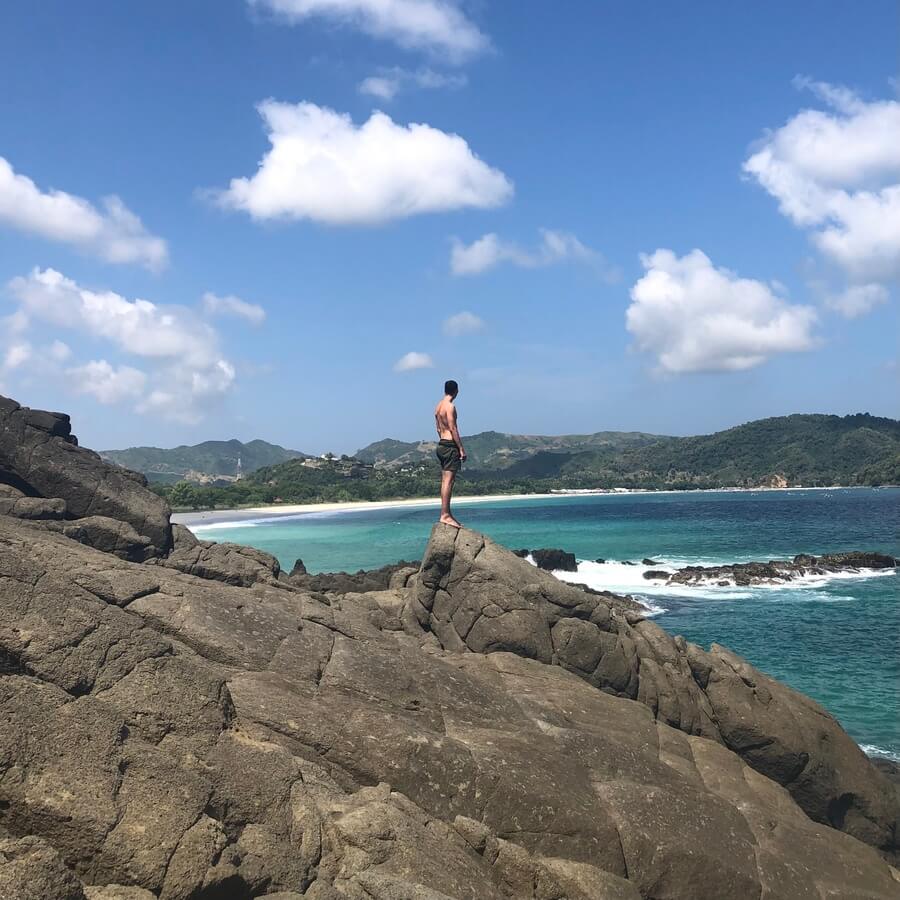
Looking for more info on traveling to Indonesia?
- Let me help you choose where to stay in Indonesia
- Swing by one of these fabulous festivals
- Check out my favorite Airbnbs in the centre of all the action
- Plan the rest of your trip with our fantastic backpacking Indonesia travel guide!
- Take a look at my expert travel safety tips learned from 15+ years on the road
Disclaimer: Safety conditions change all over the world on a daily basis. We do our best to advise but this info may already be out of date. Do your own research. Enjoy your travels!

And for transparency’s sake, please know that some of the links in our content are affiliate links . That means that if you book your accommodation, buy your gear, or sort your insurance through our link, we earn a small commission (at no extra cost to you). That said, we only link to the gear we trust and never recommend services we don’t believe are up to scratch. Again, thank you!

Joe Middlehurst
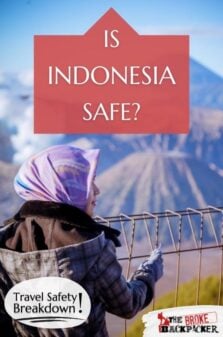
Share or save this post

This a great blog Rose. Very nice to see information on traveling as a solo female backpacker. I hope you can come to flores and Komodo. We have the only locally woman owned dive center. As well we do Komodo Tours. I have been learning about blog writing as well…but i am now where near as good as you are …hehe. I hope you can make it to flores, please stop by our office in Labuan bajo and say hello. You can find us at komodoislandtour
Leave a Reply Cancel reply
Your email address will not be published. Required fields are marked *
Save my name, email, and website in this browser for the next time I comment.
Notify me of followup comments via e-mail.
New International Travel Regulations to Enter Indonesia as of 10 November 2022
JAKARTA, 21 December 2022 - As an immediate response to recover tourism industry and relaxing the international travel restrictions, COVID-19 Task Force issued the Circular Letter of the COVID-19 Task Force Number 25 of 2022 concerning Health Protocols for International Travels during the COVID-19 Pandemic .
Coordinator of Expert Team and Spokesperson for the COVID-19 Handling Task Force, Prof. Wiku Adisasmito, stated that the adjustment to the control mechanism for international travel was urgently needed. "The COVID-19 policy must also be adaptive with the dynamics of the virus, including the dynamics of its variants that occur globally," Wiku said.
- International Travel
Here are the new international travel regulations according to the Circular Letter of the COVID-19 Task Force Number 25 of 2022 concerning Health Protocols for International Travels during the COVID-19 Pandemic
- The general requirements regarding health protocols for international travelers are as follows:
- Wearing 3 ply of fabric mask or medical grade mask, covering nose, mouth, and chin at indoor settings or any crowded situations;
- Replacing the mask regularly within every 4 hours, and dispose the waste in the proper place;
- Washing hands regularly with water and soap or hand sanitizers;
- Maintaining social distance for a minimum of 1.5 meters and avoiding crowds; and
- Keeping in mind that it is advised not to have one-way or two-way communication by telephone or in person throughout the trip using public transportation modes of land, rail, sea, river, lake, ferry, and air.
- All International travelers, both Indonesian citizens and foreign nationals, can enter Indonesia through the entry points assigned, which are:
a. Airports
- Soekarno Hatta International Airport, Banten;
- Juanda International Airport, East Java;
- Ngurah Rai International Airport, Bali;
- Hang Nadim International Airport, Riau Islands;
- Sam Ratulangi International Airport, North Sulawesi;
- Zainuddin Abdul Madjid International Airport, West Nusa Tenggara;
- Kualanamu International Airport, North Sumatra;
- Sultan Hasanuddin International Airport, South Sulawesi;
- Yogyakarta International Airport, Yogyakarta;
- Sultan Syarif Kasim II, Riau.
- Sultan Iskandar Muda, Aceh;
- Minangkabau, West Sumatra;
- Sultan Aji Muhammad Sulaiman, East Kalimantan;
- Kertajati International Airport, West Java; and
- Sentani International Airport, Papua
b. Seaports
All international seaports in Indonesia are now opened as entry points for international travel through the consideration of the Directorate General of Sea Transportation of the Ministry of Transportation.
c. Cross Border State
- Aruk, West Kalimantan;
- Entikong, West Kalimantan;
- Motaain, East Nusa Tenggara;
- Nanga Badau, West Kalimantan;
- Motamasin, East Nusa Tenggara;
- Wini, East Nusa Tenggara;
- Skouw, Papua; and
- Sota, Papua.
3. International travelers can enter Indonesia through the following conditions:
- Indonesian citizens are allowed to enter Indonesia by following the strict health protocol as mentioned in number 1.
- Foreign nationals are allowed to enter Indonesia by fulfilling the requirements as follows:
- In accordance with the provisions on immigration regulated by the ministry that administers government affairs in the fields of Law and Human Rights;
- In accordance with the agreement scheme (bilateral), such as the Travel Corridor Arrangement (TCA); and/or
- Granted special consideration/permission in writing from the Ministry/Agency.
4. Requirements for Departure Documents for international travelers from Indonesia are as follows:
- International travelers with the status of Indonesian citizens aged 18 years and above who will travel abroad from Indonesia are required to show a card/certificate (physical or digital) of receiving the third dose of COVID-19 vaccine (booster) which is shown through the PeduliLindungi app.
- The provisions on the obligation to show the card/certificate as referred to in letter a are excluded for Indonesian citizens with the following provisions:
- International travelers with the status of Indonesian citizens with special health conditions or comorbid diseases that cause them to not receive the vaccine are required to attach a doctor's certificate from the Government Hospital stating that the person concerned has not and/or cannot receive the Covid-19 vaccine; or
- International travelers with the status of Indonesian citizens who have finished carrying out COVID-19 isolation/treatment and have been declared inactive in transmitting COVID-19 but have not been able to get the third dose of vaccination (booster) must show a doctor's certificate from the Government Hospital or Ministry of Health stating that the person concerned is no longer active. actively transmit COVID-19 or COVID-19 recovery certificate.
5. Requirements for Arrival Documents for international travelers going to Indonesia are as follows:
- International travelers must download and use PeduliLindungi app before departure;
- Presenting the card/certificate (physical or digital) of receiving the second dose of COVID-19 vaccine at least 14 (fourteen) days before departure written in English, other than the language of the country of origin.
- The obligation to show proof (physical and digital) of COVID-19 vaccination certificates as requirements for entering Indonesia are excluded to:
- Foreign nationals under 18 years old; and
- International travelers with special health conditions or comorbid diseases that cause travelers cannot receive vaccines, with the requirements of presenting a doctor's certificate from the State Departure Hospital which states that the concerned person has not been and/or cannot receive COVID-19 vaccination.
- International travelers who have not received a complete dose of vaccination, have finished carrying out COVID-19 isolation or treatment, and have been declared inactive in transmitting COVID-19 with the requirement that they attach a doctor's certificate from the Government Hospital of the departure country or the ministry that carries out government affairs in the health sector on the country of departure stating that the person concerned is no longer actively transmitting COVID-19 or the COVID-19 recovery certificate;
- International travelers with the status of foreign nationals who are Diplomatic visa holders and work visas related to official visit/state officials at the ministerial level or above and foreign nationals who entered Indonesia with the Travel Corridor Arrangement scheme, according to the principle of reciprocity while implementing a strict health protocol; and
- International travelers with the status of foreign nationals who have not received the vaccine and intend to travel domestically in order to continue their journey with international flights out of Indonesian territory, are allowed not to show their COVID-19 vaccination card/certificate as long as they do not leave the airport area during transit waiting for international flights to be followed, with requirements:
- Has been permitted by the local Port Health Office to travel domestically in order to continue the journey with international flights out of the territory of Indonesia; and
- Showing the schedule of flight tickets outside Indonesia for direct transit from the departure city to the international airport in the territory of Indonesia with the final destination to the destination country.
6. COVID-19 Entry Points Health Protocols are listed as follows:
- International travelers must proceed through international travel arrival documents checking as being mentioned in no. 4.
- Upon arrival at the entry points, international travelers must undergo a COVID-19 symptom check, including a body temperature check.
- International travelers with a symptom of COVID-19 or body temperature above 37.5 degrees Celsius must undergo RT-PCR examination upon arrival with payment borne by the government for Indonesian citizen and by self-financing for foreign nationals
- International travelers without a symptom of COVID-19 and body temperature below 37.5 degrees Celsius are not required to undergo RT-PCR examination upon arrival and can continue their travel while also conducting 14 days of self health monitoring.
- International travelers conducting the RT-PCR confirmation examination as referred to in point c are allowed to continue the journey after conducting the RT-PCR confirmation examination sample and must comply with the following provisions:
- Waiting for the results of the RT-PCR confirmation examination in hotel rooms, lodging rooms, or residences; and
- Are not allowed to leave hotel rooms, lodging rooms, or residences and are not allowed to interact with other people before the results of the RT-PCR confirmation examination show negative results.
- In the event that the RT-PCR confirmation examination as referred to in point c shows a positive result, the international traveler shall be isolated/treated in accordance with the follow-up mechanism for the positive case.
- In the event that the RT-PCR confirmation examination as referred to in point c shows a negative result, the international traveler is allowed to continue the journey and it is recommended to carry out independent health monitoring of COVID-19 symptoms for 14 days by implementing strict health protocols.
7. Positive Case Follow-up Mechanism and Isolation/Treatment are as follows:
- International travelers with positive RT-PCR confirmation examination results without symptoms or experiencing mild symptoms are required to carry out isolation/treatment in isolation hotels or centralized isolation facilities set by the government or self-isolate in their own residences with isolation/treatment times as recommended by the Ministry of Health.
- International travelers with positive RT-PCR confirmation examination results accompanied by moderate or severe symptoms and/or with uncontrolled comorbidities, will be isolated/treated at a Covid-19 referral hospital with isolation/treatment time according to recommendations from doctors and recommendations from the Ministry of Health.
8. COVID-19 Vaccination Program for International Travelers are as follows:
- International travelers with the status of Indonesian citizens who have not received the COVID-19 vaccination, either the first dose, the second dose, or the third dose are required to undergo vaccination at the entry point for overseas travel after a symptom check is carried out.
- International travelers with the status of foreign nationals who are already in Indonesia and will travel, both domestically and internationally, are required to undergo vaccination through a program or mutual cooperation scheme in accordance with the provisions of the legislation.
9. Financing of all the provisions mentioned above are regulated as follows:
- The cost of RT-PCR confirmation examination at the entry point as referred to in number 5.c. for foreign nationals it is borne independently, while for Indonesian citizens it is borne by the government.
- The cost of handling COVID-19 and medical evacuation for foreign nationals is borne independently, while for Indonesian citizens it is borne by the government.
- The cost of vaccination at the entry point for international travelers with the status of Indonesian citizens as referred to in letter 7.a is borne by the government.
- In the event that the international travelers with the status of foreign nationals are unable to finance the RT-PCR confirmation examination at the entry point and isolation/treatment when the results of the RT-PCR confirmation examination show positive results, as referred to in point a and b, then the Sponsor, Ministry/Institution/State-Owned Enterprises providing the consideration of the entry permit for the foreigner can be asked for the accountability in question.
10. Other provisions are as follows:
- In regards to the results of the RT-PCR test at the entry point, a written comparison can be requested by filling out the form provided by the Port Health Office or the Ministry of Health at the expense of the inspection being borne by the international travelers.
- The implementation of the RT-PCR comparison test as referred to in point a is carried out simultaneously by the Port Health Office in 2 (two) laboratories for the purpose of SGTF comparison examination and comparative examination of RT-PCR results, namely at: Health Research and Development Agency (Balitbangkes), Cipto Mangunkusumo Central General Hospital (RSCM), 9 Gatot Soebroto Army Central Hospital (RSPAD), Bhayangkara Raden Said Sukanto Hospital (Polri Hospital) or other government laboratories (Environmental Health Engineering Center, Regional Health Laboratory, or other government reference laboratories).
- The Port Health Office of airports and international seaports facilitates international travelers requiring emergency medical services upon arrival in Indonesia in accordance with the provisions of laws and regulations.
- Every transportation mode operator at the entry point for overseas travel is required to use the PeduliLindungi app.
- Ministries/institutions/regional apparatus that carry out functions related to the international travelers must follow up this Circular Letter by issuing legal instruments that are in harmony and do not conflict with the provisions of laws and regulations.
- The legal instrument as referred to in point e is an inseparable part of this Circular Letter.
This regulation is effective from 1 September 2022 until a later date is determined. You can check the complete detail regarding this regulation on this link.
Visa Exemption Arrangement Facility and Visa on Arrival for Indonesia
- Visa Exemption Arrangement facility and Visa on Arrival for Indonesia
Furthermore, based on the Circular Letter of the Directorate General of Immigration No. IMI-0708.GR.01.01 of 2022 concerning the Ease of Immigration to Support Sustainable Tourism during the COVID-19 Pandemic effective from 23 September 2022, the Indonesian government has decided to exercise the Visa Exemption Arrangement facility and updated the list of countries eligible for Visa On Arrival (VOA) for tourism purposes.
The list of countries and special entities for Visit Visa Exemption Arrangement facility , in alphabetical order are:
- Brunei Darussalam,
- Philippines,
- Thailand, and
Visit Visa Exemption for Tourism Purpose are granted for foreign nationals at the Immigration Checkpoints as follows :
a. Airports:
1) Hang Nadim, Riau Islands; 2) Juanda, East Java; 3) Kertajati, West Java; 4) Kualanamu, North Sumatra; 5) Minangkabau, West Sumatra; 6) Ngurah Rai, Bali; 7) Sam Ratulangi, North Sulawesi; 8) Sentani, Jayapura; 9) Soekarno Hatta, Banten; 10) Sultan Aji Muhammad Sulaiman, East Kalimantan; 11) Sultan Hasanuddin, South Sulawesi; 12) Sultan Iskandar Muda, Aceh; 13) Sultan Syarif Kasim II, Riau; 14) Yogyakarta, DI Yogyakarta; 15) Zainuddin Abdul Majid, West Nusa Tenggara.
b. Seaports:
1) Achmad Yani, North Maluku; 2) Amamapare, Papua; 3) Anggrek, Gorontalo; 4) Bagan Siapi-Api, Riau; 5) Bandar Bentan Telani Lagoi, Riau Islands; 6) Bandar Seri Udana Lobam, Riau Islands; 7) Bandar Sri Setia Raja, Riau; 8) Batam Centre, Riau Islands; 9) Batu Ampar, Riau Islands; 10) Belakang Padang, Riau Islands; 11) Belawan, North Sumatra; 12) Benete, West Nusa Tenggara; 13) Benoa, Bali; 14) Biak, Papua; 15) Boom Baru, South Sumatra; 16) Celukan Bawang, Bali; 17) Cirebon, West Java; 18) Citra Tri Tunas, Riau Islands; 19) Ciwandan, Banten; 20) Dumai, Riau; 21) Dwi Kora, West Kalimantan; 22) Gunung Sitoli, North Sumatera; 23) Jambi, Jambi; 24) Jayapura, Papua; 26) Kabil, Riau Islands; 27) Kendari, Southeast Sulawesi; 28) Kota Baru, South Kalimantan; 29) Kuala Enok, Riau; 30) Kuala Langsa, Aceh; 31) Kuala Tanjung, North Sumatra; 32) Kumai, Central Kalimantan; 33) Labuan Bajo, East Nusa Tenggara; 34) Lauren Say, East Nusa Tenggara; 35) Lemar, West Nusa Tenggara; 36) Lhokseumawe, Aceh; 37) Malahayati, Aceh; 38) Manado, North Sulawesi Utara; 40) Marina Ancol, DKI Jakarta; 41) Marina Teluk Senimba, Riau Islands; 42) Merauke, Papua; 43) Muara Sabak, Jambi; 44) Nongsa Terminal Bahari, Riau Islands; 45) Nusantara, North Sulawesi; 46) Nusantara Nusantara Pare Pare, South Sulawesi; 47) Padang Bai, Bali; 48) Panarukan, East Java; 49) Pangkal Balam, Bangka Belitung; 50) Panjang, Lampung; 51) Pantoloan, Central Sulawesi; 52) Pasuruan, East Java; 53) Patimban, West Java; 54) Probolinggo, East Java; 55) Pulau Baai, Bengkulu; 56) Sabang, Aceh; 57) Samarinda, East Kalimantan; 58) Sampit, Central Kalimantan; 59) Samudera, North Sulawesi; 60) Saumlaki, Maluku; 61) Sekupang, Riau Islands; 62) Selat Lampa, Riau Islands; 63) Semayang, East Kalimantan; 64) Siak Sri Indrapura, Riau; 65) Sibolga, North Sumatra; 66) Sintete, West Kalimantan; 67) Soekarno-Hatta, South Sulawesi; 68) Sorong, Papua; 69) Sri Bayintan, Riau Islands; 70) Sri Bintan Pura, Riau Islands; 71) Sunda Kelapa, DKI Jakarta; 72) Sungai Guntung, Riau; 73) Tanjung Balai Karimun, Riau Islands; 74) Tanjung Emas, Central Jawa; 75) Tanjung Gudang, Bangka Belitung; 76) Tanjung Harapan, Riau; 77) Tanjung Intan, Central Java; 78) Tanjung Kalian, Bangka Belitung; 79) Tanjung Pandan, Bangka Belitung; 80) Tanjung Perak, East Java; 81) Tanjung Priok, DKI Jakarta; 82) Tanjung Uban, Riau Islands; 83) Tanjung Wangi, East Java; 84) Tarempa, Riau Islands; 85) Teluk Bayur, West Sumatra; 86) Teluk Nibung, North Sumatra; 87) Tembilahan, Riau; 88) Tenau, East Nusa Tenggara; 89) Tri Sakti, South Kalimantan; 90) Tual, Maluku; 91) Yos Sudarso, Maluku;
c. Cross-Border Posts:
1) Aruk, West Kalimantan; 2) Entikong, West Kalimantan; 3) Marore, North Sulawesi; 4) Miangas, North Sulawesi; 5) Mota’ain, East Nusa Tenggara; 6) Motamasin, East Nusa Tenggara; 7) Nanga Badau, West Kalimantan; 8) Serasan, Riau Islands; 9) Skouw, Papua; 10) Sota, Papua; 11) Tunon Taka, North Kalimantan; 12) Wini, East Nusa Tenggara.
Effective from 23 September 2022, below are the list of countries and special entities for VOA for tourism, in alphabetical order:
- Bosnia Herzegovina
- Brunei Darussalam
- Czech Republic
- Liechtenstein
- Netherlands
- New Zealand
- Philippines
- Saudi Arabia
- South Africa
- South Korea
- Switzerland
- Timor Leste
- Türkiye
- United Arab Emirates
- United Kingdom
- United States of America
- Vatican City
VOA for Tourism Purpose are granted for foreign nationals at the Immigration Checkpoints as follows
Immigration Checkpoints on Airports
- Hang Nadim, Riau Islands;
- Juanda, East Java;
- Kualanamu, North Sumatra;
- Ngurah Rai, Bali;
- Raja Haji Fisabilillah, Riau Islands;
- Sam Ratulangi, North Sulawesi;
- Sentani, Papua
- Soekarno Hatta, DKI Jakarta;
- Sultan Hasanuddin, South Sulawesi;
- Sultan Syarif Kasim II, Riau;
- Yogyakarta in Special Region of Yogyakarta;
- Zainuddin Abdul Madjid in West Nusa Tenggara.
Immigration Checkpoints on Seaports
- Bandar Bentan Telani Lagoi, Riau Islands;
- Bandar Seri Udana Lobam, Riau Islands;
- Batam Centre, Riau Islands;
- Belawan, North Sumatra;
- Benoa, Bali;
- Biak, Papua;
- Citra Tri Tunas, Riau Islands;
- Dumai in Riau;
- Jayapura, Papua;
- Labuan Bajo, East Nusa Tenggara;
- Lembar, West Nusa Tenggara;
- Marina Teluk Senimba, Riau Islands;
- Malundung, North Kalimantan;
- Marina Ancol, Jakarta;
- Nongsa Terminal Bahari, Riau Islands;
- Nusantara Pare-Pare, South Sulawesi;
- Padang Bai, Bali;
- Sabang, Aceh;
- Samudera, North Sulawesi;
- Saumlaki, Maluku;
- Sekupang, Riau Islands;
- Sibolga, North Sumatra;
- Soekarno-Hatta, South Sulawesi;
- Sorong, Papua;
- Sri Bintan Pura, Riau Islands;
- Sunda Kelapa, DKI Jakarta;
- Tanjung Balai Karimun, Riau Islands;
- Tanjung Emas, Central Java;
- Tanjung Pandan, Bangka Belitung;
- Tanjung Perak, East Java;
- Tanjung Priok, Jakarta;
- Tarempa, Riau Islands;
- Teluk Bayur, North Jakarta;
- Tenau, East Nusa Tenggara;
- Tual, Maluku.
Immigration Checkpoints on Cross-Border Posts
- Mota’ain, East Nusa Tenggara;
- Sota, Papua;
- Tunon Taka, North Kalimantan;
- Wini, East Nusa Tenggara.
The regulations and details for Visit Visa Exemption for Tourism Purpose and Visa On Arrival for Tourism are listed as follows:
1. International travelers must present all requirements for the VOA at the immigration counter, namely:
i. Diplomatic Passport, ii. Service Passport, or iii. General Passport;
With validity period of at least 6 (six) months;
- A return ticket or a connecting ticket to continue traveling to another country;
- Proof of non-tax revenue payment in case of applying for a VOA for tourism purpose
2. Visa Exemption Arrangement for Tourism and VOA for tourism can be used by foreign nationals to carry out tourism activities or government duties in international activities of a state or government nature;
3. In the event that the foreign national as referred to in number 3 will carry out government duties in international activities of a state or government nature, in addition to meeting the requirements as referred to in number 2 must also attach an invitation letter to attend a conference/trial/meeting issued by the related Ministry/Agency of the Republic of Indonesia;
4. VOA for Tourism can also be granted to foreign nationals holding Diplomatic Passports or Service Passports who are not citizens of the State, Government of a Special Administrative Region of a State, and Certain Entities Subject to a VOA for Tourism in the event that there is no Representative of the Republic of Indonesia in the country/place of residence or emergency/urgent activities, by examining the following requirements:
- Diplomatic Passport or Service Passport with a validity period of at least 6 (six) months,
- A return ticket or a one-way ticket to continue the journey to another country;
- Request letter from the Ministry/Agency/Agency of the Republic of Indonesia;
- Letter of approval from the Director General of Immigration;
- Proof of non-tax revenue payment for VOA for tourism; and
- Invitation letter to attend conferences/trials/meetings issued by Ministries/Institutions/Agencies of the Republic of Indonesia, in terms of the intention of visiting foreigners for government duties in international activities of a state or government nature;
5. The approval letter from the Director General of Immigration as referred to in number 4 letter d is submitted by the chairs of the Ministry/Institution/Agency of the Republic of Indonesia to the Director General of Immigration u.p. Director of Immigration Traffic by attaching:
- A request letter from the Ministry/Agency/Agency of the Republic of Indonesia containing data on foreign nationals and the reasons for the submission,
- Diplomatic Passport or Service Passport with a validity period of at least 6 (six) months, and
6. Foreign nationals holding Visa Exemption Arrangement for Tourism and VOA for tourism cannot apply for a New Stay Permit through a Visa application;
7. Foreign nationals holding Visa Exemption Arrangement for Tourism and VOA for tourism can leave the territory of Indonesia through all Immigration Checkpoints;
8. The applicable rate for a VOA for tourism is the rate for a Visa on Arrival as referred to in the Attachment to Government Regulation Number 28 of 2019 which is IDR 500,000,-;
9. Perform data reconciliation between non-tax revenue payments, use of Visit Visa stickers on VOA for tourism with immigration crossings on a daily, weekly, and monthly basis;
Passport holders outside the above listed categories in point 2, can also enter Indonesia through entry points mentioned in point 1 by applying for e-visa prior to departure.
If you are already in Indonesia and planning to depart on a domestic trip, we suggest you find an updated regulation regarding domestic travel by clicking the link here .
Second Home Visa
Foreigners can stay for 5 (five) or 10 (ten) years and carry out various activities, such as investment and others. Foreigners can also conveniently apply for a second-home visa through a website-based application( visa-online.imigrasi.go.id ).
Check here for the required documents.
E-Visa on Arrival (E-VoA)
According to the Circular Letter of the Directorate General of Immigration No. IMI-0764.GR.01.01 of 2022 concerning the Immigration Policy regarding Electronic Visit Visa Services, Visit Visa on Arrival Services, and Free Visit Visa to Support Sustainable Tourism during the Covid-19 Pandemic, as of 10 November, 2022, E-VoA program is being applied for some international travelers in order to ease their visit to Indonesia and attract more foreign travelers to come. The E-VoA program is available at 6 airports and 11 seaports across Indonesia and currently accessible to foreign nationals from 46 countries.
You can check the details regarding the E-VoA program by clicking the link here .
It is also expected for all international travelers to practice healthy habits such as washing hands frequently, wearing a mask in public places, and implementing social distancing. Kindly note that this regulation changes dynamically in order to adapt to certain circumstances. Be sure to follow us on Instagram , Facebook , Twitter , TikTok and YouTube to get an immediate update on the regulations in the future.
*Disclaimer : This article was updated on 16 January 2022. Due to the dynamic nature of travel regulations, please stay updated and confirm your itinerary with your chosen travel providers.
Suggested for you
10 Iconic Cuisines That You Must Try on Your Next Visit to Bali
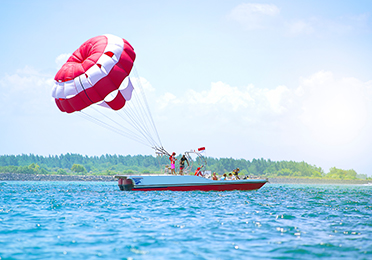
Bali's Adrenaline pumping Water Sports
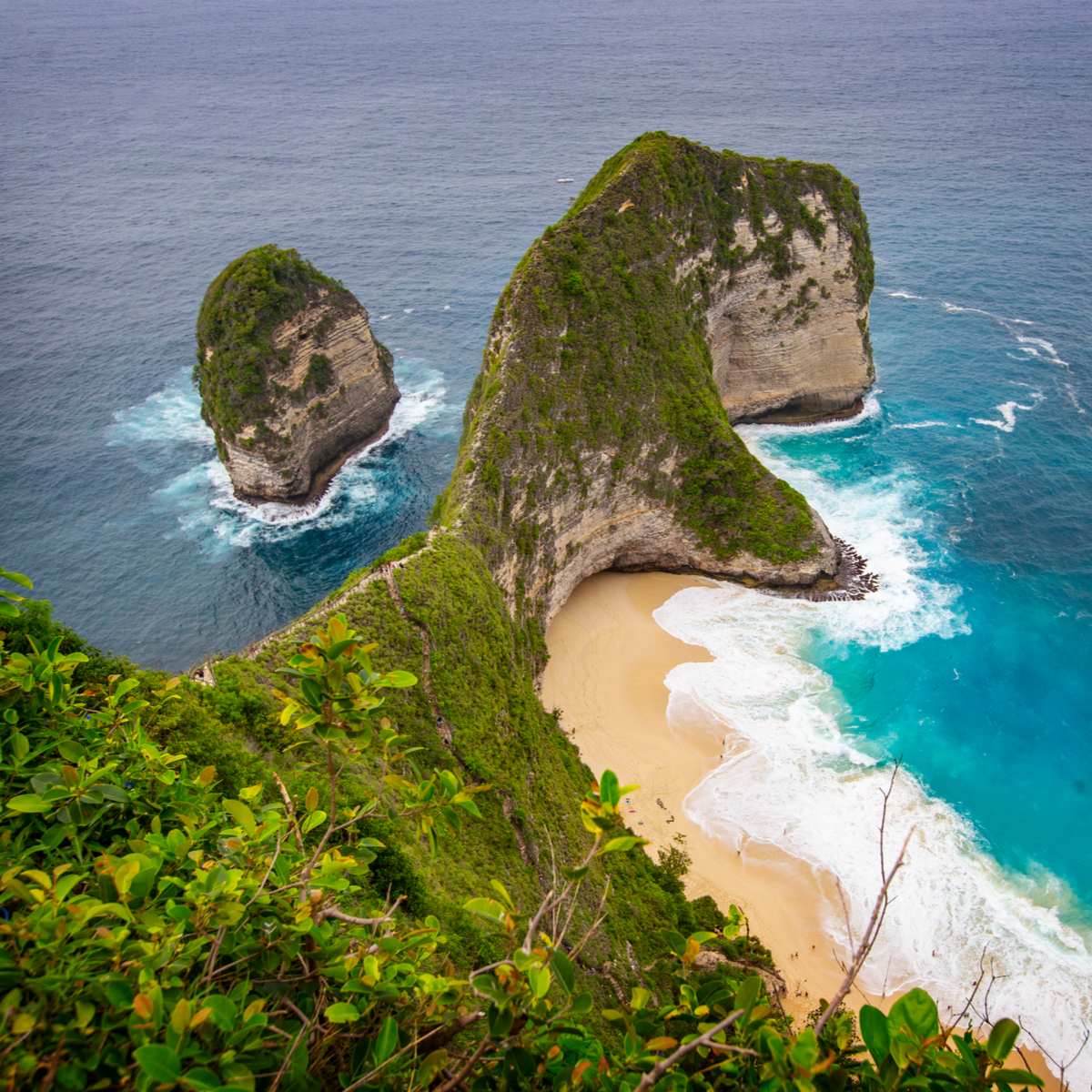
Imagine Visiting Beautiful Beaches That Match Your Chinese Zodiac
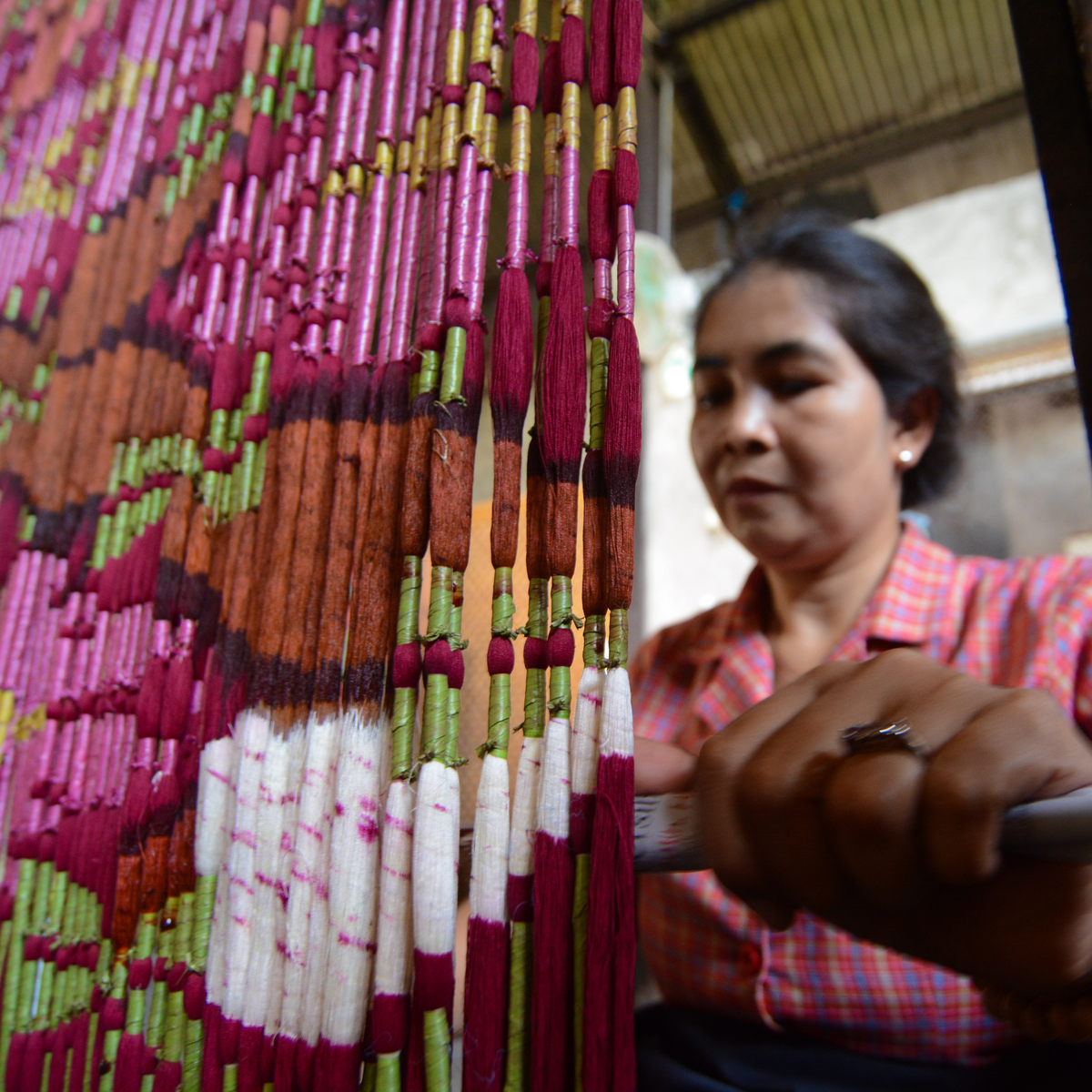
5 Enchanting Traditional Textiles from Bali
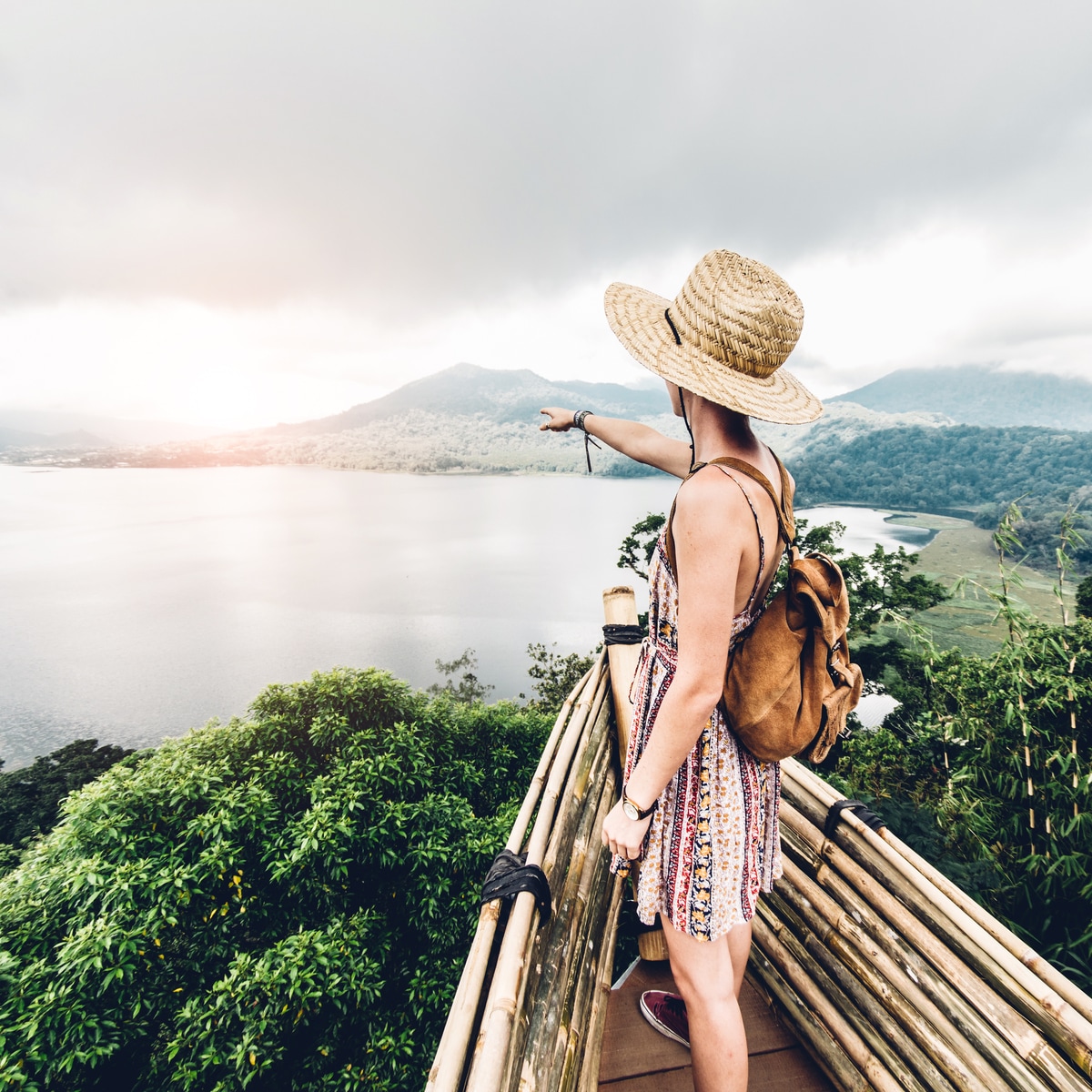
Missing Bali’s Paradise? Plan a Magical Trip with These Backpacking Ideas!

Visit our other website
This is the official website of the Ministry of Tourism, Republic of Indonesia and Creative Economy. 沪ICP备19023026号 . The contents listed on this website are intended for informational purposes rather than commercial. Any displayed sale is meant as a token of partnership and will always redirect you to our partners' sites.

DAFTARKAN PERJALANAN LUAR NEGERI ANDA
Safe Travel dibuat dan dikembangkan oleh Kementerian Luar Negeri RI. Dapatkan informasi praktis yang Anda perlukan ketika berada di luar negeri untuk berbagai keperluan, seperti wisata, studi, umrah/haji, atau bekerja.

Cari informasi negara yang akan anda kunjungi
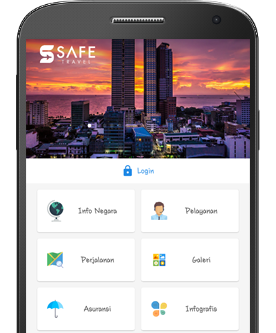
DOWNLOAD APLIKASI SAFE TRAVEL
- Mengakses tombol darurat
- Mendapatkan poin, level, dan badge
- Fitur-fitur menarik lainnya

HUBUNGI KAMI
Kementerian Luar Negeri RI
Jl. Taman Pejambon No. 6, Jakarta Pusat, DKI Jakarta 10110 Indonesia
No Telp : (+62 21) 3441508 - 3813186
Email: [email protected]
BERLANGGANAN INFO KAMI

How safe is Jakarta for travelers? Guide for Jakarta
Jakarta is the sprawling capital of Indonesia and a testament to its rapid growth and vibrant culture. The city attracts countless travelers every year with its bustling streets, towering skyscrapers, and rich history. Being in a big city has its perks, but it also requires taking some safety measures. In this guide, we will explore in-depth the safety landscape of Jakarta.
Walking in Jakarta by Day
Jakarta is a big city, so planning what you will explore for the day should be done before you go out. It’s not a city that’s easy to walk long distances in, but when you get to some areas like Fatahillah Square , the harbor, Merdeka Square (Monas monument), and other hubs it’s nice to walk around.
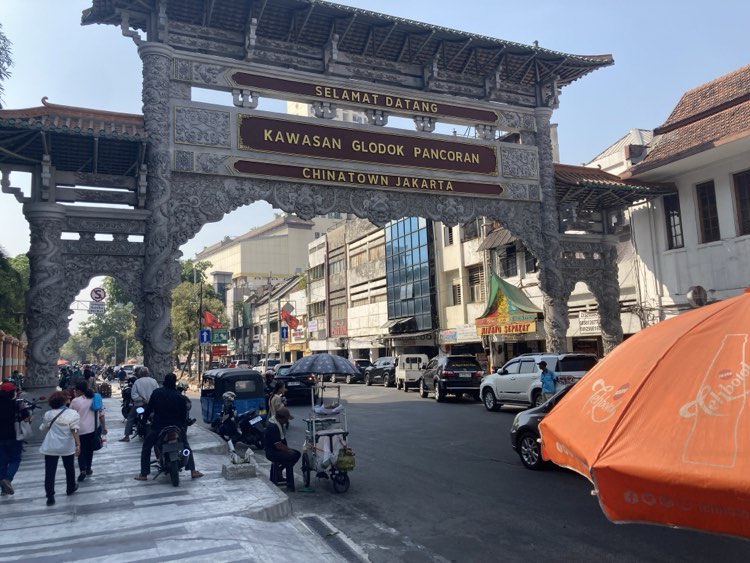
If you don’t plan your activities for the day you should use grab or public transportation for longer distances. It can be very hot, and in a lot of places, it’s not safe to cross the roads. If you start wandering around you will quickly get lost, use maps.me or other maps. It’s a big city, so if you have some sights you want to see you should plan your day!
The Daytime Atmosphere
During daylight hours, Jakarta hums with activity. Business districts like Sudirman and Thamrin are buzzing with professionals, while tourist areas such as Kota Tua welcome visitors with open arms.
Safe Areas to Explore
Jakarta is generally a safe city, and I walked in many narrow streets even at nighttime when there was no other tourist and felt very safe. Most backpackers stay in Jakarta just for a few days and go to the sights. These are places where it’s generally very safe to be!
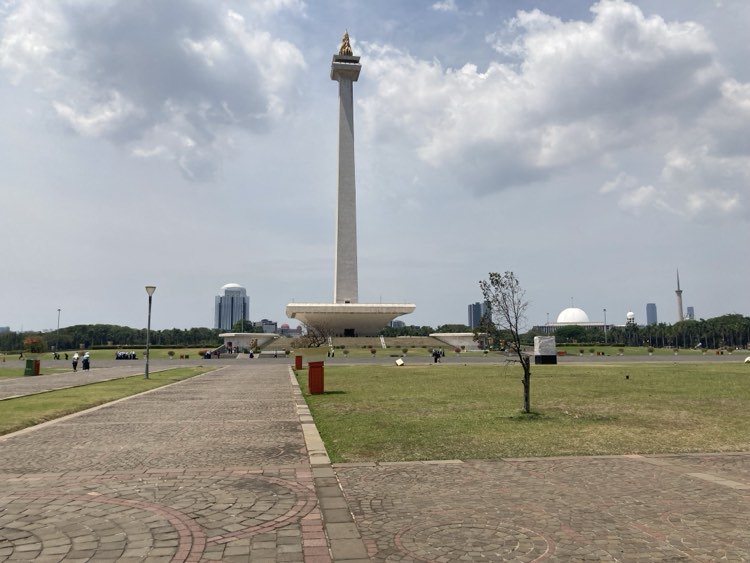
Pedestrian Safety
Despite its allure, Jakarta is notorious for its traffic congestion. Crossroads can be overwhelming. Always use designated pedestrian crossings, and if you’re unsure, watch and follow the locals—they’ve mastered the art of navigating Jakarta’s traffic. The most dangerous thing in Jakarta? the traffic!
Jakarta After Dark: Night-time Safety
When the sun sets, Jakarta takes on a different vibe. The city comes alive with night markets, street food stalls, and vibrant nightlife.
Night-time Atmosphere Nightlife in Jakarta is more vibrant than many think, and there are plenty of bars! Food markets, bars, restaurants, public places, and malls are safe places at night also.
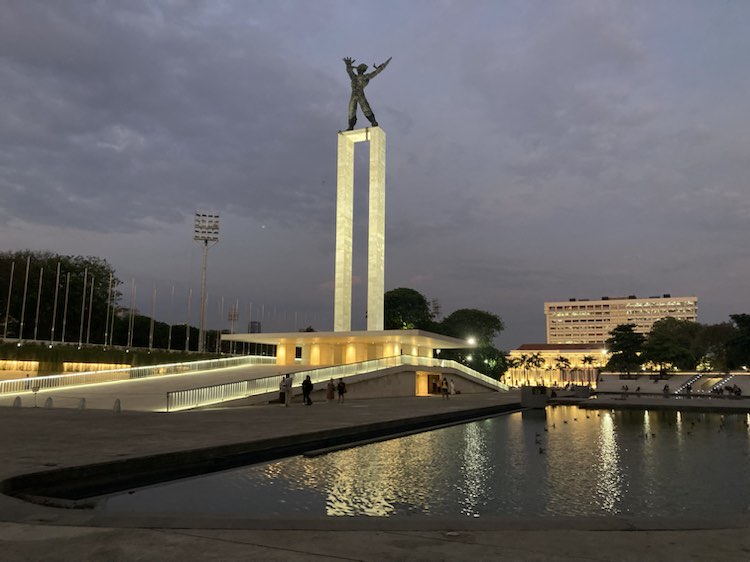
Irian Jaya Liberation Monument is a nice place to go for a run or work out outdoors in Jakarta. There are also benches you can sit on and relax in a quiet atmosphere in the evening.
It’s advisable to avoid poorly lit and less crowded areas after dark. Always opt for reliable transportation when moving between locations, Grab is very good.
What to Avoid in Jakarta
Jakarta is generally very safe, but it’s essential to be aware of potential pitfalls.
Scams Targeting Tourists Beware of overly friendly individuals offering unsolicited help or services. Overcharging is also common, so always agree on prices beforehand, especially with street vendors or rickshaw drivers.
Jakarta’s Reception of Western Travelers
Indonesia’s capital is a melting pot of cultures, and Jakartans are known for their warmth and hospitality.
General Attitude The majority of Jakartans are accustomed to seeing Westerners, given the city’s status as a business hub. Most locals are friendly, curious, and willing to assist. But be ready to take some selfies. I also got interviewed by groups of young students for their school projects.
Cultural Etiquettes While Jakarta is modern, it’s rooted in deep cultural and religious beliefs. Dress modestly, especially when visiting religious sites, and be respectful of local customs.
Essential Tips for Cultural Etiquette in Indonesia – Travel with Respect
Read up on the etiquette for traveling in Indonesia in general. As a foreigner, you can upset many locals if you don’t have a clue about their etiquette. Indonesians are very friendly and warm, so they will rarely get mad even when you do something that could be offensive.
Solo Female Travelers in Jakarta – What to Know
Jakarta can be a rewarding destination for solo female travelers, but certain precautions will ensure a smooth journey.
While incidents are rare, it’s essential to stay vigilant. Avoid secluded areas, especially after dark, and always inform someone about your whereabouts. Be careful if you get offered drinks. If you’re a solo female traveler then be extra aware of transportation, only use official companies.
Dressing modestly is key. While Jakarta is more liberal than other Indonesian cities, conservative attire is still appreciated, especially in local neighborhoods.
General Safety Tips for Exploring Jakarta
- Personal Belongings : Use anti-theft bags and avoid displaying expensive gadgets. But bringing your iPhone is not a problem in most places!
- Trusted Transport : Opt for official taxis or apps like Grab and Gojek. Public transport is also very safe.
- Travel Insurance : Ensure you have comprehensive travel insurance covering theft and medical emergencies.
- Emergency Contacts : Always have the contact details of your embassy and local emergency services.
Most of the thefts in Jakarta is petty theft. Avoid it by where you go and carefully looking after your items.
Jakarta has been ranked as the 46th safest city in the world in 2021 according to en.tempo.co .
Jakarta is very safe!
Jakarta, with its myriad attractions, is a city that beckons to be explored. While it poses some urban challenges, being informed and cautious will ensure that your Jakarta experience is nothing short of amazing. Embrace the city’s chaos, cherish its beauty, and navigate its streets with confidence, equipped with the insights from this guide.
Similar Posts
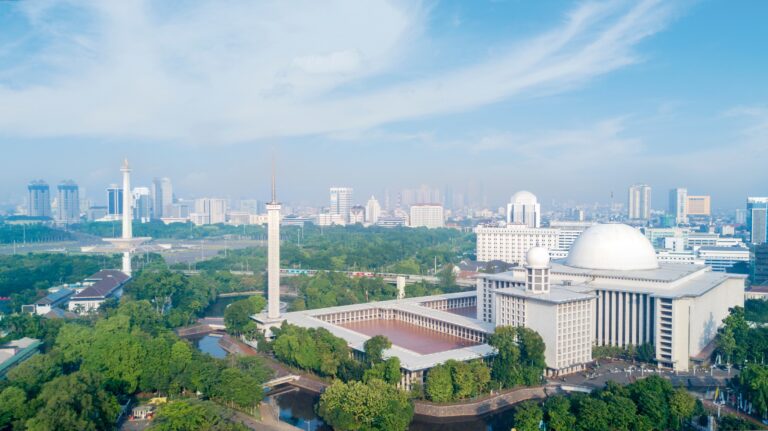
Guide For Visiting Istiqlal Mosque in Jakarta
Located in the bustling heart of Jakarta, Indonesia, the Istiqlal Mosque stands as a symbol of the country’s rich cultural and religious diversity. As the largest mosque in Southeast Asia, it boasts gleaming domes and majestic architecture, attracting visitors from all over the world. This guide will provide an in-depth look at what makes Istiqlal…
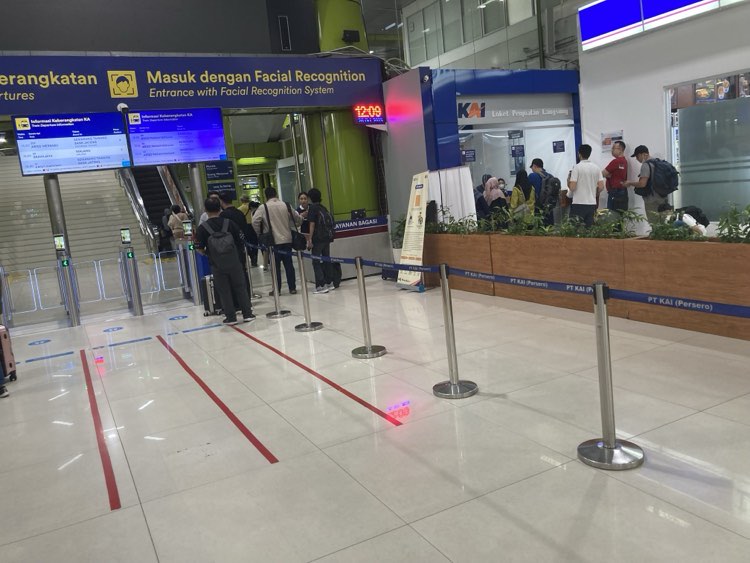
How to Travel from Jakarta to Bandung With Train
Taking a train journey from bustling Jakarta to the cooler climate of Bandung is an experience that many locals and travelers enjoy. The train provides a break from the notorious traffic of Indonesia’s roads and offers an opportunity to appreciate the scenic views of West Java. In this guide, you will find all the information…
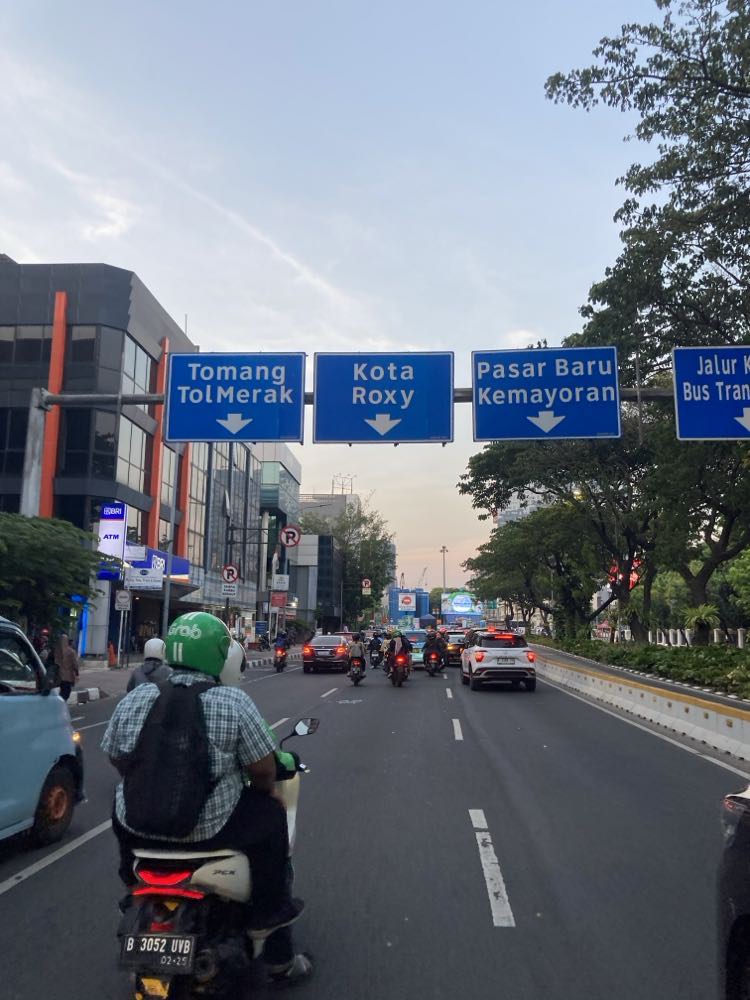
Navigating Jakarta – Your Guide to Transportation in the City
Jakarta, Indonesia’s sprawling capital, is not just a hub of business and culture, but it also stands as a symbol of modern-day urban challenges. In a metropolis of over 10 million people, moving around can be an adventure of its own. Jakarta can be explored in different ways, according to your budget and what level…
Explore the Best of Jakarta – 7 Essential Attractions for Every Traveler
Jakarta is a bustling metropolis that serves as the heart of Indonesia. It seamlessly combines ancient traditions with modern city living, making it an attractive destination for history buffs, culture enthusiasts, and anyone passing through or starting their journey in Jakarta. In this article, we will explore 13 of the city’s most captivating attractions. Most…
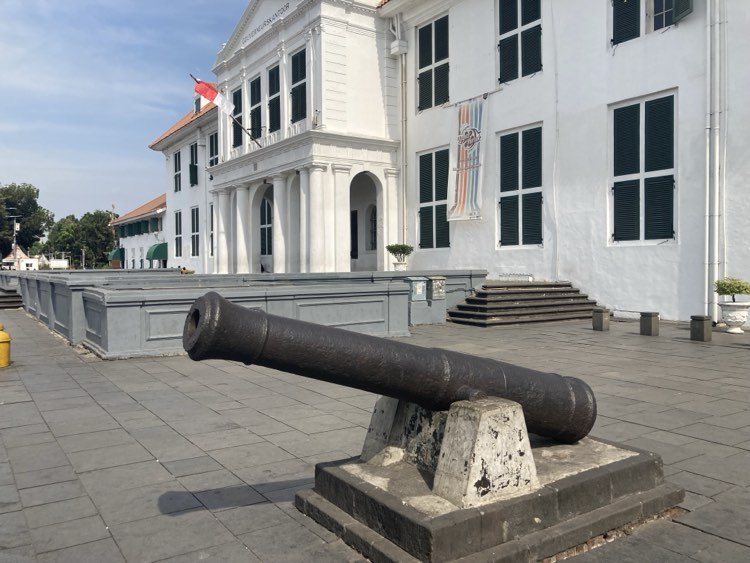
Jakarta History Museum Guide
Jakarta is a city that seamlessly blends the past with the present, and it has a wealth of stories to share. For those interested in learning about its history, the Jakarta History Museum is the perfect place to visit. Located right in the heart of the iconic Fatahillah Square, this museum is a must-visit for…
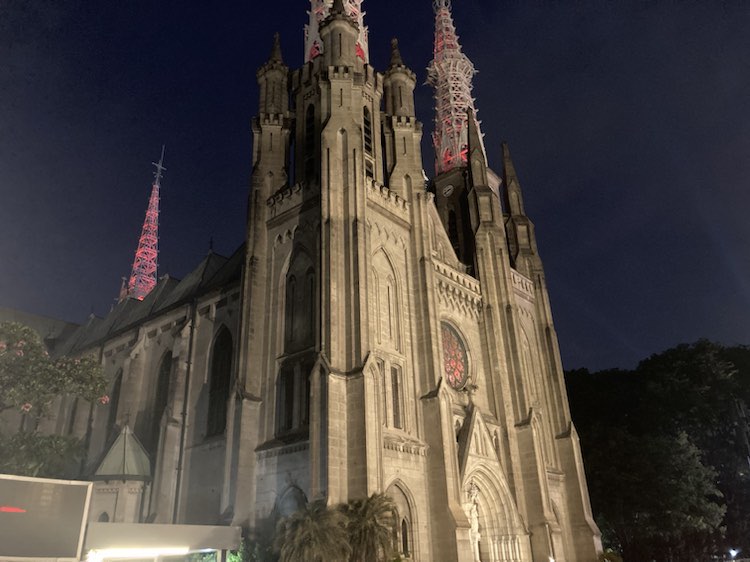
Explore Jakarta Cathedral – Guide, Tips, History, and More
Jakarta Cathedral is a magnificent religious monument situated in the bustling heart of Jakarta, the capital city of Indonesia. It reflects the unique blend of faith and architecture and stands as a chapter of Indonesia’s rich history. The cathedral’s serene corridors and stained-glass artistry create a mesmerizing experience for its visitors. In this guide, we…
Leave a Reply Cancel reply
Your email address will not be published. Required fields are marked *
Save my name, email, and website in this browser for the next time I comment.

Is Jakarta Safe? Tips for Travelers in Indonesia
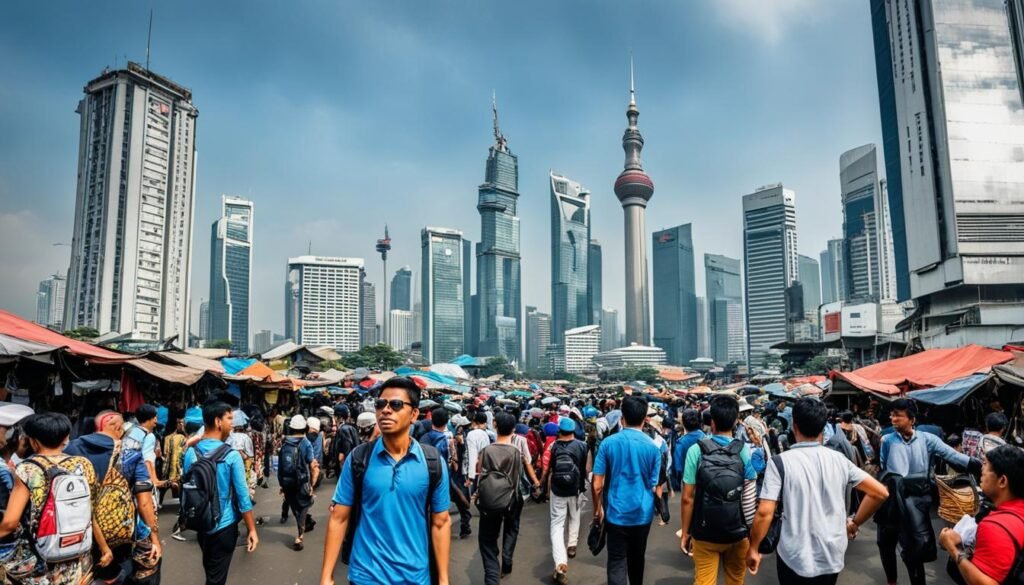
When you’re planning a trip to the bustling capital of Indonesia, you might find yourself wondering, “Is Jakarta safe?” It’s a legitimate query, given the city’s reputation as a vibrant hub of culture and commerce. Jakarta does indeed offer a higher standard of safety compared to various other Asian metropolises, but it pays to be prepared and stay on your toes. Ensuring your personal security in Jakarta is pivotal, particularly when it comes to guarding against common nuisances like tourism-related scams and petty crimes.
Staying safe in Jakarta demands a vigilant eye, especially in crowded locales such as the renowned Ancol Port Area. Adopting effective Jakarta security measures , like staying informed about emergency contact numbers and mastering the know-how to navigate local transport, can make all the difference. Secure in Jakarta not only means keeping a wary eye on your wallet but also relishing in the cultural extravaganza that this city has to offer, without undue stress.
Key Takeaways
- Exercise vigilance for safety in Jakarta , especially in tourist-heavy zones.
- Be highly cautious with your belongings to prevent petty thefts and scams.
- Knowing emergency numbers can enhance your security in Jakarta.
- Understanding local transportation practices is essential for staying safe in Jakarta .
- Prepare to embrace Jakarta’s culture with an informed and cautious approach.
Understanding Safety in Jakarta
Delving into Jakarta’s landscape of security, you might wonder, “ Is Jakarta safe? ” This bustling metropolis is a patchwork of cultures and people, each contributing to the city’s dynamic atmosphere. While Jakarta’s crime rate and concerns might mirror those of any large city, understanding the nuances of personal safety in Jakarta is vital for anyone looking to visit or settle.
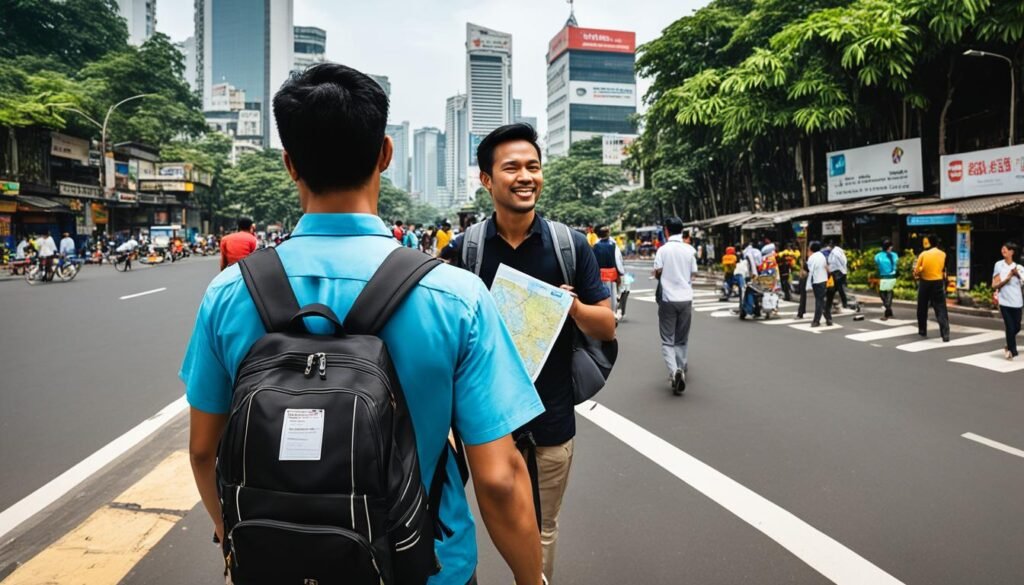
An Overview of Jakarta’s Safety Landscape
When discussing personal safety in Jakarta , it’s essential to recognize the city’s growth as a global destination and the consequent rise in petty crimes and scams—a trend seen in many cities experiencing significant urban expansion. Vigilance is key, especially in tourist-dense regions, where one’s sense of security can be easily compromised.
Comparing Crime in Jakarta to Other Asian Cities
In comparison with its Asian counterparts, Jakarta’s violent crime rates are relatively low. However, the occurrence of non-violent crimes such as pickpocketing and small-scale fraud means that precautions in Jakarta are no less important. Awareness of your environment and keeping personal belongings secure are basic yet effective strategies to mitigate these risks.
Secure Neighborhoods in Jakarta
As expatriates and savvy travelers seek out the more secure neighborhoods in Jakarta , areas such as Menteng and Kuningan rise to the top as enclaves of safety. These areas boast better security infrastructure and community watchfulness, making them attractive options for those concerned with safety.
Whether you’re passing through Jakarta or looking to make it your home, take into account the city’s diverse cultural tapestry and bustling city life. Keep abreast of the crime rate in Jakarta , stay mindful of your possessions, and consider the secure neighborhoods in Jakarta as your zones of comfort.
Navigating Jakarta: Transportation and Personal Security
As you weave through the vibrant streets of Jakarta, it’s imperative to stay vigilant about transportation and personal security. While the city’s transit options are numerous, they come with their share of risks. This section will guide you through the best practices for staying safe in Jakarta .
Taxis, Buses, and Transport Scams
When hailing a taxi in Jakarta, always ensure that the meter is on to avoid overcharging, a common issue among unsuspecting travelers. In cases where taxis do not have a meter, agree on a fair price before the journey begins. Public buses offer an economical way to travel, yet they pose a higher risk for pickpocketing and theft . Use the table below to gauge the transportation options and understand how to avoid commonplace transportation scams .
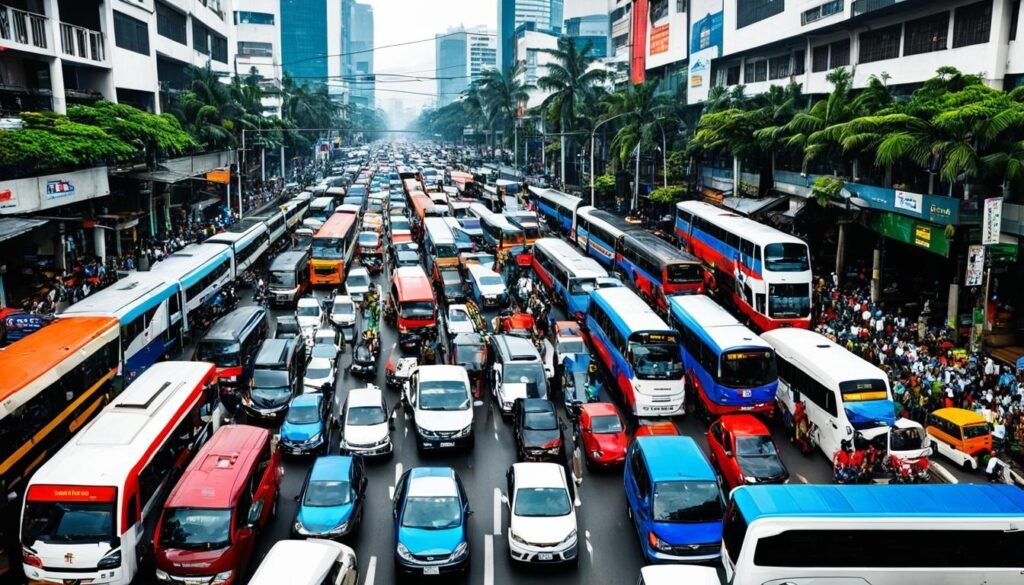
Pickpockets and Theft Prevention Strategies
When exploring the city, carrying less cash and using a sturdy, theft-proof bag can minimize the risks of pickpocketing, especially in crowded areas. Be particularly mindful of your belongings in Jakarta’s bustling markets and public transport, where pickpocket prevention is crucial for staying safe in Jakarta .
- Wear bags with the strap across your chest, not hanging on one shoulder.
- Avoid displaying valuables like smartphones and jewelry in open sight.
- Use inner pockets of clothing for storing essentials like money and ID.
Local Insights: Traveling Safely in the City
Gaining local insights is invaluable for safe travel within Jakarta. Engage with residents for advice on the safest routes and trustworthy transportation services. Following the safety in Jakarta tips from locals can lead to not only a secure journey but also a more authentic experience of this dynamic city.
“When in Jakarta, I always recommend using app-based transportation as they provide traceable and accountable services which helps to mitigate Jakarta transportation risks significantly.” – Local Jakarta Resident
By keeping these safety guidelines in mind, you can protect yourself against common transportation scams and theft, ensuring an enjoyable visit to Indonesia’s capital.
Is Jakarta Safe: Assessing Risks for Travelers
As you plan your visit to Jakarta, understanding the safety in Jakarta is as crucial as choosing your itinerary. While this vibrant city beckons with its unique charm, being mindful of personal safety in Jakarta ensures a smoother experience. Let’s dissect the issues, looking past the crime rate in Jakarta to practical safety steps you can adopt during your travel.
It’s relevant to acknowledge that petty theft, such as pickpocketing, can occur, particularly in areas hustling with tourists and locals. Scams, too, aren’t unheard of, with incidents of credit card skimming and the less common but more dangerous drinks spiking. Vigilance in these scenarios is your first line of defense. Always keep a close eye on your belongings and be cautious when strangers offer unsolicited help or drinks.
Jakarta’s buzzing streets highlight another dimension of risk—road safety. The dense traffic and sometimes absent pedestrian lanes call for an increased awareness when navigating the city on foot. Likewise, concern for food and water safety in Jakarta cannot be overstated; stick to bottled water and reputable food outlets to avoid health issues.
When it comes to safety, your proactive measures shape the security of your travels as much as any local enforcement does.
Below is a snapshot of common safety issues faced in Jakarta compared to the recommended protective actions:
Acknowledging the Jakarta security measures put in place, like an active police presence and security checks in public spaces, goes a long way in reinforcing personal safety in this bustling city. As you thread through Jakarta’s diversity, your awareness can turn potential vulnerabilities into well-managed risks, allowing for an enriching travel story to tell.
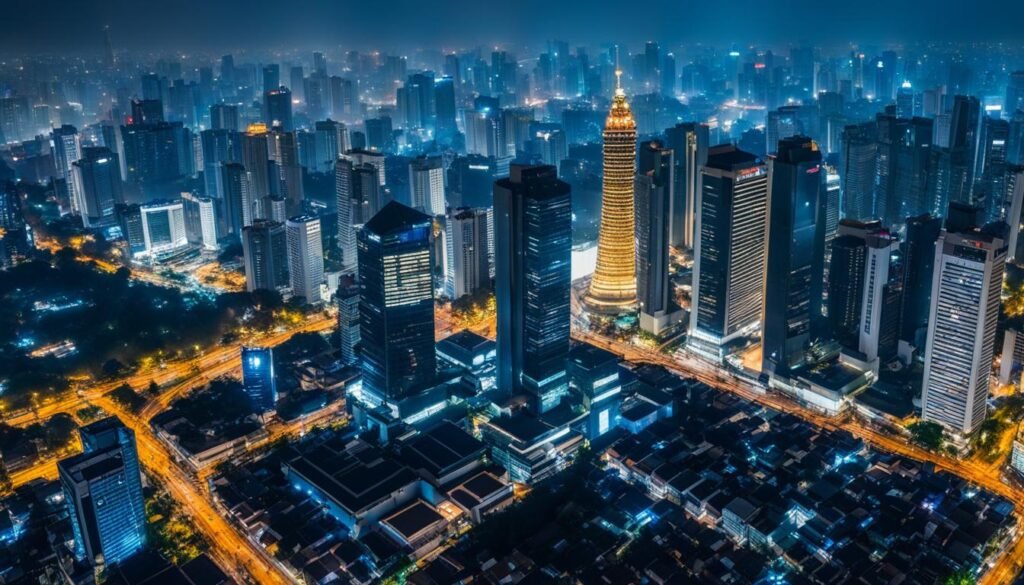
Emergency Preparedness and Response in Jakarta
Living in or visiting Jakarta demands an understanding of the procedures and resources available for handling emergencies. No matter how bustling and vibrant the city appears, emergency preparedness Jakarta style should be a well-knit part of your stay. It’s not just about the possibility of encountering Jakarta natural disasters but also being aware of potential terrorism in Jakarta . Preparing yourself with the right information can be the difference between panic and poise. Let’s ensure you’re armed with knowledge to react correctly in times of need.
Key Emergency Contacts and Numbers
Quick access to emergency contact numbers can save lives. Whether you’re facing a criminal incident or need medical assistance, it’s imperative to know whom to call:
Natural Disasters: What to Do and Who to Call
Being situated on the “Ring of Fire” makes Jakarta a hotspot for seismic events. If you encounter an earthquake or any other natural disaster, reach out to BASARNAS at 115 for guidance on emergency response and evacuation. Stay alert for warnings and advisories from local authorities and have an action plan for such scenarios.
Terrorism Awareness and Safety Measures
While terrorism remains a concern in major cities worldwide, Jakarta has taken significant steps to combat and prevent such threats. It is vital to stay informed about the current climate and exercise heightened awareness in public spaces. Remember, preparedness is a critical factor in emergency response , and knowing safety guidelines is imperative.
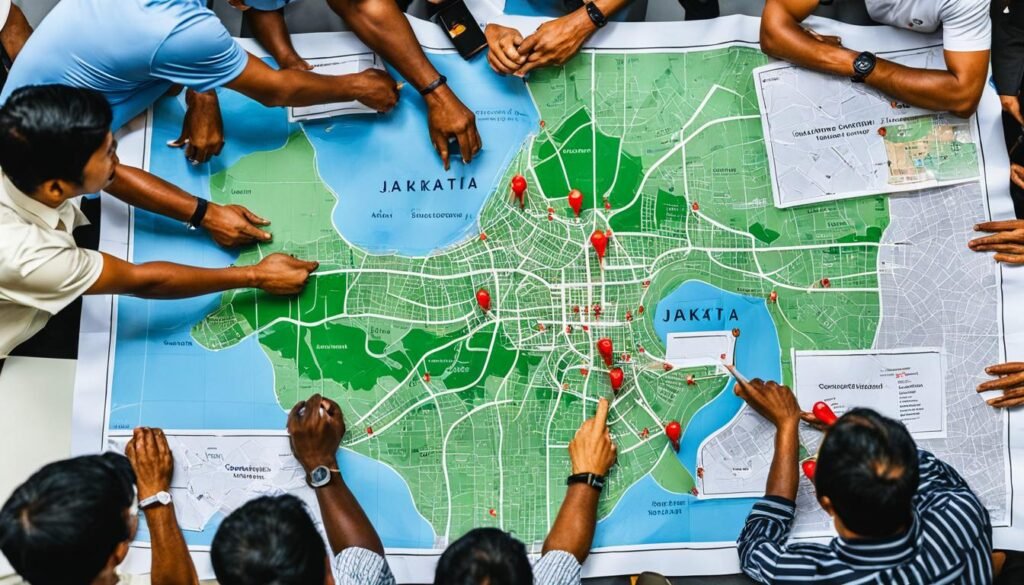
Practical Tips for Staying Safe in Jakarta
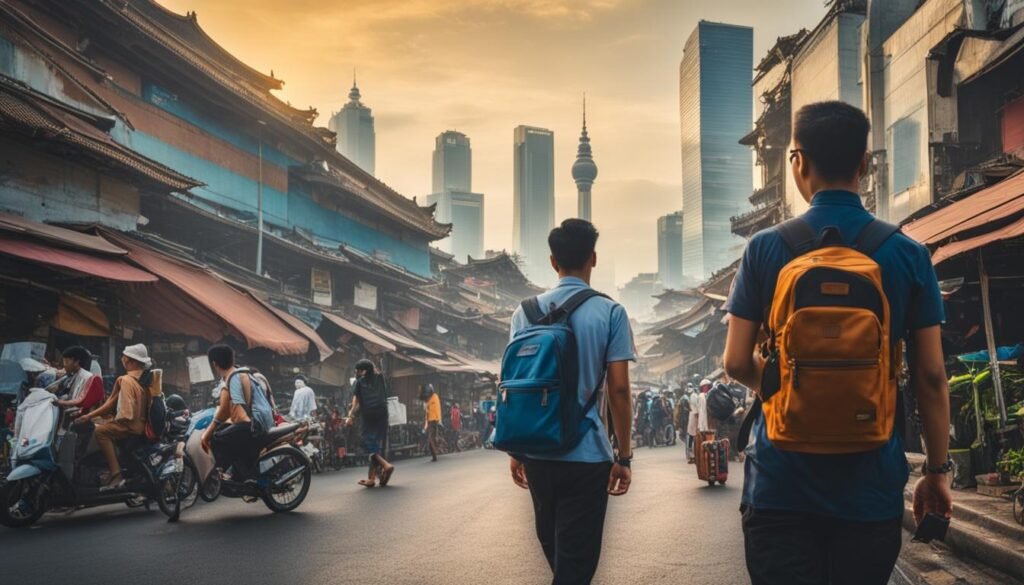
Traveling to Jakarta can be an exhilarating experience, rich with cultural immersion and exciting urban explorations. However, just like with any bustling metropolis, taking certain precautions in Jakarta will ensure you keep unwanted surprises to a minimum and enjoyment to a maximum. Here’s a handy guide to help you navigate the city with confidence.
Handling local currency with care is the first step in securing belongings in Jakarta . Opt for ATM withdrawals at reliable spots such as the airport and stay clear of unauthorized currency exchange booths. Moreover, it’s wise to carry photocopies of your essential identification documents instead of the originals. Should you find yourself in need of assistance, these copies will be invaluable.
- Always withdraw money from ATMs in secure locations, preferably inside banks or shopping centers.
- Keep digital copies of your passport on your phone or in a secure cloud storage.
- Be discreet when handling cash in public to avoid drawing attention.
Fostering an environment of religious tolerance, Jakarta is predominantly open and accepting. For women traveling alone, the city is generally safe, provided you stay vigilant and steer clear of higher-risk areas, especially after dark. Remember, Jakarta safety tips often include being culturally sensitive and aware of your surroundings.
- Avoid walking alone late at night in less-traveled areas.
- Adopt dress codes that are respectful of the local culture, especially when visiting religious sites.
Staying hydrated in Jakarta’s tropical climate is crucial; however, make sure it is with bottled water. Tap water is not purified and can be harmful if consumed directly. When it comes to food, select dining options that are clean and reputable. And as Jakarta is notorious for its traffic, be constantly aware of traffic risks as a pedestrian and when using public transport.
- Buy bottled water from recognized retailers.
- Choose restaurants and street food vendors that are busy and have a high turnover of food.
- Use pedestrian crossings where available and always be alert when crossing roads.
Your experience in Jakarta doesn’t have to be marred by safety concerns if you adhere to these Jakarta security measures . Whether you are navigating the city’s vibrant streets, indulging in the local cuisine, or interacting with the delightful locals, keeping these tips in mind will pave the way for a memorable and secure visit to Indonesia’s capital city.
As you ponder the question, “Is Jakarta safe?”, it’s crucial to recognize the nuances of navigating Indonesia’s bustling capital. With its vibrant mix and vast population, the city indeed presents challenges, yet these need not deter you from your travels. By embracing Jakarta’s culture safely , exercising awareness, and leveraging travel tips Jakarta offers, you can significantly lower the risks and enrich your experience.
Traveling securely in Jakarta hinges on proactivity—staying informed on emergency procedures, understanding transportation safety, and practicing effective crime prevention can vastly improve your sense of security. While no destination is without its perils, Jakarta’s allure is accessible to those who are prepared. The key is to remain vigilant and adapt to the city’s dynamic rhythm. Carry with you the advice from locals and seasoned travelers, as their insights are invaluable for a secure journey.
Ultimately, your adventure in Indonesia’s capital can be both thrilling and safe. With the right preparation and mindset, you’ll find that Jakarta opens its doors to a world of intrigue and discovery. Remember these insights and carry them along as you navigate the streets and alleys of this fascinating city, knowing that a memorable and secure trip is within your grasp.
Is Jakarta safe for tourists?
Jakarta is generally safe for tourists compared to many large cities, but like any major urban area, it has its risks. You need to be vigilant, especially against pickpocketing and scams. Certain neighborhoods are more secure than others.
How does the crime rate in Jakarta compare to other Asian cities?
Overall, Jakarta has a lower rate of violent crimes compared to some other Asian cities but stays vigilant as petty theft and scams are more common.
Which neighborhoods in Jakarta are considered the most secure?
Areas such as Menteng, Kemang, and certain parts of South Jakarta are known to be more secure with a higher presence of expats and generally more affluent populations.
What transportation scams should I watch out for in Jakarta?
Be cautious of taxi scams, where drivers may not use the meter to calculate the fare, leading to overcharging. Always insist on using the meter, or use a reputable taxi app.
What are some effective theft prevention strategies in Jakarta?
To prevent theft, carry less cash, use money belts or slash-proof bags, stay alert in crowded places, and keep an eye on your belongings at all times.
Can I get local insights on traveling safely in Jakarta?
Absolutely. Speak with locals or staff at your accommodation for advice on safe areas to visit, reliable transportation options, and places to avoid, especially at night.
What are the key emergency contacts in Jakarta?
In case of emergency, dial 110 for police, 118 or 119 for medical emergencies, and 113 for firefighters. For natural disaster assistance, call Search and Rescue at 115 or Natural Disaster Assistance at 129.
What should I do in the event of a natural disaster in Jakarta?
Stay calm, follow local advisories, seek higher ground in case of a tsunami warning, and follow emergency protocols. Considering Jakarta’s seismic activity, staying informed about your surroundings is crucial.
Are there any terrorism-related safety measures I should be aware of in Jakarta?
Stay updated with news and travel advisories. In areas with security warnings, be vigilant, avoid crowded places, and report any suspicious activity to the authorities.
What practical tips can help me stay safe in Jakarta?
Use ATMs in secure locations, carry copies of your ID rather than originals, stay hydrated with bottled water, and choose street food vendors wisely. Awareness of your environment is key.
Related Posts
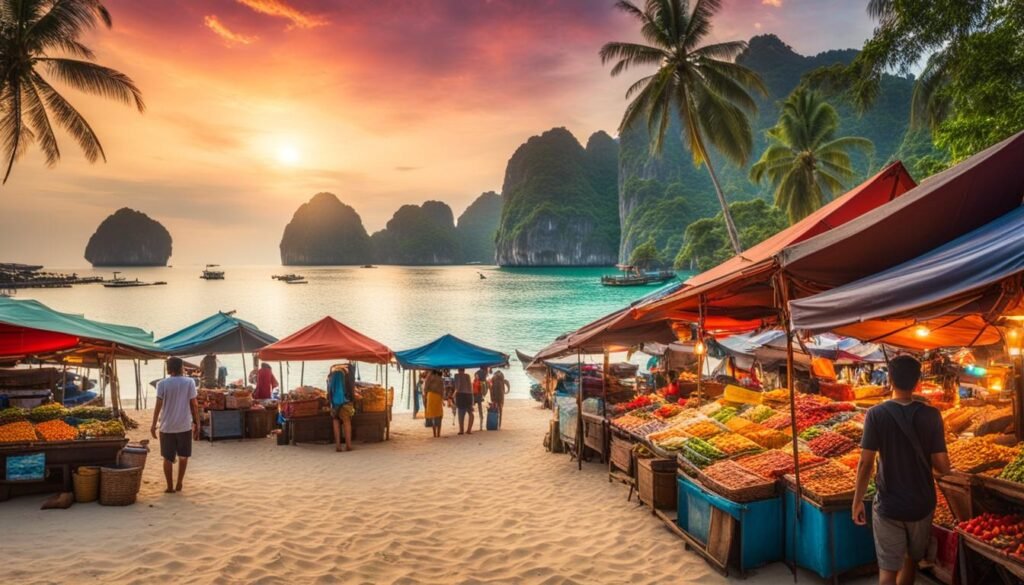
The Essential Guide to Travel Insurance for South East Asia Adventures
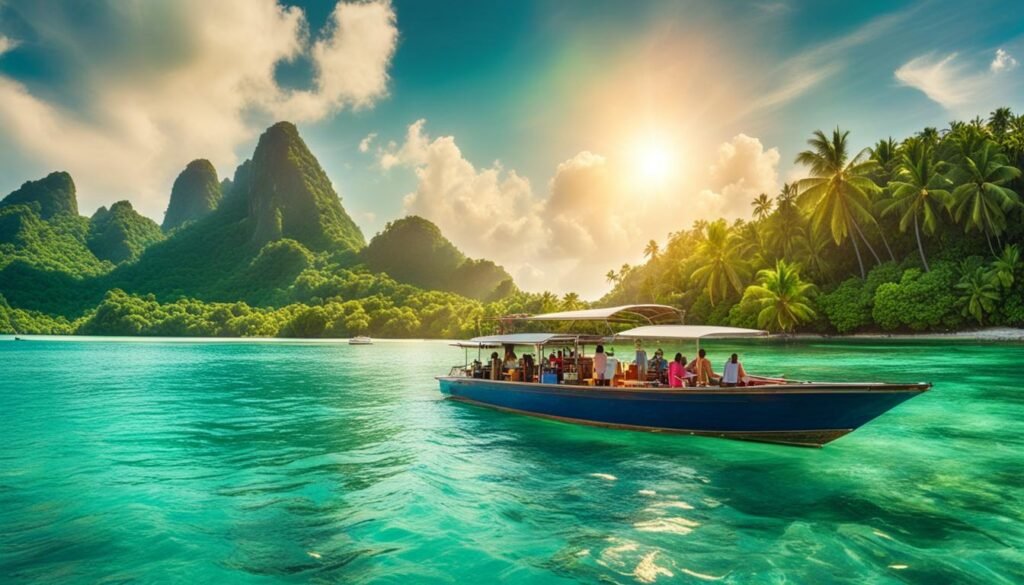
Explore the Magic of Island Hopping Thailand
Is Jakarta Safe? Facts, Tips and Tricks (2024 Guide)

Jakarta, the capital city of Indonesia, is a bustling metropolis with a diverse culture and vibrant atmosphere. While there may be concerns about safety, it’s important to note that like any city, there are areas that are safer than others. In this guide, we will provide you with facts, tips, and tricks to ensure a secure and enjoyable experience in Jakarta.
Key Takeaways:
- While safety concerns may arise, Jakarta can be enjoyed by taking necessary precautions.
- Research and choose to stay in safe neighborhoods like Menteng, Kemang, and Pondok Indah.
- Avoid walking alone at night and use reputable transportation services.
- Respect local customs and be aware of cultural etiquette.
- Stay informed about emergency contacts and security measures.
Understanding the Safety Situation in Jakarta
Jakarta, the bustling capital city of Indonesia, is known for its vibrant atmosphere and diverse culture. However, like any metropolitan area, safety is an important consideration for residents and visitors alike. Understanding the safety situation in Jakarta is crucial for ensuring a secure and enjoyable experience in the city.
When it comes to the crime rate in Jakarta , it is true that the city has a higher crime rate compared to other cities in the region. However, it’s important to note that most trips to Jakarta are hassle-free and incidents of violent crime are relatively low. The city has taken significant measures to improve security and law enforcement to ensure the safety of its residents and visitors.
“Most trips to Jakarta are hassle-free and incidents of violent crime are relatively low.”
Law enforcement agencies in Jakarta have implemented various security measures to combat crime and ensure the safety of the city’s residents and visitors. These measures include increased police presence, enhanced surveillance systems, and strategic security protocols in key areas. It is essential to stay informed about security updates and follow the guidance provided by local authorities during your time in Jakarta.
By understanding the safety situation in Jakarta and taking necessary precautions, you can have a safe and memorable experience in this vibrant city.
Safe Neighborhoods in Jakarta

When it comes to living in Jakarta , safety is a top concern for residents and expats. While safety levels can vary throughout the city, there are several neighborhoods that are generally considered to be safer than others. These areas provide a sense of security, well-maintained infrastructure, and vibrant expat communities. If you’re considering moving to Jakarta, here are some of the safe neighborhoods worth exploring:
- Menteng: Located in Central Jakarta, Menteng is known for its leafy streets, upscale residences, and a low crime rate. It is home to many government officials, expats, and diplomats, contributing to its reputation as a safe neighborhood.
- Kemang: Situated in South Jakarta, Kemang offers a laid-back atmosphere, trendy cafes, and a strong sense of community. The neighborhood is popular among expats and locals alike, providing a safe and welcoming environment.
- Pondok Indah: Another sought-after neighborhood in South Jakarta, Pondok Indah is renowned for its luxurious housing complexes, shopping malls, and international schools. It boasts excellent security measures and is favored by expat families.
It’s important to note that while these neighborhoods generally have lower crime rates, it’s still crucial to take necessary precautions and remain vigilant. Different areas may have specific safety considerations, and it’s advisable to do thorough research, consult with locals or experts, and consider your personal needs and preferences before choosing a neighborhood to live in. Safety is subjective, and what may be safe for one person might not be the same for another.
Safety Tips for Living in Jakarta

Living in Jakarta can be an exciting experience, but it’s also important to prioritize your safety. By following these practical tips and security measures, you can ensure a secure and worry-free stay in the city.
Avoid Walking Alone at Night
One of the most important safety tips for Jakarta is to avoid walking alone at night, especially in unfamiliar or poorly lit areas. Instead, opt for using reputable transportation services, such as taxis or ride-sharing apps like Grab or Gojek, which provide a safer mode of travel. Planning your outings during daylight hours can also minimize potential risks.
Be Cautious with Personal Belongings
Keeping a close eye on your personal belongings is essential in any crowded city, and Jakarta is no exception. Be mindful of your surroundings, especially in crowded areas, tourist attractions, and public transportation. Keep your valuables secured and avoid displaying expensive items or large sums of cash. Using bags with anti-theft features, like slash-proof material or hidden compartments, can provide an added layer of security.
Stay Informed about Security Alerts and Advisories
Staying updated on security alerts and advisories is crucial for staying safe in Jakarta . Regularly check the local news, embassy websites, or official government channels for any relevant information. It’s also a good idea to register with your embassy or consulate to receive travel advisories or emergency alerts. Being aware of any potential risks or disturbances can help you make informed decisions about your safety.
Remember, by taking necessary precautions and staying informed, you can minimize the risks and enjoy the vibrant atmosphere Jakarta has to offer.
Additionally, it’s important to familiarize yourself with local laws and customs to avoid any unnecessary risks. Respecting local traditions, cultural etiquette, and following the guidance of local authorities are integral parts of staying safe and contributing to a harmonious experience in Jakarta.
Here are some additional safety tips:
- Travel in groups whenever possible, as there is safety in numbers.
- Keep a photocopy of your passport and important documents in a separate location.
- If you are renting a property, ensure it has adequate security measures, such as CCTV cameras and secure entrances.
- Use reputable ATMs located inside banks or shopping malls to minimize the risk of card skimming.
- Be cautious when using free public Wi-Fi networks, as they may be insecure. Use a VPN (Virtual Private Network) for added online security.
Transportation Safety in Jakarta

Jakarta offers a variety of transportation options, ensuring easy mobility throughout the city. Whether you prefer buses, taxis, or ride-sharing services, it’s important to prioritize your safety by choosing reputable and licensed providers. Opting for reliable transportation not only ensures a secure journey but also provides peace of mind during your travels.
When using public transportation in Jakarta, it’s crucial to stay alert and be cautious of your surroundings. Avoid displaying valuable belongings and keep your personal items secure. Additionally, try to avoid traveling during rush hour as crowded spaces can increase the risk of pickpocketing or theft. By being mindful of these safety measures, you can minimize the chances of encountering any untoward incidents.
For added convenience and security, consider downloading transportation apps such as Grab or Gojek. These popular apps provide a user-friendly platform to book rides, track your journey, and ensure a safe transportation experience. Utilizing these applications allows you to conveniently access reliable transportation options, promoting a hassle-free and secure commute in Jakarta.
Safe Transportation Options in Jakarta
When it comes to transportation in Jakarta, you have a wide range of options to choose from. Here are some of the safe and reliable transportation options available:
By opting for these safe transportation options, you can seamlessly navigate Jakarta while prioritizing your personal safety and well-being.
Health and Medical Considerations in Jakarta

Jakarta is home to a variety of reputable hospitals and medical facilities, providing top-quality healthcare services. Whether you require routine check-ups, specialized treatments, or emergency care, you can rest assured that Jakarta offers a range of healthcare options to meet your needs. With a combination of state-of-the-art medical technology and highly skilled healthcare professionals, you can have peace of mind knowing that your health is in good hands.
When planning your trip to Jakarta, it is important to have adequate travel insurance that covers any medical emergencies or treatments. This will ensure that you receive the necessary care without having to worry about the financial burden. In the event of an unexpected illness or injury, your insurance will allow you to access the best medical services available in the city.
Additionally, Jakarta is located in a region where mosquito-borne diseases such as dengue fever and malaria are prevalent. To protect your health, it is advisable to take necessary precautions against these diseases. This includes wearing mosquito repellent, using mosquito nets while sleeping, and wearing protective clothing, especially during peak mosquito activity periods.
Prior to traveling to Jakarta, it is recommended to consult with a healthcare professional. They can provide guidance on any necessary vaccinations or medications based on your specific health needs. By taking these preventive measures, you can minimize the risk of contracting common tropical diseases and ensure a safe and healthy trip to Jakarta.
Cultural Etiquette and Respect in Jakarta
Jakarta, the capital city of Indonesia, is renowned for its rich cultural diversity. To ensure a positive and harmonious experience, it is crucial to understand and respect the local customs and traditions. Here are some guidelines to help you navigate the cultural etiquette in Jakarta :
- Dress modestly: When visiting religious sites or attending formal events, it is important to dress modestly as a sign of respect. Avoid revealing or provocative clothing and opt for conservative attire.
- Learn basic phrases: Show your appreciation for the local culture by learning a few basic phrases in Bahasa Indonesia, the official language. Greetings, thank you, and common phrases can go a long way in building positive connections.
- Respect local customs: Jakarta has a variety of customs and traditions that are deeply rooted in its diverse heritage. Take the time to educate yourself about these customs and respect them. For example, when entering someone’s home, it is customary to remove your shoes as a sign of politeness.
- Ask for permission: Before taking photographs of people or their belongings, always ask for permission as a gesture of respect for their privacy.
By adhering to these cultural etiquette practices, you will not only show your respect for Jakarta’s diverse community but also foster positive interactions and create lasting memories of your time in the city.
“Respecting the local customs and traditions is a fundamental aspect of experiencing the true essence of Jakarta’s vibrant culture.”
Emergency Contacts and Security Measures
When traveling to Jakarta, it is crucial to prioritize your safety and be prepared for any unforeseen circumstances. Familiarize yourself with emergency contacts and security measures to ensure a secure and worry-free trip.
Emergency Contacts
In case of emergencies, it is essential to have access to the right contacts. Save the contact details of your national consulate or embassy in Jakarta. They can provide assistance and guidance during critical situations. Additionally, familiarize yourself with the local emergency numbers:
- Police: 110
- Ambulance: 118
- Fire Department: 113
Local Security Measures
Jakarta has implemented various security measures to ensure the safety of residents and visitors. Take note of the following:
- Emergency Evacuation Routes: Be aware of the designated emergency evacuation routes in your area of stay. In case of any unforeseen events, follow these routes to ensure a swift and safe evacuation.
- Safe Havens: Familiarize yourself with safe havens, such as police stations or public buildings, where you can seek shelter and assistance during emergencies.
- Security Advisories and Alerts: Stay updated with any security advisories or alerts issued by local authorities. This information will help you make informed decisions and stay safe throughout your trip.
Remember, your safety is paramount. Always follow the guidance provided by local authorities and exercise caution while exploring Jakarta.
Volcanic and Natural Disaster Preparedness
Jakarta, being located in a region prone to volcanic activity and natural disasters such as earthquakes, requires residents and visitors to be prepared for any unforeseen events. Staying informed about heightened geological activity and following official advice and exclusion zones is crucial for personal safety. In addition, consider having a lightweight wind chime or early-warning system for tremors in your accommodation, helping you stay alert during seismic events. It is also essential to familiarize yourself with evacuation procedures and have an emergency kit with essential supplies readily available.
Volcanic Activity in Jakarta
Volcanic activity can have significant consequences on the safety and well-being of individuals in Jakarta. The city is surrounded by volcanoes, including Mount Merapi and Mount Krakatoa, which have erupted in the past, causing destruction and loss of life. Monitoring volcanic activity is essential to ensure early detection and effective response. Stay updated with information from relevant authorities, such as the Indonesian Center for Volcanology and Geological Hazard Mitigation (PVMBG), which provides regular volcano activity reports and advisories.
Natural Disaster Preparedness
In addition to volcanic activity, Jakarta is also susceptible to other natural disasters, such as earthquakes and floods. Being prepared for these events is crucial for your safety. Here are some key steps to enhance your natural disaster preparedness :
- Stay informed: Stay updated with local news, weather reports, and alerts regarding potential natural disasters.
- Emergency evacuation routes: Familiarize yourself with the designated evacuation routes in your area and have a plan for how to reach safe zones in case of an emergency.
- Communication plan: Establish a communication plan with your family and friends, designating a meeting point in case of separation during a natural disaster.
- Emergency kit: Prepare an emergency kit with essential supplies, including food, water, medications, flashlights, and a first aid kit.
- Insurance coverage: Ensure that your travel or residence insurance covers natural disasters, including evacuation and emergency medical expenses.
By taking these precautions and being well-prepared, you can minimize the risks associated with volcanic activity and natural disasters in Jakarta.
Remember, preparation is key when it comes to mitigating the impacts of volcanic activity and natural disasters. Stay informed, stay prepared, and prioritize your safety and the safety of those around you.
When planning your trip to Jakarta, it’s natural to have concerns about safety. However, with the right precautions and awareness, you can have a secure and enjoyable experience in this vibrant city.
By following the safety tips and guidelines provided in this guide, you can mitigate potential risks and ensure your personal well-being. Stay informed about the current safety situation, choose safe neighborhoods to stay in, and be cautious when using public transportation.
Respecting local customs and traditions is also crucial for a smooth and harmonious journey. Dress modestly, learn a few basic phrases in the local language, and show appreciation for the diverse culture of Jakarta.
Remember, safety is a priority, but it shouldn’t overshadow the adventure and excitement of exploring Jakarta. Use common sense, stay informed, and embark on your Jakarta travel adventure with confidence. Is Jakarta safe ? With the right preparation, absolutely!
Is Jakarta safe?
Jakarta, like any city, has areas that are safer than others. While the crime rate may be higher compared to other cities in the region, incidents of violent crime are relatively low. The city has made efforts to improve security and law enforcement, and there are measures in place to ensure the safety of residents and visitors.
What are some safe neighborhoods in Jakarta?
Menteng, Kemang, and Pondok Indah are generally considered to be safer neighborhoods in Jakarta. These areas are known for their expat communities and well-maintained infrastructure. However, it is advisable to do thorough research and consult with locals or experts to determine the safest neighborhoods based on your specific needs and preferences.
What are some safety tips for living in Jakarta?
Some safety tips for living in Jakarta include avoiding walking alone at night, using reputable transportation services, being cautious with personal belongings, and staying informed about any security alerts or advisories. It is also important to follow local laws and customs to avoid any unnecessary risks.
What transportation options are safe in Jakarta?
Jakarta has a range of transportation options including buses, taxis, and ride-sharing services. To ensure safety, it is important to choose reputable and licensed transportation providers. Be cautious of your surroundings while using public transportation and avoid traveling during rush hour to minimize the risk of pickpocketing or theft.
How is the healthcare in Jakarta?
Jakarta has a range of reputable hospitals and medical facilities that provide quality healthcare services. It is important to have travel insurance that covers any medical emergencies or treatments. Additionally, it is advisable to take necessary precautions against common health issues such as mosquito-borne diseases like dengue fever and malaria. Consult with a healthcare professional before traveling and ensure you have any necessary vaccinations or medications.
How should I respect local customs and traditions in Jakarta?
To respect local customs and traditions in Jakarta, it is important to dress modestly, especially when visiting religious sites or attending formal events. Learn a few basic phrases in the local language, Bahasa Indonesia, as it shows appreciation for the local culture. Respect local customs such as removing your shoes when entering someone’s home and asking for permission before taking photographs of people.
What should I do in case of emergencies in Jakarta?
In case of emergencies in Jakarta, save the contact details of your national consulate or embassy. Familiarize yourself with emergency numbers and local security measures such as evacuation routes and safe havens. Stay updated with any security advisories or alerts and follow the guidance provided by local authorities.
How can I prepare for volcanic and natural disasters in Jakarta?
Jakarta is located in a region prone to volcanic activity and natural disasters such as earthquakes. It is important to stay informed about any heightened geological activity and adhere to official advice and exclusion zones. Consider having a lightweight wind chime or early-warning system for tremors in your accommodation. Familiarize yourself with evacuation procedures and have an emergency kit with essential supplies in case of any emergencies.
Source Links
- https://www.lonelyplanet.com/articles/things-to-know-before-traveling-to-indonesia
- https://12go.asia/en/indonesia/travel-tips
- https://www.fodors.com/community/asia/is-jakarta-safe-408837/
Related Posts

Is St. Lucia Safe to Visit? Comprehensive Safety Guide (2024)

Is Chiang Mai Safe? Definitive Safety Guide in 2024

Is Guatemala Safe for Tourists? Essential Guide for 2024

Is Antwerp Safe? Facts, Tips and Tricks (2024 Guide)

Religion in Poland: History and Cultural Impact

Is Japan Safe? Facts, Tips and Insights for 2024

Is Brisbane Safe? Your Definitive Safety Guide in 2024

Is Chicago Safe? Complete Safety Guide for 2024
Didn't find what you need use the search.
Safety in Jakarta - Tips to Know Before Visiting this Beautiful City
When it comes to safety in Jakarta , the city has always had a mixed image from the world. It has had instances where tourists were treated in a very inhumane manner, but there are also happy stories at the other end. But not every town has perfect safety and has its fair share of ups and downs. So it is recommended that you keep a few things in mind before travelling to this beautiful conglomeration of islands. Overall, it is safer than a lot of Asian cities, but you can never be careful enough.
How Safe is Jakarta?
Jakarta is quite a big city, with a lot of districts coming together to form a high density of cultural values and traditions. So in that sense, the city is safe, but since the town became a huge tourist attraction almost ten years ago, the scammers and pick-pockets have been rampant on the streets to get an extra payday.
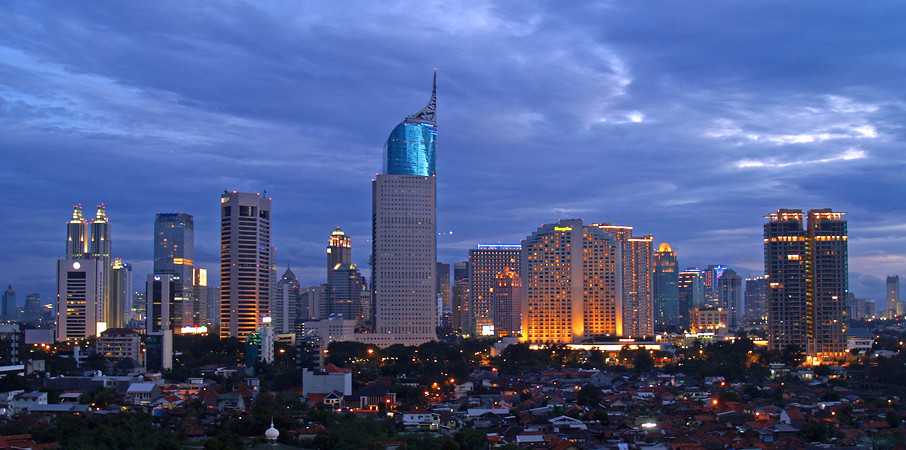
There are certain specified areas where you should always be careful, areas like the Ancol Port Area, which has one of the highest crime rates. You also need to keep an eye on your valuables, especially during the nights. As long as you do that, the chances of your trip getting ruined are quite less.
Emergency Numbers 1.Police/General Emergencies: 110 or 112(From Satellite and Mobile Phones) 2.Ambulance and Medical Emergencies: 118 or 119 3.Firefighter: 113 4.Search and Rescue (BASARNAS): 115 5.Natural Disaster Assistance: 129 6.Bureau of Public Communication of the Ministry of Tourism: +62 21 3838899
Tips for Safety in Jakarta
1. Pickpockets: Although not a significant risk, but this act comes along with a city which is also a tourist attraction. Since foreigners are an easy target for mugging, there are some instances when their belongings are stolen, with violence used often.
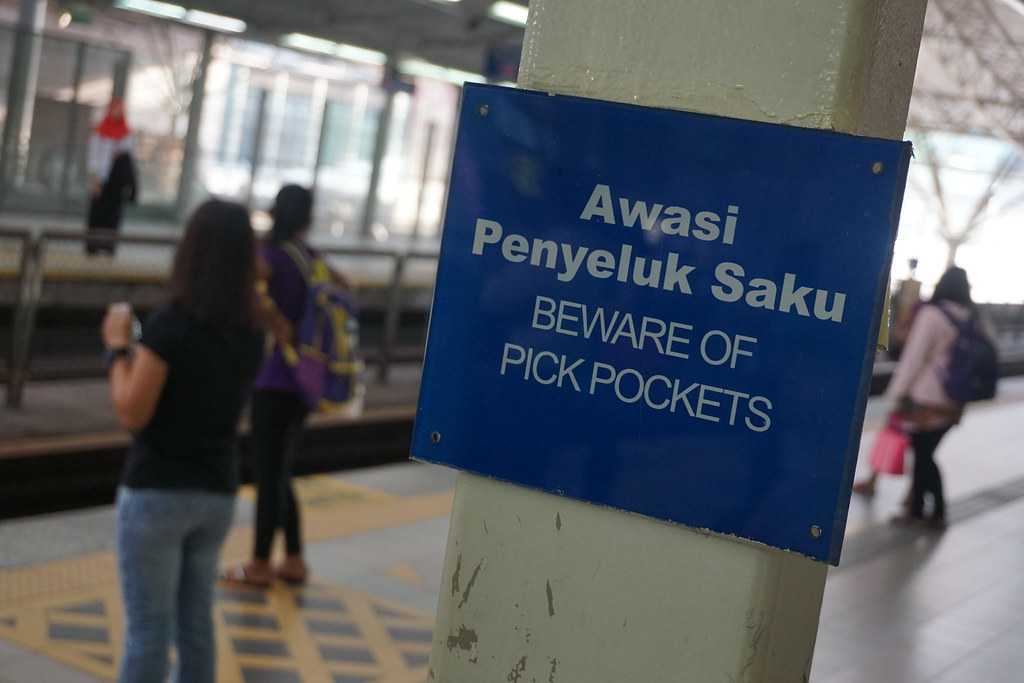
2. Transport Risks: There are a lot of options for transport in Jakarta, including taxis and buses. Beware of the taxis which do not use meters for they might cheat you of a fair price, by overcharging. You may not know the running cost of a km, being a tourist. So always keep the current rates in mind or ask a local regarding them. When it comes to buses, the prices won’t increase, but because of this common factor of safety in Jakarta, there is a high danger of pickpockets in buses, so keep an eye out.
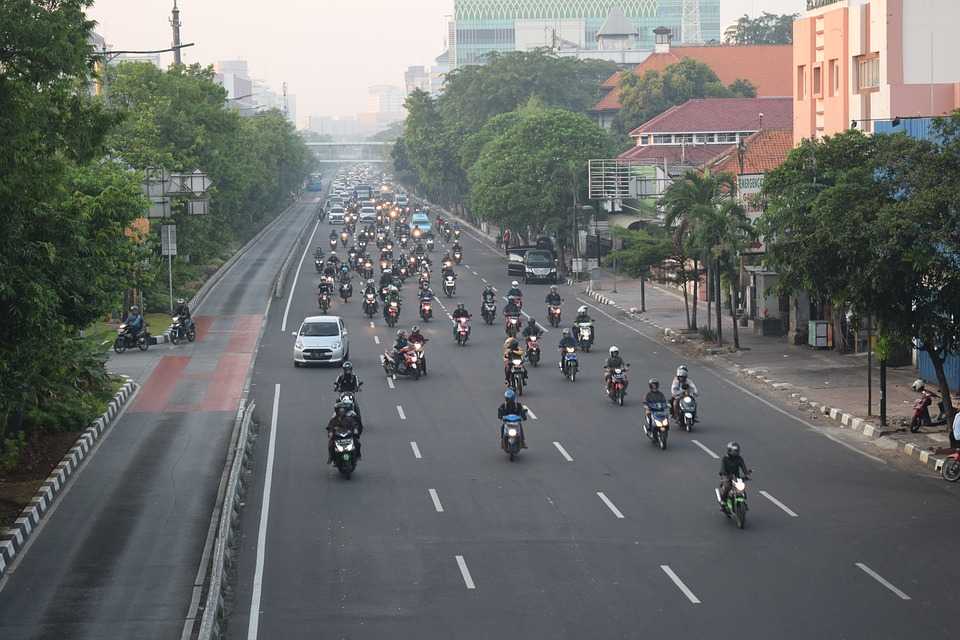
3. Terrorism: This is always a world-wide threat, but in the recent times, Indonesia, in particular, has received a lot of threats from the terrorist organisation regarding attacks, so being a tourist from a foreign nation, it becomes even more critical for you to beware of your surroundings and any potential threats.
4. Natural Disasters: When it comes to natural disasters, Jakarta is no stranger, with nature pouring havoc on the city many a time. Threats include landslides during the monsoon season, water-borne diseases, earthquakes, which have caused mass destruction even in the past, tsunamis, which have still not faded from many memories. Volcanic eruptions are quite frequent and have disturbed life in Jakarta a lot. All these are significant threats to Jakarta, so when you do travel, keep in mind these things as well as the season in which you visit, to minimise the chances of disaster
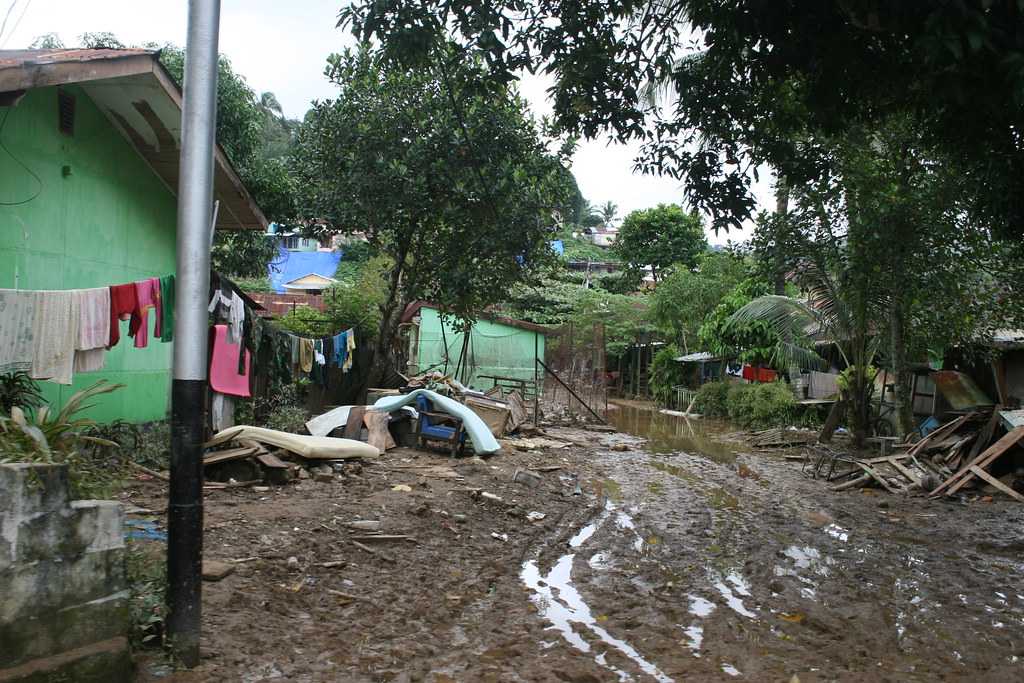
5. Mugging: Though there are fewer chances that you would get mugged at gunpoint here, you shouldn’t take our word for that. For your safety in Jakarta, always be prepared for any physical attempt at the theft of your belongings, since foreigners are still an easy target. And don’t forget to avoid dark alleys during night time.
6. Scams: This is the biggest threat any tourist faces when they visit a new country. They do not know how things work, and the locals tend to take advantage of that fact. Various scams inclusive but not limited to sorts of credit card skimming, drinks spiking, credential theft happen a lot in Jakarta. So do not trust anyone too quickly, for your benefit.
7. Crossing roads: Streets are packed with vehicles and motorcycles, in particular, can pose hazards to pedestrians. Always cross the streets on the pedestrian lanes. However, there are also areas where such markings are conspicuously absent so when you need to cross the street, do it with caution, pass with predictable pace — do not step backwards, and get the driver’s attention by raising your palm in his direction as you cross the street.
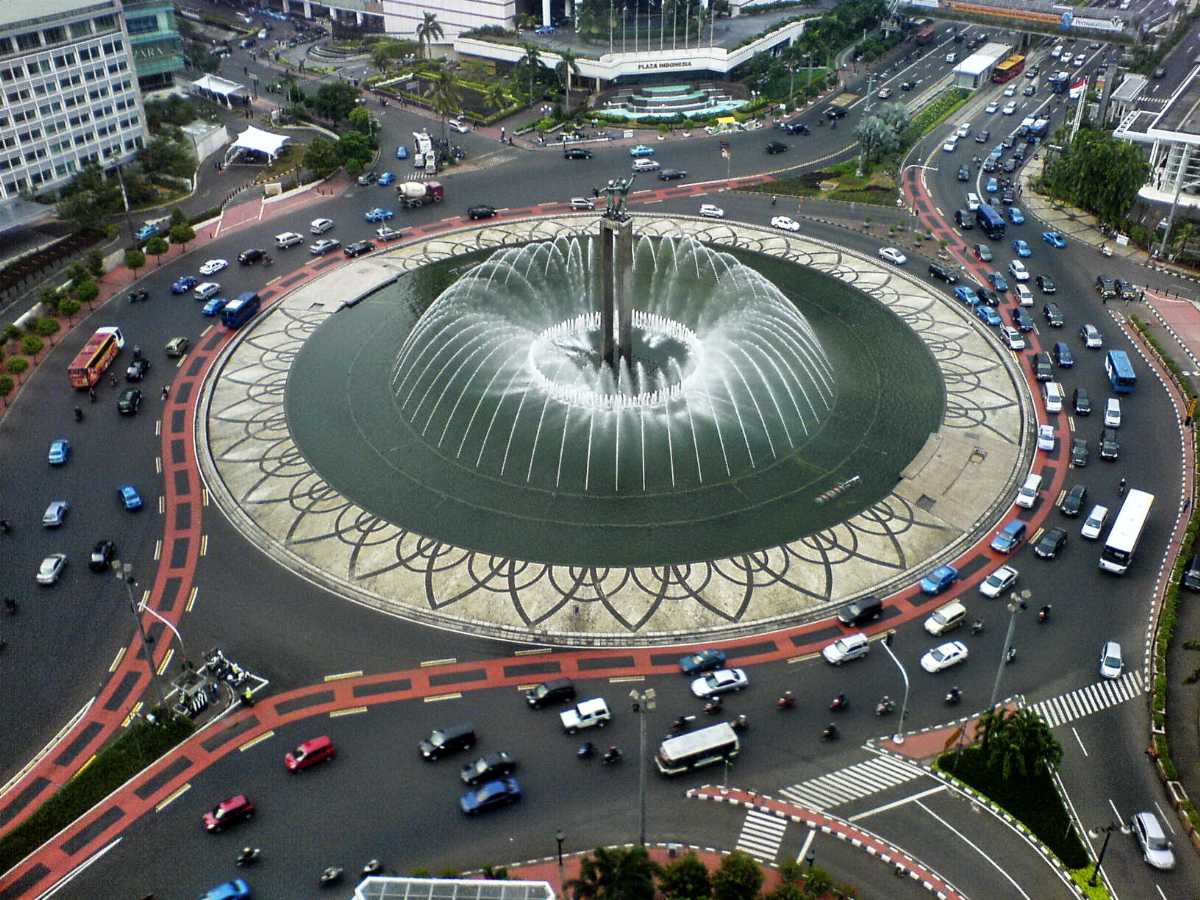
8. Food: Tap water is not safe for drinking in Jakarta, so it is advisable to have bottled water handy, for your safety, especially when dealing with the city’s hot and humid conditions. It is also advised to stay away from street food initially, particularly if you are not used to them or if they’re located in less clean places and exposed to dust, insects and other elements that spoil food quality. Mind you that Indonesian street food is delicious , so this is not necessarily forbidding you from trying them; for the food safety in Jakarta, pay close attention to the hygiene of such places before eating there.
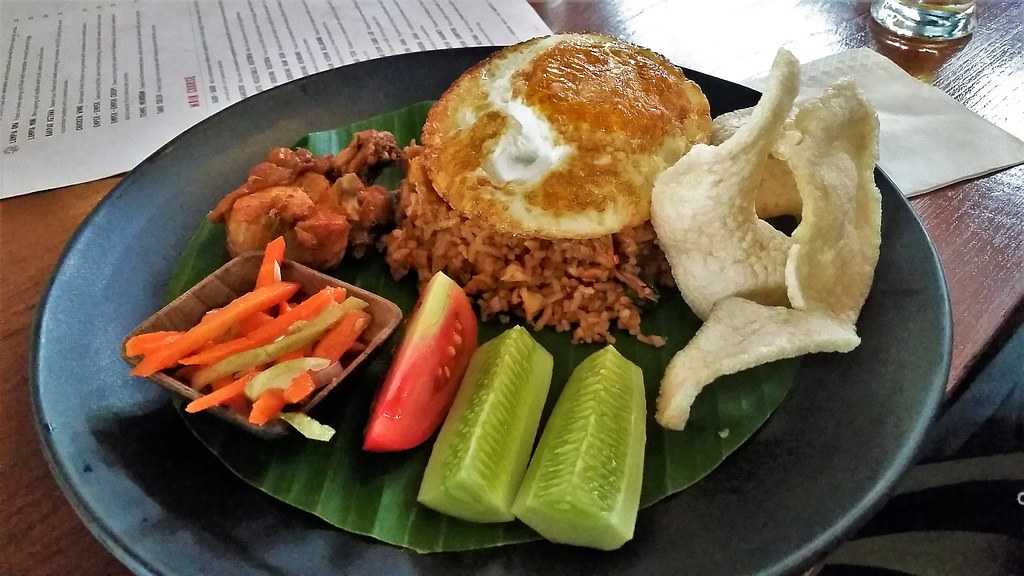
9. Local currency: Indonesia uses rupiah as a standard trading currency, so tourists often ask whether it’s better to take money from ATM counters or exchange them at money changing companies. Generally, withdrawing cash from the ATM at the airport is the best option, followed by exchanging your foreign currency to Indonesian rupiah at authorised money changing agents located at the arrival area. It is highly advised to not deal with unauthorised agents as they might offer favourable rates but include fake bills and make you vulnerable to pickpockets or robbers who can see you counting your money.

10. Your identification: It is not necessary to carry around your passport everywhere you go, but for the sake of security, it is recommended to carry around a copy of your front passport page to prove your identity to local authorities. As a backup, take pictures of your passport.
11. Religious Tolerance: Opposite to pre-conceived notions, the city of Jakarta, just like the rest of Indonesia, is quite tolerant of every religion, and there will be no discrimination observed on those grounds.
12. Women's Safety in Jakarta: The country of Indonesia is quite safe for women if you stay in the right places. Though women still struggle for equal rights in the country, being a popular tourist destination, Jakarta is relatively lenient when it comes to equality. Late nights in the city are safe, only if you stay out of places of danger and do not commit any crimes. So stay out of trouble, and life will be easy.
Places to be Cautious in Jakarta
1. Ciliwung: This is Jakarta’s biggest slum and hence, has a lot of social instability. This fact results in a high crime risk than the rest of the city. Visiting this place has to be avoided both during the day and night.
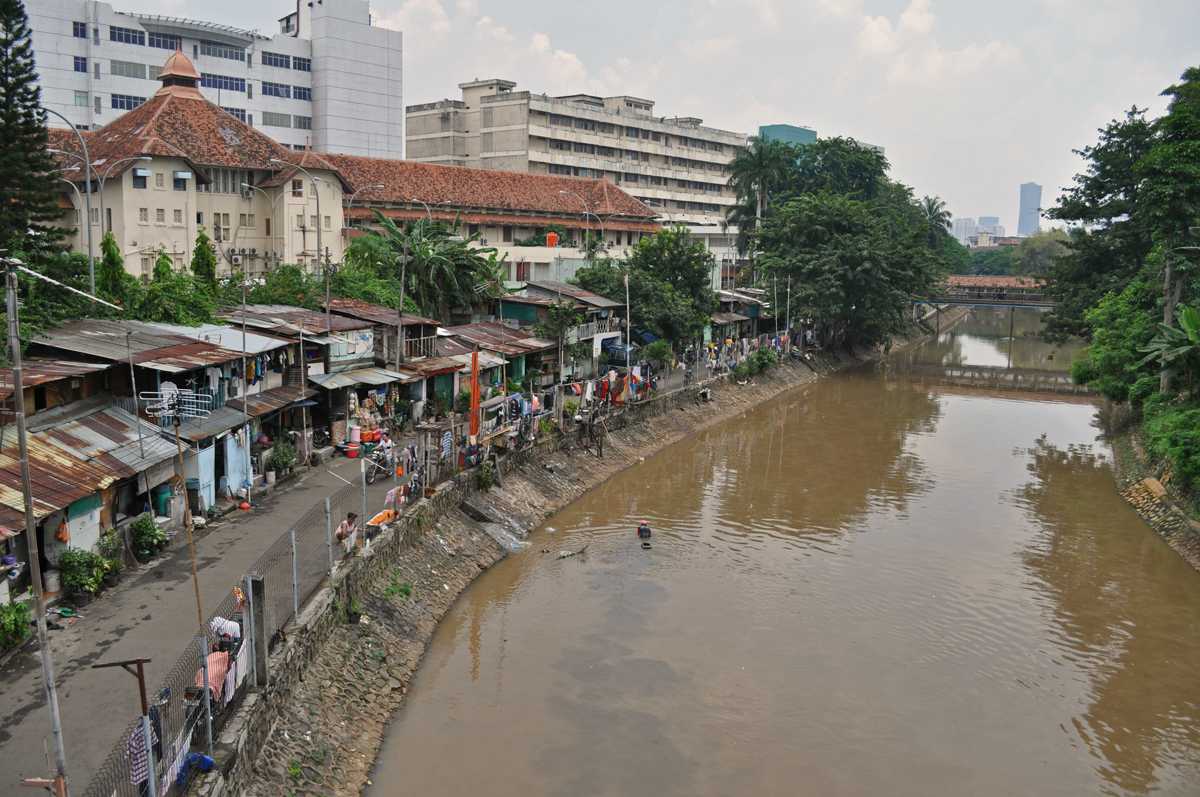
2. The Ancol Port Area: This place has the highest crime rates in the entire city and is also a base for many of the frauds and scandals that run rampant. Significant crimes include prostitution, which is illegal in Indonesia. Other unlawful activities also occur, which make it a dangerous place to be. So try and refrain from visiting. 3. Old Town : This part of the city has a lot of exciting places to visit, including Museum of Fine Art, Puppet Museum, and The Jakarta History Museum and is hence a popular tourist attraction. The area is relatively safe; however, there are many instances of pickpocketing and scams. So for your safety in Jakarta, keep your belongings nice and hidden when visiting Old Town for a better experience.
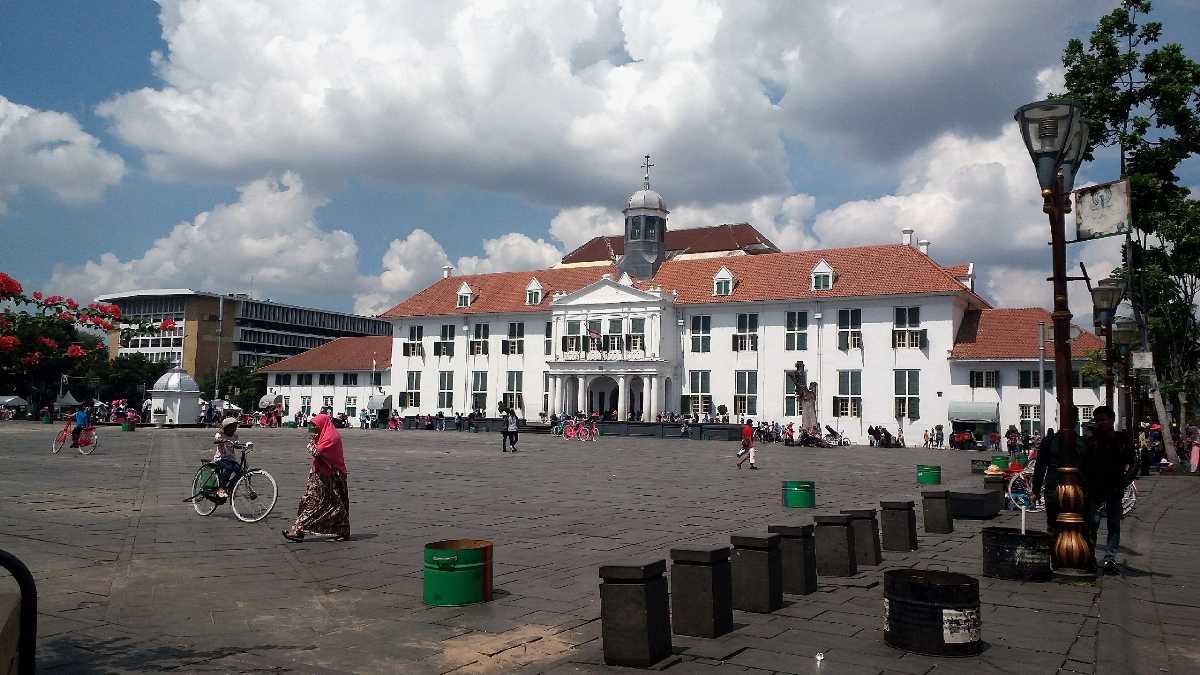
4. Block M, South Jakarta: Several nightclubs and bars are present here, and a lot of times rackets of prostitution, drugs, trafficking and other criminal activities take place. Vigilance is very high in this area, so if you do want to go, do take someone with you and keep your belongings close and watch out for thieves.
If you look at the safety in Jakarta from an overall perspective, it is quite a safe place to be at, only if you keep a few things in mind, taking care of yourself and being aware of your surroundings and your belongings. If you follow the points mentioned above in mind while on your next trip to Jakarta, we can assure your vacation won’t go south and you will have the time of your life!
This post was published by Shivang Uniyal
Share this post on social media Facebook Twitter
Indonesia Travel Packages
Compare quotes from upto 3 travel agents for free
Bali Best Tour Packages with Kuta & Seminyak - Bali Swing
Bali honeymoon package for 7 days - gili trawangan.
Bali Indonesia Tour Package with Scuba Diving
Couples Paradise Bali Gili Honeymoon Package
Singapore bali tour package - 6 nights, bali honeymoon package with stay at private pool villa suite & aromatherapy spa, related articles.

Travel Tips
62 Common Indonesian Phrases Every Traveller Should Know
Indonesia Travel Tips For a Smoother Holiday in the Archipelago!
Visa Policy For Indonesia: Everything You Need to Know About Applying
Safety in Bali - Safety Tips While Travelling In Bali
Safety in Indonesia - 10 Tips For a Secure and Memorable Vacation
Travel Advice to Indonesia - 19 Tips to Create Your Experience of a Lifetime
Safety in Indonesia: Tips for a Safe and Enjoyable Trip
The Daunting Problem Associated With Smoking in Indonesia

7 Adventure Activities in Bali to Get Your Adrenaline Pumping

Shopping in Jakarta For The Best Bargains And Souvenirs

Art & Culture
Languages of Indonesia - The Complete Guide
The 4 Major Styles of Architecture in Indonesia

Fairs & Festivals
18 Festivals of Indonesia to Witness the Colour and Tradition of the Nation
Bali Spirit Festival - 7 Reasons You MUST Visit This Unique Gathering | 2024 Dates
Dances of Indonesia- Get Enthralled by the Mesmerising Indonesian Dances
Culture of Indonesia – Explore the Vibrant Traditions, Cuisine and More!

List of 12 Airports in Indonesia

Currency of Indonesia - Indonesian Rupiah Exchange Rates & More
Airports in Medan - All About The Kualanamu International Airport

Experiences
5 Golf Courses in Bali for the Perfect Golfing Experience

Nightlife in Batam - 12 Places to Go After the Sun Sets in Batam

Food & Drink
Coffee in Indonesia - Best Coffee and Cafes in Indonesia to Try
Nightlife in Bali - 29 Places for a Perfect Bali Night
Music of Indonesia - 6 Beautiful Forms of Traditional Music in Indonesia
7 Best Golf Courses in Batam For an Island Golfing Adventure
Religion in Indonesia - All About Indonesia's 5 Religions and It's Views on Atheism
7 Amazing Malls in Surabaya That Will Make Every Shopaholic Happy
9 Shopping Malls in Batam for Good Quality at Affordable Prices

Historical & Heritage
History of Indonesia - A Concise Guide to the Regional Facts and Significance!
25 Best Dishes of Street Food in Indonesia You Cant Pass On
Comments on this post
Browse package collections, indonesia package collections.
Indonesia Honeymoon Packages
Top Listed Packages
Wonderful Adventure Bali Package Deal - 6 Nights 7 Days
Budget Bali Indonesia Tour Package from India
Stunning All Inclusive Bali Package - 5 Nights
Top Places in Indonesia

Get the best offers on Travel Packages
Compare package quotes from top travel agents
Compare upto 3 quotes for free
- India (+91)
*Final prices will be shared by our partner agents based on your requirements.
Log in to your account
Welcome to holidify.
Forget Password?
Share this page

Search Smartraveller

Latest update
Exercise a high degree of caution in Indonesia overall due to security risks.
Higher levels apply in some areas.

Indonesia (PDF 699.19 KB)
Asia (PDF 2.21 MB)
Local emergency contacts
Fire services, ambulance and rescue services, medical emergencies.
Call 110 or 112.
Tourist Police, Bali
Call (+0361) 759 687.
Tourist Police, Jakarta
Call (+201) 526 4073.
Advice levels
Exercise a high degree of caution in Indonesia overall.
Reconsider your need to travel to the provinces of Papua (Papua), Papua Highlands (Papua Pegunungan), Central Papua (Papua Tengah) and South Papua (Papua Selatan).
Reconsider your need to travel to the provinces of Papua, Papua Pegunungan, Papua Tengah and Papua Selatan due to the risk of serious security incidents or demonstrations that may turn violent.
- There's an ongoing risk of terrorist attack in Indonesia. Be alert to possible threats. Take official warnings seriously and follow the advice of local authorities. Popular tourist areas may be the target of terrorist attacks.
- Public protests and events that draw large groups of people occur regularly and can turn violent with little notice. Expect traffic delays and restricted access to locations if there are protests. Avoid protests and demonstrations and monitor local media for the latest updates.
- Many of Indonesia's volcanoes are active and can erupt without warning. Adhere to exclusion zones around volcanoes, which can change at short notice, and follow the advice of local authorities. Domestic and international flights can be disrupted. Monitor Indonesia's Volcano Observatory Notice for the latest volcanic activity (Bahasa Indonesia and English), Global Disaster Alert and Coordination System and the Volcanic Ash Advisory Centre for updates.
- There's been tension, including demonstrations and violence, in certain towns in the provinces of Papua, Papua Pegunungan, Papua Tengah and Papua Selatan in recent years. Armed groups have stated that they're targeting foreigners, including Australians. Our ability to provide consular support in these provinces is limited. Armed groups have shot at aircraft, including commercial planes, in remote airports in Papua Pegunungan and Papua Tengah provinces.
- Petty and violent crime occurs in Indonesia. Opportunistic crime, such as pickpocketing occurs. Drinks may be spiked or mixed with toxic substances. Crimes involving taxis and taxi drivers occur. Solo women are at higher risk. Be alert in taxis, public transport, crowds, bars and nightclubs.
- Legal disputes over real estate are common, including in Bali. Before entering into an agreement or providing financial details, do your research and get legal advice.
- Natural disasters such as severe weather, floods, landslides, earthquakes, volcanic eruptions and tsunamis occur regularly. Weather conditions can change quickly during the wet season (October – April). Regularly check weather reports, monitor media and speak to your travel provider before continuing with planned activities. Follow the advice of local authorities.
- When undertaking adventure activities, ensure that functioning safety equipment is available, that you have travel insurance and that your policy covers you for these activities.
Full travel advice: Safety
- The standard of medical facilities in Indonesia is generally lower than in Australia. Many regional hospitals only provide basic facilities.
- Some medications, including prescription medications, drugs for attention deficit hyperactivity disorder (ADHD), all cannabis-based products including medicinal cannabis, cannabis-based oils and creams, hemp-based products, CBD, THC, hash and edibles, are illegal in Indonesia. Harsh penalties, such as arrest and jail time, can apply even if you have a prescription. Make sure your medication is legal in Indonesia .
- Purchasing prescription medication online or over the counter in Indonesia without an Indonesian prescription is illegal. Ensure you provide a valid prescription from an Indonesian doctor before purchasing prescription medication and confirm that it's accepted by the seller before your purchase.
Full travel advice: Health
- Indonesia has revised its criminal code, which includes penalties for cohabitation and sex outside of marriage. These revisions will not come into force until January 2026.
- Penalties for drug offences include heavy fines, long prison sentences and the death penalty. Police target tourist destinations.
- Some medications are illegal in Indonesia. Harsh penalties can apply even if you have a prescription. It is also illegal to purchase prescription medications online or over the counter without an Indonesian prescription. Ensure you have a valid Indonesian prescription. See ' Health '.
The death penalty exists for some crimes in Indonesia.
- Standards of dress and behaviour are conservative in many parts of Indonesia. Learn about local customs. Take care not to offend.
- Aceh province upholds aspects of sharia law. Sharia law applies to everyone, including travellers. Inform yourself about the laws, and be careful not to offend or break local laws. If in doubt, seek local advice.
Full travel advice: Local laws
- The Idul Fitri holiday period will take place from 10 April. Many people will travel across Indonesia until 22 April, with many expected to move in and out of the greater Jakarta area. This may impact traffic and public transport, including airports, seaports, highways, toll roads, train and bus stations across Indonesia. Airports are expected to be busy. Plan your travel carefully and prepare for significant delays. Contact your travel provider for up-to-date details.
- The Bali Provincial Government has introduced a new tourist levy of IDR 150,000 per person to foreign tourists entering Bali. The tourist levy is separate from the e-Visa on Arrival or the Visa on Arrival. Cashless payments can be made online prior to travel or on arrival at designated payment counters at Bali's airport and seaport. See the Bali Provincial Government's official website and FAQs for further information.
- If you're travelling to Indonesia for tourism, official government duties or business meetings, you can apply for an e-Visa on Arrival (e-VOA) online at least 48 hours before your travel to Indonesia. This also applies if you're transiting through Indonesia at international airports, seaports and land crossings. You can get a Visa on Arrival (VOA) at some international airports, seaports or land crossings.
- To apply for the e-VOA or VOA, you must have an ordinary (non-emergency) passport with at least 6 months of validity from the date you plan to enter (we also recommend having at least 6 months of passport validity from the date you plan to leave Indonesia, to avoid any issues for your departure or onward travel) and a return or onward flight booking to another country.
- You may need to apply for a visa in advance to enter Indonesia for purposes not covered by the e-VOA or VOA. Check the latest entry requirements with your travel provider or an Embassy or Consulate of Indonesia before travel. Entry, exit and transit conditions can change at short notice. Monitor media for the latest updates.
- You'll be required to complete an e-customs declaration for arrival. You can complete this within 3 days of departure to Indonesia.
- Travel requirements may change at short notice, including travel to Bali and Jakarta by air, land or sea. Contact your travel provider and monitor media for up-to-date details.
Full travel advice: Travel
Local contacts
- The Consular Services Charter tells you what the Australian Government can and can't do to help when you're overseas.
- For consular help, contact the Australian Embassy, Jakarta , the Australian Consulate-General, Bali , the Australian Consulate-General, Makassar or the Australian Consulate-General, Surabaya .
- To stay up to date with local information, follow the Embassy's social media accounts.
Full travel advice: Local contacts
Full advice
The terrorist threat in Indonesia is ongoing. Attacks could happen anywhere and anytime. This includes places that foreigners visit.
Be alert to possible threats. Take official warnings seriously and follow the advice of local authorities. Remain respectful of religious and local customs.
Indonesian authorities continue to investigate and disrupt terrorist groups in Indonesia, including Bali.
Terrorist attacks are motivated by extreme beliefs. Both local grievances as well as events in other parts of the world could motivate extremists in Indonesia towards violence.
Recent terrorist attacks
In December 2022, an explosion occurred at a police station in Bandung, Jawa Barat, killing 2 and injuring 11.
In March 2021, 2 suicide bombers attacked a church in Makassar, injuring dozens.
In the past, police have said that terrorist suspects remain at large and may seek Western targets.
Indonesian security agencies continue to conduct operations against terrorist groups.
Terrorists in Indonesia may carry out small-scale violent attacks with little or no warning.
Be alert in places of worship, especially during periods of religious significance.
Terrorists have targeted places of worship in:
As well as places of worship, other possible targets by terrorists include:
- Indonesian government facilities, premises and symbols associated with the Indonesian Government
- police stations and checkpoints
- bars, nightclubs, cafes and restaurants
- cinemas and theatres
- shopping centres, public transport and transport hubs
- airports and airlines
- clubs, including sporting clubs
- tourist areas and attractions, tour buses and tour groups
- outdoor recreation events
Supporters have committed additional acts of violence in response to high-profile extremists being detained or killed.
To protect yourself during a terrorist attack:
- leave the area as soon as it's safe
- follow the advice of local authorities
- don't gather in a group after an attack
- don't gather in a group if you're evacuated from a building
Security remains at a high level at:
- the Australian Embassy in Jakarta
- the Consulates-General in Bali, Makassar and Surabaya
More information:
Civil unrest and political tension
Most events are announced before they happen; however, protests may occur with little or no notice.
Protests and events are often held near major government buildings and embassies in Jakarta, including the Australian Embassy.
Protests may also occur at any of Australia's Consulates-General in Surabaya, Bali and Makassar, at government buildings, or the offices of international organisations in Indonesia.
You can expect traffic delays and restricted access to locations if there are protests.
Phone or email ahead for an appointment before going to the Embassy or the Consulates-General (see Local contacts ).
Demonstrations and acts of violence can happen when courts try and sentence extremists.
Conflict between different communities can sometimes occur, including in the provinces of Papua, Papua Pegunungan, Papua Tengah and Papua Selatan. Our ability to provide consular support in these provinces is limited.
Local violence can also be directed at minority groups in other parts of Indonesia, including in Java.
If you're found to endanger security or public order, you may be prosecuted under Indonesia's Immigration laws, which may result in imprisonment or deportation.
To protect yourself from possible violence:
- avoid protests and demonstrations
- monitor local media for the latest security updates
- plan your activities to avoid potential unrest on significant dates
- be prepared to change your travel plans
- Demonstrations and civil unrest
Armed conflict
The provinces of Papua, Papua Pegunungan, Papua Tengah and Papua Selatan experience regular violent clashes involving armed groups, civilians, Indonesian police, and the military. Armed groups have stated that they are targeting foreigners, including Australians. Our ability to provide consular support in these provinces is limited.
Many people have been killed and injured in clashes. This includes members of security forces, armed groups and civilians. Violent attacks have occurred in several areas of these provinces, including in and around Jayapura. There's a risk of more attacks.
On 23 February 2023, a riot broke out in Wamena, Papua Pegunungan, when a crowd attacked Indonesian security personnel following the arrest of two people accused of child kidnapping. 12 civilians and rioters were killed.
Violent attacks have occurred around the Freeport Mine in Papua Tengah.
Armed groups have:
- taken a New Zealand pilot hostage in Paro, Papua Pegunungan
- shot at aircraft, including commercial planes, at Beoga airport in Pupua Tengah province and Nop Goliat Dekai airport in Papua Pegunungan province.
- killed people in attacks, including one Australian
- attacked vehicles using the road between Grasberg and Timika
- killed people in violent attacks in Puncak Jaya District, Papua Tengah
- more attacks are possible and could target infrastructure and national institutions.
A range of crimes, including violent crime, occur in Indonesia. Crimes can happen in popular tourist locations in Bali.
To protect yourself from crime:
- be aware of your surroundings
- be alert in crowds
- understand the potential crime risks
Theft, robbery and bag and phone snatching have occurred. These crimes can sometimes involve violence. Opportunistic crime such as pickpocketing occurs.
Be careful of thieves:
- on motorcycles targeting pedestrians
- in upmarket shopping malls
- in crowded public transport
- at traffic lights targeting people in stopped cars
- at bars and nightclubs
- when entering accommodation, including villas in Bali
Keep bags and valuables out of sight in vehicles.
If you're travelling on foot, walk:
- on footpaths
- away from the curb
- with your bag held away from traffic
Sexual assault
If you're a victim of sexual assault :
- get immediate medical assistance. If you have any doubts about seeking medical assistance after a sexual assault, contact your nearest Australian Embassy or Consulate in Indonesia (see Local contacts ) as quickly as possible.
- make a full statement to local police, in person, so they can conduct a criminal investigation. You may wish to seek consular help before you visit the police station. Contact your nearest Australian Embassy or Consulate (see Local contacts ).
Local police can only investigate a crime after you've left Indonesia if you've reported it.
Your sworn statement, or statements by witnesses, can be used as evidence in criminal court proceedings.
You don't always need to be in Indonesia for trial. Neither do witnesses who live outside of Indonesia.
Counselling support
Should you wish to speak to a counsellor, you can call the 24-hour Consular Emergency Centre on +61 2 6261 3305 or contact your nearest Australian Embassy or Consulate (see Local contacts ). They can connect you to counselling hotlines and services.
- Reducing the risk of sexual assault
Bars and nightclubs
Be alert in bars and nightclubs. Drink-spiking and snatching of valuables may occur if you're not alert.
Drinks may be contaminated with drugs or toxic substances. See Health .
Don't leave your food or drinks unattended.
Never accept drinks, food, gum, cigarettes, vapes or e-cigarettes from people you've just met.
- Partying safely
Credit card and ATM fraud
Credit card, online banking and ATM fraud occurs in Indonesia.
Check your bank statements.
Make sure your bank doesn't block your cards. Tell your bank you'll be visiting Indonesia.
Never let your card out of your sight. This includes when you pay in restaurants.
Shield your PIN from sight.
Some vendors install hidden cameras and use card skimmers.
Don’t click on unknown links in WhatsApp or mobile phone text messages, particularly if your phone is linked to mobile banking.
Use ATMs at controlled and secure places, such as:
- shopping centres
Scams and confidence tricks
Beware of scams and confidence tricks.
Only exchange money at authorised money changers. Authorised money changers can also be found on the Bali Foreign Exchange website . Unauthorised money changers have been known to scam foreign tourists in Bali and elsewhere.
All types of gambling are illegal in Indonesia.
Australians have lost large sums of money in card game scams run by organised gambling gangs, particularly in Bali. See Local laws
Some tourists have been robbed or planted with drugs after taking new acquaintances back to their hotel rooms. In some cases, their drinks were spiked.
Legal disputes over the purchase of real estate are common, including in Bali, involving:
- holiday clubs and resorts
- timeshare schemes
Before entering into an agreement or providing financial details:
- thoroughly research the proposal
- get legal advice and know your rights, especially before you sign any documents
Using taxis
Only use licensed official metered taxis. Crimes involving unregistered taxis include:
- taxis departing before the passenger can take their baggage from the vehicle
- taxi drivers robbing or temporarily holding passengers, including in urban areas
- taxi drivers forcing passengers to withdraw money at ATMs before releasing them
Lone female travellers are at higher risk of crime.
If you're in an incident involving a taxi, leave the taxi and the immediate area if it's safe to do so.
To protect yourself from overcharging and scams:
- only travel in licensed taxis with signage, a "taxi" roof sign and meters working
- ensure the driver's identification card is visible
- book via your phone, on an official taxi company mobile app, from inside an airport, or at stands at major hotels
See Travel .
Cyber security
You may be at risk of cyber-based threats during overseas travel to any country. Digital identity theft is a growing concern. Your devices and personal data can be compromised, especially if you're connecting to Wi-Fi, using or connecting to shared or public computers, or to Bluetooth.
Social media can also be risky in destinations where there are social or political tensions, or laws that may seem unreasonable by Australian standards. Travellers have been arrested for things they have said on social media. Don't comment on local or political events on your social media.
- Cyber security when travelling overseas
Kidnapping occurs across the world with political, ideological and criminal motives. Foreigners, including Australians, have been kidnapped overseas while travelling. Kidnaps can happen anywhere, anytime, including destinations that are typically at lower risk.
On 7 February 2023, a New Zealand pilot was taken hostage by an armed group in Paro, Papua Pegunungan.
The Australian Government's longstanding policy is that it doesn't make payments or concessions to kidnappers.
Adventure activities
Many businesses don't follow safety and maintenance standards. This includes transport and tour operators, water sports providers, hotels, restaurants and shops.
It may affect adventure activities, such as:
- bungee jumping
- scuba diving and snorkelling
- chairlift or gondola rides
In the past, Australians have been seriously injured or died while participating in adventure activities. If you require intensive care medical treatment, emergency surgery or medical evacuation. The Australian Government won't pay for these costs.
If you plan to do an adventure activity :
- check if your travel insurance policy covers it
- ask about safety, search and rescue procedures
- ask about and insist on minimum safety requirements
- always use available safety gear, such as life jackets or seatbelts
- check with your travel provider on vessel capacity limits before embarking on sea, land or air travel
- check weather and ocean conditions, and whether the vessel has had any mechanical issues, on the day and before continuing with water activities or sea travel
- check where the nearest medical facilities are
If proper safety equipment isn't available or you're unsure of the provider's safety or maintenance procedures, use another provider.
Trekking and climbing
Some mountain treks suit only experienced climbers. Travel with a guide and check the level of difficulty beforehand.
Many trekking options may be on or around an active volcano. Many of Indonesia's volcanoes are active and can erupt without warning. Volcanic and seismic activity may continue for some time. Adhere to exclusion zones around volcanoes, which can change at short notice, and follow the advice of local authorities. If you're planning to travel to an area near an active volcano, check with local authorities before climbing and check:
- Bureau of Meteorology Volcanic Ash Advisory Centre
- MAGMA Indonesia (Bahasa Indonesia) for daily updates on status and alert levels
- National Disaster Management Authority (BNPB) (Bahasa Indonesia)
- Global Disaster Alert and Coordination System
Swimming safety
People have drowned in coastal areas, including in Bali, due to rough seas, strong currents, or from swimming, snorkelling or scuba diving in areas where there is frequent passage of boats, resulting in collisions.
Local beach rescue services may not be of the same standard as in Australia.
Saltwater crocodiles are in rivers throughout Indonesia. Avoid swimming around river estuaries and seek local advice in other locations.
If you plan to spend time in or on the water:
- regularly check weather reports as sea conditions can change rapidly
- take warnings seriously
- check media and local sources for information about potential dangers
- speak to your travel provider about safety equipment and weather conditions before continuing with planned activities
- take a friend or family member with you when you undertake swimming or water activities
- be careful when swimming, snorkelling or scuba diving near motor-powered boats or where there is frequent passage of boats
- ensure you have travel insurance and that your policy covers you for planned activities
Ensure you have travel insurance and that your policy covers you for planned activities.
Climate and natural disasters
Indonesia experiences natural disasters and severe weather , including:
- landslides and mudslides
- volcanic eruptions
- earthquakes
- storms resulting in turbulent sea conditions
- tsunamis and high wave events
If there's a natural disaster or severe weather:
- always carry your passport in a waterproof bag
- keep in contact with family and friends
- check the media and local sources for information
- don't undertake sea, land or air travel if it's not safe to do so
- Indonesian Meteorology, Climatology and Geophysics Agency (BMKG) (English and Bahasa Indonesia)
- BMKG Multi-Hazard Early Warning System app (English and Bahasa Indonesia)
Floods and mudslides
Floods , landslides and mudslides occur regularly during the wet season from October to April, with some severe events resulting in injury, displacement, death or damaged infrastructure.
Heavy rains can cause significant flooding in urban areas, including the greater Jakarta region, causing disruption to transportation. Monitor the local media for updates.
Walking and driving in flooded areas can be dangerous. Flood waters may hide uncovered drainage ditches.
Volcanic activity may escalate with little or no notice, leading to flight disruptions and airport closures, including in surrounding provinces. Contact your airline for the latest flight information.
There are 147 volcanoes in Indonesia. 76 of them are active volcanoes and could erupt at any time.
Volcanic alert levels and exclusion zones may rise quickly. You may be ordered to evacuate at short notice. Volcanic activity can disrupt domestic and international flights. There are 4 volcano alert levels in Indonesia; 1 - normal, 2 - advisory, 3 - watch, 4 - warning.
Before you travel to areas that are prone to volcanic activity, monitor media and ensure you read the Indonesian Government's latest advice on current volcanic activity, including:
- Volcanic Activity Report by Indonesia's Multiplatform Application for Geohazard Mitigation and Assessment (MAGMA) (Bahasa Indonesia)
- Volcano Activity and Observatory Notices (English and Bahasa Indonesia)
- MAGMA Indonesia Map of Latest Volcano Levels and Climate Information (Bahasa Indonesia)
- Bureau of Meteorology's Volcanic Ash Advisory Centre
If there's volcanic activity:
- avoid the area
- take official warnings seriously and adhere to exclusion zones
- follow the instructions and advice of local authorities
- follow evacuation orders
- read our advice on Volcanic eruptions while travelling
Volcanic ash can cause breathing difficulties. The risk is higher for people with chronic respiratory illnesses, including:
Recent and frequent volcanic activity has included:
- Mount Ile Lewetolok in East Nusa Tenggara (Nusa Tenggara Timur)
- Mount Lewotobi Laki Laki in East Flores Regency, Nusa Tenggara Timur
- Mount Marapi in West Sumatra
- Mount Anak Krakatau, to the south of Sumatra
- Mount Merapi, near Yogyakarta
- Mt Dukono in North Sulawesi
- Mount Semeru, near Malang, East Java
- Mount Agung in Bali
- Mount Sinabung in North Sumatra
Some trekking routes are on or near active volcanoes, including Mount Agung and Mount Batur in Bali, Mount Marapi in West Sumatra, Mount Merapi near Yogyakarta, Mount Rinjani in Lombok, Mount Bromo and Mount Ijen in East Java. See 'Trekking and climbing'.
If you're planning to travel to an area near an active volcano, make sure you have comprehensive travel insurance and check if any restrictions apply.
If a volcanic eruption occurs:
- make a backup plan in case you're affected
- contact your airline or travel insurer to confirm flight schedules and get help
- keep in touch with family and friends
- Learn more about volcanic eruptions (Geoscience Australia)
- See practical advice and information about volcanic eruptions (US CDC)
- See worldwide volcanic activity reports in real-time (GDACS)
Earthquakes
Indonesia is in an active earthquake region. It has a high level of earthquake activity, that sometimes triggers tsunamis.
There are approximately 4,000 earthquakes across Indonesia every year. Around 70 to 100 of these are over 5.5 magnitude.
Earthquakes can cause death, injury and significant damage to infrastructure.
Strong earthquakes can occur anywhere in Indonesia. They are less common in Kalimantan and south-west Sulawesi.
To stay safe during an earthquake:
- know the emergency plans at your accommodation
- take precautions to avoid exposure to debris and hazardous materials, including asbestos
- MAGMA Indonesia (Bahasa Indonesia)
- Indonesia's Meteorology, Climatology and Geophysics Agency (Bahasa Indonesia) or BMKG Multi-Hazard Early Warning System app (English and Indonesia)
- Indonesia's Centre for Volcanology and Geological Disaster Mitigation (Bahasa Indonesia)
- US Federal Emergency Management Agency advice on what to do before, during and after an earthquake (English)
Forest fires and smoke haze
During the dry season in April to November, widespread forest fires can cause smoke haze resulting in poor air quality across parts of Indonesia, particularly the Riau Islands, central Sumatra and Kalimantan.
Smoke haze could affect your health and travel plans.
Keep up to date with local information and seek medical advice on appropriate precautions.
- ASEAN Regional Haze Situation
- Smartraveller advice on Bushfires
Tsunamis and high wave events
The Indian and Pacific Oceans experience more frequent, large and destructive tsunamis than other parts of the world.
There are many large earthquakes along major tectonic plate boundaries and ocean trenches.
High wave events can happen throughout coastal regions and between islands. They're caused by strong weather conditions and storms.
If you plan to surf, undertake water activities or travel by sea, check local conditions regularly.
If there’s a tsunami or high wave event:
- don't travel by sea if it's not safe to do so
- Indonesia Tsunami Early Warning Centre issues warnings when a potential tsunami with significant impact is expected
- Indonesia's Meteorology, Climatology and Geophysics Agency with the latest list of earthquakes with a magnitude greater than 5.0 on the Richter scale (Bahasa Indonesia) or BMKG Multi-Hazard Early Warning System app (English and Bahasa Indonesia)
- US Federal Emergency Management Agency page on what to do before, during and after an earthquake
Piracy occurs in the coastal areas of Indonesia.
The International Maritime Bureau (IMB) issues weekly piracy reports.
If you decide to travel by boat in these regions:
- check IMB piracy reports
- get local advice
- arrange security measures
- Travelling by boat
- Going on a cruise
- International Maritime Bureau

Travel insurance
Get comprehensive travel insurance before you leave.
Your policy needs to cover all overseas medical costs, including emergency treatment and medical evacuation. The Australian Government won't pay for these costs.
If you can't afford travel insurance, you can't afford to travel. This applies to everyone, no matter how healthy and fit you are.
If you're not insured, you may have to pay many thousands of dollars up-front for medical care.
Before you travel, confirm:
- what activities and care your policy covers
- that your insurance covers you for the whole time you'll be away, including on all forms of transport you plan to take
- whether it covers medical evacuation in the event of hospitalisation or injury
- any exclusions to your policy
Physical and mental health
Consider your physical and mental health before you travel, especially if you have an existing medical condition.
See your doctor or travel clinic to:
- have a basic health check-up
- ask if your travel plans may affect your health
- plan any vaccinations you need
Do this at least 8 weeks before you leave.
If you have immediate concerns for your welfare or the welfare of another Australian, call the 24-hour Consular Emergency Centre on +61 2 6261 3305 or contact your nearest Australian Embassy, High Commission or Consulate to discuss counselling hotlines and services available in your location.
- General health advice
- Healthy holiday tips (Healthdirect Australia)
Not all medication available over the counter or by prescription in Australia is available in other countries. Some may even be considered illegal or a controlled substance, even if prescribed by an Australian doctor.
Some drugs used to treat attention deficit hyperactivity disorder (ADHD) are illegal in Indonesia.
If you plan to bring over-the-counter or prescription medication, check if it's legal in Indonesia by contacting the Indonesian Embassy in Canberra well in advance of your planned travel. Take enough legal medicine for your trip and carry it in its original packaging. Purchasing prescription medication online in Indonesia without an Indonesian prescription is illegal. Ensure you provide a valid prescription from an Indonesian doctor before purchasing prescription medication and confirm that it's accepted by the seller prior to your purchase.
Carry a copy of your prescription and a letter from your doctor stating:
- what the medicine is
- your required dosage
- that it's for medical treatment or use
If you're caught with illegal medicine, you could face detention, fines or harsher penalties. You could face charges even if an Australian doctor prescribed the medication.
Ask the Indonesian Embassy in Canberra for advice before you travel.
Medicinal cannabis and cannabis-based products
Cannabis-based products such as cannabis oil and creams, hemp, CBD, THC, hash and edibles remain illegal in Indonesia, including for medicinal purposes. A medical prescription does not make it legal. If you take such products to Indonesia or purchase or use them in Indonesia, you can be arrested and face imprisonment, fines, deportation or the death penalty.
- Medications
Health Risks
Critical care for Australians who become seriously ill, including in Bali, is significantly below the standard available in Australia. Medical evacuation may not be possible.
The Australian Government cannot guarantee your access to hospitals and other health services in Indonesia.
Medical evacuation to Australia for medical conditions, is possible but is very expensive and may not be covered by travel insurance. Check your policy before you travel.
Ban on sale of liquid/syrup medication
The Indonesian Ministry of Health (MoH) has advised local health workers and pharmacists to stop selling liquid/syrup medication, including commonly used medications containing paracetamol and cough syrups. MoH and the Indonesian Paediatrician Association (IDAI) received reports of a sharp increase in cases of Atypical Progressive Acute Kidney Injury (AKI) in children , especially under the age of 5 years.
Insect-borne illnesses
Insect-borne illnesses are common throughout the year.
To protect yourself from disease:
- research your destination
- ask locals for advice
- make sure your accommodation is mosquito-proof
- use insect repellent
- wear long, loose, light-coloured clothing
Dengue occurs throughout Indonesia, including Bali, Jakarta and other major cities.
Dengue is common during the rainy season.
Australian health authorities have reported an increase in dengue infections in people returning from Bali in recent years.
There are now two dengue vaccines, but they are not currently available in Australia. For further information, contact your doctor.
Zika virus can occur in Indonesia.
Protect yourself from mosquito bites.
The Australian Department of Health and Aged Care advises pregnant women to:
- discuss any travel plans with their doctor
- consider deferring non-essential travel to affected areas
Malaria , including chloroquine-resistant strains, is widespread in rural areas, particularly in the provinces of Papua, Papua Pegunungan, Papua Tengah, Papua Selatan, Papua Barat Daya, Papua Barat, Maluku and Nusa Tenggara Timur. There is no malaria transmission in Jakarta.
- Consider taking medicine to prevent malaria.
Japanese encephalitis and filariasis
Japanese encephalitis and filariasis occur in Indonesia, especially in rural agricultural areas.
Japanese encephalitis has been present in Australian travellers returning from Indonesia, including Bali.
Vaccination is recommended for certain groups of travellers.
- Infectious diseases
Drink poisoning
People have been poisoned by alcoholic drinks contaminated with harmful substances, including methanol and arak (a traditional rice-based spirit). Locals and foreigners, including Australians, have died or become seriously ill from poisoned drinks.
Cases of drink poisoning have been reported in Bali and Lombok.
Contaminated drinks have included:
- local spirits
- spirit-based drinks, such as cocktails
- brand name alcohol
To protect yourself from drink poisoning:
- consider the risks when drinking alcoholic beverages
- be careful drinking cocktails and drinks made with spirits
- drink only at reputable licensed premises
- avoid home-made alcoholic drinks
Labels on bottles aren't always accurate.
Symptoms of methanol poisoning can be similar to drinking too much. However, they are usually stronger.
Symptoms of methanol poisoning include:
- vision problems
Vision problems may include:
- blindness, blurred or snowfield vision
- changes in colour perception
- difficulty looking at bright lights
- dilated pupils
- flashes of light
- tunnel vision
If you suspect that you or someone you're travelling with may have been poisoned, act quickly. Urgent medical attention could save your life or save you from permanent disability.
Report suspected cases of methanol poisoning to the Indonesian police.
Magic mushrooms
Don't consume magic mushrooms. They're illegal.
Australians have become sick or injured after taking magic mushrooms.
Australians have been in trouble with local police after taking magic mushrooms, particularly in Bali.
Magic mushrooms can cause major health problems, including:
- erratic behaviour
- severe hallucinations
Rabies is a risk throughout Indonesia, especially in:
- Nusa Tenggara Timur, including Labuan Bajo
- South Sulawesi
- West Kalimantan
- Nias, off the west coast of Sumatra
To protect yourself from rabies:
- avoid direct contact with dogs
- don't feed or pat animals
- avoid contact with other animals, including bats and monkeys.
Talk to your doctor about getting a pre-exposure rabies vaccination.
If bitten or scratched by an animal:
- immediately use soap and water to wash the wound thoroughly for 15 minutes
- seek urgent medical attention.
Rabies treatment in Indonesia may be limited, including the rabies vaccine and immunoglobulin availability. If you're bitten, you may need to return to Australia or travel to another country for immediate treatment.
You're at risk of contracting rabies if you visit a market where live animals and fresh food are sold because:
- live rabies-positive dogs may be present
- rabies-positive dog meat may be sold as food
Selling dog meat for human consumption is a breach of government disease control regulations.
Avoid contact with monkeys, even in places where you're encouraged to interact with them. This includes:
- popular markets
- tourist destinations
- sanctuaries
Legionnaires' disease
Cases of Legionnaires' disease have been reported in people who have travelled to Bali. Travellers who are unwell with flu-like symptoms within 10 days of returning from Bali are advised to consult their GPs.
- Legionnaires' disease warning for Bali travellers (Western Australian Government Department of Health)
- Legionnaires’ disease (Better Health Channel, Victorian Government Department of Health)
- Legionnaires' disease (World Health Organization)
Cases of poliovirus (type 1) have been reported in the provinces of Papua, Papua Pegunungan, Papua Tengah and Papua Selatan. Poliovirus (type 2) cases have been reported in the provinces of Aceh, East, West and Central Java. There may be unreported cases in other provinces in Indonesia.
Ensure that you're vaccinated against polio.
- Factsheet on poliovirus types (World Health Organization)
- Health emergencies information for Indonesia (World Health Organization)
Periodic outbreaks of measles continue to be reported in Indonesia, including Bali.
You need 2 doses of vaccine 4 weeks apart to be fully vaccinated against measles.
If you have symptoms of measles, seek medical attention.
Measles is highly infectious. Call before attending a healthcare facility.
Nipah Virus and Yellow Fever
There are no cases of Nipah virus or Yellow Fever in Indonesia. You may be temperature checked on arrival at international and domestic airports. If you have fever symptoms, you may be referred to the airport clinic for further tests and asked to seek medical treatment. See your doctor or travel clinic before you travel to plan any vaccinations you need.
HIV/AIDS is a risk for travellers. Take steps to reduce your risk of exposure to the virus.
Other health risks
Waterborne, foodborne, parasitic and other infectious diseases are widespread. These include:
- tuberculosis
Serious outbreaks sometimes occur.
To protect yourself from illness:
- boil drinking water or drink bottled water
- avoid ice cubes
- avoid raw food, such as salads
To minimise the risk of food poisoning, only eat meat from reputable suppliers.
Seek urgent medical attention if you suspect food poisoning or have a fever or diarrhoea.
Seafood toxins
You can become sick from naturally occurring seafood toxins, including:
- ciguatera fish poisoning
- scombroid (histamine fish poisoning)
- toxins in shellfish
Avoid temporary black henna tattoos. The dye often causes serious skin reactions.
Before you get any tattoo, check the hygiene and safety of your tattoo provider.
Medical care
Medical facilities.
The standard of medical facilities in Indonesia is generally lower than Australia. Many regional hospitals only provide basic facilities.
Hospitals expect families to provide support to patients, including all financial support.
Psychiatric and psychological services are limited in Indonesia. Hospital staff may use physical restraints on patients.
When diving in Indonesia, there is a risk that you may experience decompression illness. An illness may occur when a diver ascends to the water surface too quickly and may have severe consequences. Understand the risks before you dive.
Decompression chambers are available in various areas, including the following locations:
- Bali's Sanglah General Hospital
- Siloam Hospital in Labuan Bajo
- Hospitals in Jakarta, Balikpapan, Bintan, Medan, Makassar, Raja Ampat (Waisai), Maluku, Tual and Manado near popular dive sites
Before admitting patients, hospitals usually need:
- guarantee of payment from the patient or their next of kin (family or friend)
- confirmation of medical insurance
- deposit payment
There's no reciprocal healthcare agreement between Australia and Indonesia.
The Australian Government cannot provide guarantee of payment, confirmation of medical insurance or a deposit payment for services.
If you become seriously ill or injured, you may need to be evacuated to a place with better care. Medical evacuation can be very expensive. Check your insurance policy before you travel. The Australian Government won't pay for these costs. It's best to check with your travel provider on the location and functionality of decompression chambers and other medical facilities available in the area before undertaking remote travel.
You're subject to all local laws and penalties, including those that may appear harsh by Australian standards. Research local laws before travelling.
Indonesian Parliament has passed revisions to its criminal code, which includes penalties for cohabitation and sex outside of marriage. These revisions will not come into force until January 2026.
Indonesia has signed into law revisions to the Electronic and Information Transactions Law (ITE Law). Tough penalties apply for defamation, hate speech, spreading hoaxes and uploading immoral content to the Internet. The law applies both within and outside Indonesia.
If you're arrested or jailed, the Australian Government will do what it can to help you under our Consular Services Charter . But we can't get you out of trouble or out of jail.
- Arrested or jailed
Penalties for drug offences are severe. They include the death penalty.
You may face heavy fines or jail for consuming or possessing even small amounts of drugs, including marijuana. Cannabis-based products such as cannabis oil and cream, hemp, CBD, THC, hash and edibles remain illegal in Indonesia, including for medicinal purposes. A medical prescription does not make it legal. If you take such products to Indonesia or purchase or use them in Indonesia, you can be arrested and face imprisonment, fines, deportation or the death penalty.
Some prescription medications that are available in Australia are illegal in Indonesia. Purchasing prescription medication online or over the counter in Indonesia without an Indonesian prescription is illegal. Ensure you provide a valid prescription from an Indonesian doctor before purchasing prescription medication and confirm that it's accepted by the seller before your purchase.
Magic mushrooms are illegal. Indonesian police work to prevent their distribution.
Police target illegal drug use and possession across Indonesia. Police often target popular places and venues in Bali, Lombok and Jakarta.
- Carrying or using drugs
Local labour laws can change at short notice. This can affect expatriate workers.
Under Indonesian law, you must always carry identification. For example, your:
- Australian passport; and
- Resident's Stay Permit (if applicable)
Gambling is illegal.
Property laws are strict, seek legal advice before acquiring property in Indonesia.
It's sometimes illegal to take photographs in Indonesia. Obey signs banning photography. If in doubt, get advice from local officials. See Safety .
Australian laws
Some Australian criminal laws still apply when you're overseas. If you break these laws, you may face prosecution in Australia.
- Staying within the law and respecting customs
Local customs
Standards of dress and behaviour are conservative in many parts of Indonesia. Take care not to offend.
Find out what customs apply at your destination.
If in doubt, seek local advice.
LGBTI information
Same-sex relationships are legal in Indonesia, except in the province of Aceh. Same-sex relationships in Aceh may attract corporal punishment. Visible displays of same sex relationships could draw unwanted attention.
Some laws and regulations can be applied in a way that discriminates against the LGBTI community, including for pornography and prostitution.
- Advice for LGBTI travellers
The Islamic holiday month of Ramadan is observed in Indonesia. Respect religious and cultural customs and laws at this time.
During Ramadan, eating, drinking and smoking may be illegal in public during this time. If you're not fasting, avoid these activities around people who are. Seek local advice to avoid offence and follow the advice of local authorities.
Explore our Ramadan page to learn more, including dates for Ramadan.
Aceh is governed as a special territory, not a province, and has a degree of special autonomy.
Some aspects of sharia law are upheld. This includes regulations and punishments that don't apply in other parts of Indonesia.
Local sharia police enforce sharia law.
Sharia law applies to anyone in Aceh, including:
- foreigners (expats and travellers)
- non-Muslims
Sharia law doesn't allow:
- drinking alcohol
- prostitution
- same-sex relationships
- extra-marital sex
- co-habitation before marriage
It also requires a conservative standard of dress.
Learn about the laws in Aceh. If in doubt, seek local advice.
Dual citizenship
Indonesia doesn't allow dual nationality for adults, and you may be prosecuted by Immigration authorities should you be found to hold valid passports of two nationalities. If you entered Indonesia on your non-Australian citizenship passport, Indonesian Immigration will require you to exit Indonesia on that nationality's passport.
A child of Indonesian and Australian parents can maintain citizenship of both countries until the age of 18 years. Before a dual Australian-Indonesian citizen minor travels from Indonesia, additional identity documentation may be required from Indonesian Immigration. Check with Indonesian Immigration or the Indonesian Embassy in Canberra well in advance of your planned travel.
- Embassy and Consulate of Indonesia
- Information on limited dual citizenship
- Dual nationals
Visas and border measures
Every country or territory decides who can enter or leave through its borders. For specific information about the evidence you'll need to enter a foreign destination, check with the nearest embassy, consulate or immigration department of the destination you're entering.
Bali Tourism Levy
The Bali Provincial Government has introduced a new tourist levy of IDR 150,000 per person to foreign tourists entering Bali. The tourist levy is separate from the e-Visa on Arrival or the Visa on Arrival. Cashless payments can be made online prior to travel or on arrival at designated payment counters at Bali's airport and seaport. Exemption from payment of the levy applies to transit passengers and certain visa holders. See the Bali Provincial Government's official website and FAQs for further information.
e-Visa on Arrival and Visa on Arrival
You can apply for an e-Visa on Arrival (e-VOA) no later than 48 hours prior to travelling to Indonesia if you are travelling for tourism, business meetings, purchasing goods or transiting only. Check the e-VOA requirements from Indonesian Immigration before applying.
You can still apply for a regular Visa on Arrival (VOA) at certain international airports, seaports and land crossings, including Jakarta, Bali, Surabaya, Makassar, Lombok, Batam, Medan, Manado, Aceh, Padang, Tanjung Pinang and Yogyakarta, if you do not apply for an e-VOA at least 48 hours in advance of your travel to Indonesia.
The e-VOA or VOA can be used for tourism, official government duties, business meetings, or to transit through Indonesia. You cannot transit in Indonesia without an e-VOA or VOA.
Additional requirements apply if you are travelling on government duties.
For the latest list of entry points for the e-VOA or VOA, refer to the Directorate General of Immigration's list of land border crossings, international airports, and international seaports .
The e-VOA and VOA cost IDR 500,000 (approximately $A 50), with the e-VOA charging a small online processing fee.
For the VOA, some airports, including Jakarta's international airport, are only accepting cash payment. Card payment facilities are available at Bali's international airport. ATM facilities may be in high demand. Be prepared to pay in cash if required.
The visa is valid for a 30 day stay and can be extended once (for a maximum of 30 days) by applying at an immigration office within Indonesia. Ensure you extend your visa within the initial 30 days to avoid an overstay fine and deportation.
To apply for a regular VOA, you must show:
- your ordinary (non-emergency) passport with at least 6 months of validity from the date you plan to enter (we also recommend having at least 6 months passport validity from the date you plan to leave Indonesia, to avoid any issues for your departure or onward travel)
- a return flight booking to Australia or onward flight booking to another country
Contact your travel agent, airline, or your nearest Embassy or Consulate of Indonesia for details.
Other visas
If you're entering Indonesia from a port or airport that does not issue a visa on arrival, or you're visiting Indonesia for a purpose not allowed under the e-VOA or VOA conditions, you must apply for a visa in advance of travel. Check the Indonesian Immigration website for further information, or contact your nearest Embassy or Consulate of Indonesia .
Overstaying your permit may result in fines, detention and/or deportation.
- check your visa and permit, and contact the Directorate General of Immigration (DGI) for advice specific to your needs
- if you use an agent to extend your visa or stay permit, use only reputable companies
- if you have specific enquiries on visas or stay permits, contact DGI's Customer Service team via WhatsApp on +62 821 1295 3298
Entry and exit conditions can change at short notice. Contact the nearest Embassy or Consulate for details about visas, currency, customs and entry rules.
You can't work or conduct research in Indonesia unless you have the appropriate visa. Fines of IDR1,000,000 (approx. $A 100) per day apply for the maximum 60 day overstay period.
If you breach Indonesian immigration regulations, you may face:
- deportation
- re-entry bans
You may not be allowed to enter Indonesia if you have a criminal record. This is regardless of how long ago the offence took place. If you're concerned, contact an Embassy or Consulate of Indonesia before you travel.
Indonesian Immigration and visa decisions are final. The Australian Government can't help you.
- Embassy or Consulate of Indonesia
Border measures
You'll be required to complete an e-customs declaration for arrival . You can complete this within 3 days of departure to Indonesia.
Check entry requirements with your travel provider or the nearest Embassy or Consulate of Indonesia before you travel.
You may be temperature checked on arrival at international and domestic airports. If you have fever symptoms, you may be referred to the airport clinic for further tests and asked to seek medical treatment. See your doctor or travel clinic before you travel to plan any vaccinations you need.
Departure from Indonesia
Indonesia, including Bali, currently has an outbreak of foot-and-mouth disease affecting animals. In preparing to travel to Australia, read Smartraveller's advice on biosecurity and border controls . Measures include cleaning dirty shoes, clothing or equipment before boarding your flight to Australia and not packing meat or dairy products. On your Incoming Passenger Declaration, you must declare any meat, dairy or animal products and any of your travel in rural areas or near animals (e.g., farms, zoos, markets).
Other formalities
If you're staying in a private residence, not a hotel, register when you arrive with both:
- the local Rukun Tetangga Office
- local police
If you plan to be in Indonesia for more than 30 days:
- register with the local immigration office
- make sure you have the right visa
- Embassy of Indonesia in Canberra
Indonesia won't let you enter unless your passport is valid for 6 months after you plan to leave Indonesia. This can apply even if you're just transiting or stopping over. You can end up stranded or returned back to your previous port overseas at your own cost, if your passport is not valid for more than 6 months from the date you enter and the date you plan to leave Indonesia.
Indonesia does not accept entry with an emergency passport, even if it is valid for more than 6 months. Ensure you enter Indonesia on a valid ordinary, official, or diplomatic passport.
Some foreign governments and airlines apply these rules inconsistently. Travellers can receive conflicting advice from different sources.
The Australian Government does not set these rules. Check your passport's expiry date before you travel. If you're not sure it'll be valid for long enough, consider getting a new passport .
Lost or stolen passport
Your passport is a valuable document. It's attractive to people who may try to use your identity to commit crimes.
Some people may try to trick you into giving them your passport. Always keep it in a safe place.
If your passport is lost or stolen, tell the Australian Government as soon as possible:
- In Australia, contact the Australian Passport Information Service .
- If you're overseas, contact the nearest Australian Embassy, Consulate or High Commission.
Damaged Passports
Indonesian authorities have strict standards for damaged passports, and travellers have been refused entry into Indonesia with a damaged passport. Normal wear and tear, including water damage, minor tears or rips to the pages, can be considered damaged.
It's important that:
- there are no tears or cuts in the passport pages, especially the photo page
- everything on the photo page is legible and clear
- there are no marks across your photo or in the Machine Readable Zone (MRZ) on the photo page
- no pages have been removed
- there is no alteration or tampering
If you're not sure about the condition of your passport, call the Australian Passport Office on 131 232 or contact your nearest Australian embassy or consulate overseas . We may need to see your passport to assess it.
- Passport Services
- Damaged and faulty passports
- Using and protecting your passport
Passport with ‘X’ gender identifier
Although Australian passports comply with international standards for sex and gender, we can’t guarantee that a passport showing 'X' in the sex field will be accepted for entry or transit by another country. Contact the nearest embassy, high commission or consulate of your destination before you arrive at the border to confirm if authorities will accept passports with 'X' gender markers.
The local currency is the Indonesian Rupiah (IDR).
Declare cash in excess of IDR100,000,000 or equivalent when you arrive and leave. This covers all forms of currency, not only cash.
IDR100,000,000 is worth about $A10,000.
Local travel
Idul fitri 2024.
The Idul Fitri holiday period will take place from 10 April. Many people will travel across Indonesia until 22 April, with many expected to move in and out of the greater Jakarta area. This may impact traffic and public transport, including airports, seaports, highways, toll roads, train and bus stations across Indonesia. Airports are expected to be busy. Plan your travel carefully and prepare for significant delays. Contact your travel provider for up-to-date details.
Travel Permits
You may need a travel permit or Surat Keterangan Jalan to travel to some areas of the Papua provinces.
Check if you need a permit with the nearest Embassy or Consulate of Indonesia or with your travel provider.
Mobile Phone Reception and Wi-Fi
Mobile phone reception and Wi-Fi are not always available, including in remote areas and some resort islands.
If you plan to stay in Indonesia for more than 90 days and would like to use your mobile phone purchased overseas, you'll need to register your mobile phone IMEI number with Indonesian Customs within the first 60 days of your stay.
If you plan to stay in Indonesia for less than 90 days, you can visit the local cellular operator/provider booth at the airport to get an access period to use the Indonesian cellular network, which is only valid for 90 days and includes data roaming.
A customs payment may be required, or a tourist SIM card can be purchased for short-term stays. You can use Wi-Fi networks without registration.
To stay in communication and avoid mobile service interruptions:
- check mobile coverage with your service provider
- register your mobile device with Indonesian Customs on arrival if you plan to connect to the mobile network
Driving permit
To drive in Indonesia, you need either:
- an Indonesian licence
- an International Driving Permit (IDP)
Check that your licence or permit is appropriate for the type of vehicle you're driving.
Your Australian licence isn't enough.
Your travel insurer will deny any claims you make if:
- you're unlicensed
- you don't hold the correct class of licence
Road travel
Traffic can be extremely congested.
Road users are often unpredictable or undisciplined.
You're more likely to be killed in a motor vehicle accident in Indonesia than in Australia. Drive defensively. Some traffic incidents can escalate into violent disputes quickly.
Consider hiring a taxi or a driver who is familiar with local roads and traffic conditions.
- Driving or riding
Motorcycles
Motorcycle accidents have killed and injured foreigners, including Australians. This includes in tourist areas, particularly Bali, Lombok and the Gili Islands.
If you're riding a motorbike and there's an accident, you'll often be assumed to be at fault. You may be expected to compensate all parties.
If you hire a motorbike:
- make sure your insurance policy covers you
- check if any policy restrictions apply, for example if you're not licensed to ride a motorcycle in Australia
Always wear a helmet.
Public transport
Buses, trains and the metro rail can be crowded, particularly:
- around public holidays
- during peak commute times
Safety standards may not be observed.
- Transport and getting around safely
Only use licensed official metered taxis.
- only travel in licensed taxis with signage, a "taxi" roof sign and meters
- book via phone or an official taxi company mobile app
You can book licensed official metered taxis
- on the taxi company's official mobile app
- from inside airports
- at stands at major hotels
Unofficial operators can have taxis that look similar to those run by reputable companies. Make sure the taxi meter is working before you get into the taxi.
See Safety .
Rail travel
Inter-city rail networks operate on the islands of Java, Sumatra and Sulawesi.
Commuter trains operate in Java, including Jakarta.
Trains can be crowded, particularly:
- during peak commuter times
Travel between islands
Travel by ferry or boat can be dangerous.
Passenger and luggage limits aren't always observed.
Equipment may not be properly maintained, and they may not have GPS or emergency communications equipment.
There may not be enough life jackets. It's unlikely that the crew will have life jackets for children.
In March 2024, a ferry sank in the Thousand Islands off the coast of Jakarta, resulting in one death, and a liveaboard boat caught fire and sank in Raja Ampat, Papua Barat Daya, requiring several passengers to be rescued.
In August 2023, two crew died after a boat carrying passengers sank in the Banyak Islands, Aceh, and three people went missing after a ship sank in the Thousand Islands off the coast of Jakarta.
In July 2023, 15 people died after a ferry sank off Sulawesi Island.
In January 2023, 23 passengers and 6 crew were rescued after an inter-island ferry sank while returning from Nusa Penida to Sanur Beach, Bali.
In May 2022, 19 people died after a ferry sank in the Makassar Strait.
In June 2018, a ferry sank on Lake Toba in Sumatra and 100s of people died.
If you plan to travel by sea between islands:
- make sure any ferry or boat you board has appropriate safety equipment, GPS and communication equipment, and life jackets
- wear a life jacket at all times
- take enough life jackets for all children travelling with you
- ask your tour operator or crew about safety standards before you travel
- check sea, weather conditions and forecasts before embarking on boat or ferry travel, and delay travel if conditions are not safe
If appropriate safety equipment isn't available, use another provider.
Avoid travelling by water after dark unless the vessel is properly equipped. Avoid travel during wet weather or storms.
DFAT doesn't provide information on the safety of individual commercial airlines or flight paths.
Check Indonesia's air safety profile with the Aviation Safety Network.
The European Union (EU) has published a list of airlines that have operating bans or restrictions within the EU. See the EU list of banned airlines .
Australian travellers should make their own decisions on which airlines to travel with.
Emergencies
Depending on what you need, contact your:
- family and friends
- travel agent
- insurance provider
Search and rescue services
Medical emergencies and ambulance.
SMS 1717 for Jakarta Police
Police Stations in Bali
Refer to the Bali Tourism Board’s list of police stations in Bali
Always get a police report when you report a crime.
Your insurer should have a 24-hour emergency number.
Consular contacts
Read the Consular Services Charter for what the Australian Government can and can't do to help you overseas.
Australian Embassy, Jakarta
Jalan Patra Kuningan Raya Kav. 1-4 Jakarta Selatan 12950
Phone: (+62 21) 2550 5555 Email: [email protected] Website: indonesia.embassy.gov.au Facebook: Australian Embassy Jakarta, Indonesia X: @DubesAustralia Instagram: @KeDubesAustralia
Make an appointment online or call (+62 21) 2550 5500 or (+62 21) 2550 5555.
Australian Consulate-General, Bali
Jalan Tantular 32 Renon Denpasar Bali 80234
Phone: (+62 361) 2000 100 Email: [email protected] Website: bali.indonesia.embassy.gov.au X: @KonJenBali Instagram: @konjenbali
Australian Consulate-General, Makassar
Wisma Kalla Lt. 7 Jalan Dr Sam Ratulangi No. 8 Makassar South Sulawesi 90125
Phone: (+62 411) 366 4100 Email: [email protected] Website: makassar.consulate.gov.au Facebook: Australian Consulate-General, Makassar, Sulawesi X: @KonJenMakassar Instagram: @konjenmakassar
Australian Consulate-General, Surabaya
Level 3 ESA Sampoerna Center Jl. Dokter.Ir. H. Soekarno No. 198 Klampis Ngasem, Sukolilo, Surabaya
Phone: (+62 31) 9920 3200 Email: [email protected] Website: surabaya.consulate.gov.au Instagram: @KonJenSurabaya
Check the websites for details about opening hours and any temporary closures.
24-hour Consular Emergency Centre
In a consular emergency, if you can't contact an embassy, call the 24-hour Consular Emergency Centre on:
- +61 2 6261 3305 from overseas
- 1300 555 135 in Australia

Travelling to Indonesia?
Sign up to get the latest travel advice updates..
Be the first to know official government advice when travelling.
I attended a rock concert in Indonesia alone, and it was the safest I've ever felt at a public event
- I've traveled solo to almost every country in Southeast Asia.
- I felt the least safe in Chiang Mai, Thailand, and the safest in Jakarta, Indonesia.
- The capital city has a poor ranking on the safety index, but I traveled there alone to see my favorite band.
As Insider's travel reporter in Singapore, I've visited every country in Southeast Asia except for Myanmar. Most of the time, I travel solo.
I've spent the last two years traveling across Southeast Asia for work and leisure. There are certain safety precautions I take when traveling alone . Some cities have definitely felt safer than others along the way.
Chiang Mai is the safest city in Southeast Asia, according to online database Numbeo's Safety Index . I've traveled there — the largest city in northern Thailand — several times, and despite its safety index of 75.5 out of 100, it's where I felt the least safe. The index is based on survey responses and is evaluated on five points — general perception of crime levels, perceived safety, concerns about specific crimes, property crimes, and violent crimes.
After traveling the city and greater region extensively, Chiang Mai has remained the only place where I've experienced harassment. Despite these experiences — mostly from male tourists — I wouldn't claim that it's unsafe for women to travel there alone. Rather, my tip would be to avoid areas where tourists are partying.
Jakarta is often at the bottom of the safety index.
The capital of Indonesia ranks as one of the least safe cities in Southeast Asia, and the 169th safest city in the world, per Numbeo. It has a safety index of 47.3 out of 100. Manila, Philippines, and Kuala Lumpur, Malaysia both ranked lower than Jakarta.
Surprisingly, I felt the safest in Jakarta during my travels — even more than when I visited the popular island of Bali and felt I was always on the verge of a motorbike crash.
Jakarta isn't as popular with tourists as the other major cities in the region. Last year, 5.5 million tourists visited the city, which is only half the number of people who visited Bangkok.
A megacity, Jarkarta is the most populated city in Southeast Asia, with over 35 million people living there, per Statista . Despite this, I didn't experience much traffic in East and North Jakarta, where I spent the most time.
I expected the roads to be more chaotic like in Ho Chi Minh City , but it felt calmer and safer. Despite many locals not wearing helmets while riding their motorcycles — which is illegal in Indonesia but common across the region — most rode at slower speeds in the city.
Jakarta felt much more tolerant than I expected despite having a reputation for being more conservative.
Indonesia has the world's biggest Muslim population, with over 241 million Muslims, per Statista.
During my time in the city, I wore sleeveless tops and skirts, similar to what I would typically wear in Singapore — a city with similar weather. I found that despite locals being more covered up, nobody made me uncomfortable or unwelcome.
And even when it was clear that I was a tourist who didn't share many of the same beliefs, locals were still incredibly friendly — all that mattered to them was that I was a foreigner who was making the effort to have a conversation in Bahasa Indonesia, despite my awkward phrasing and accent.
I attended a rock concert in Jakarta alone, and it was the safest I've ever felt at a public event.
Most concerts I've been to serve alcohol, but the rock concert I attended in Jakarta was dry. Instead, concert-goers were downing coffees from Starbucks and cans of Coke. Due to boozy crowds at the concerts I'd gone to in the past, I've often woken up with bruises from being shoved by other fans.
I was initially anxious about traveling to another country to attend a concert alone as a woman, but my concerns were quickly alleviated in Jakarta. I'm a big fan of the Japanese band One Ok Rock, who are known for their powerful rock songs like "We Are" and "The Beginning."
I had initially tried to get tickets in Singapore and Malaysia, but they were quickly sold out. I wasn't about to miss my favorite band's first concert since the pandemic, so I decided to fly to Jakarta — where I managed to snag a Category 1 ticket — to see them. My partner and family were unable to take time off from work to come with me, so I had to go alone.
People there were extremely orderly, with no sloppy drunk behavior — which, from my experience, is the main reason people behave badly at public events.
Most concertgoers were male, but they gave me at least half a foot of space in the standing pit. There were thousands of concertgoers that night, and the heat in the mosh made me feel queasy at one point. But one fan even handed me a cup of water when he saw that I wasn't doing too well, which left me assured that I could let my guard down and enjoy the music.
Overall, Jakarta has become one of my favorite cities in the region and one that I would recommend to solo female travelers. Just make sure to learn some Bahasa Indonesia — it really goes a long way with locals.
- Main content
Cookies on GOV.UK
We use some essential cookies to make this website work.
We’d like to set additional cookies to understand how you use GOV.UK, remember your settings and improve government services.
We also use cookies set by other sites to help us deliver content from their services.
You have accepted additional cookies. You can change your cookie settings at any time.
You have rejected additional cookies. You can change your cookie settings at any time.
- Passports, travel and living abroad
- Travel abroad
- Foreign travel advice
Warnings and insurance
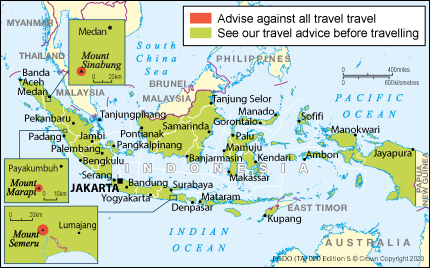
The Foreign, Commonwealth & Development Office (FCDO) provides advice about risks of travel to support British nationals in making informed decisions. Find out more about FCDO travel advice .
Areas where the FCDO advises against travel
Your travel insurance could be invalidated if you travel against FCDO advice. Consular support is also severely limited where FCDO advises against travel.
Mount Marapi, Western Sumatra
FCDO advises against all travel to within 3km of the crater of Mount Marapi in West Sumatra.
Mount Sinabung area, Karo Regency
FCDO advises against all travel within 5 km of the Mount Sinabung crater in Karo Regency, North Sumatra.
Mount Semeru area, Lumajang Regency
FCDO advises against all travel within 5 km of the crater of Mount Semeru in Lumajang Regency, East Java. FCDO also advises against all travel to the southeast area of Mount Semeru along the Besuk Kobokan river (approximately 13 km from the crater). You should stay at least 500 m from the Besuk Kobokan riverbank.
Find out more about why FCDO advises against travel
Before you travel
No travel can be guaranteed safe. Read all the advice in this guide as well as support for British nationals abroad which includes:
- advice on preparing for travel abroad and reducing risks
- information for women, LGBT and disabled travellers
Follow and contact FCDO travel on Twitter , Facebook and Instagram . You can also sign up to get email notifications when this advice is updated.
Travel insurance
If you choose to travel, research your destinations and get appropriate travel insurance . Insurance should cover your itinerary, planned activities and potential expenses in an emergency.
Related content
Is this page useful.
- Yes this page is useful
- No this page is not useful
Help us improve GOV.UK
Don’t include personal or financial information like your National Insurance number or credit card details.
To help us improve GOV.UK, we’d like to know more about your visit today. We’ll send you a link to a feedback form. It will take only 2 minutes to fill in. Don’t worry we won’t send you spam or share your email address with anyone.
You are using an outdated browser. Upgrade your browser today or install Google Chrome Frame to better experience this site.
Indonesia Traveler View
Travel health notices, vaccines and medicines, non-vaccine-preventable diseases, stay healthy and safe.
- Packing List
After Your Trip
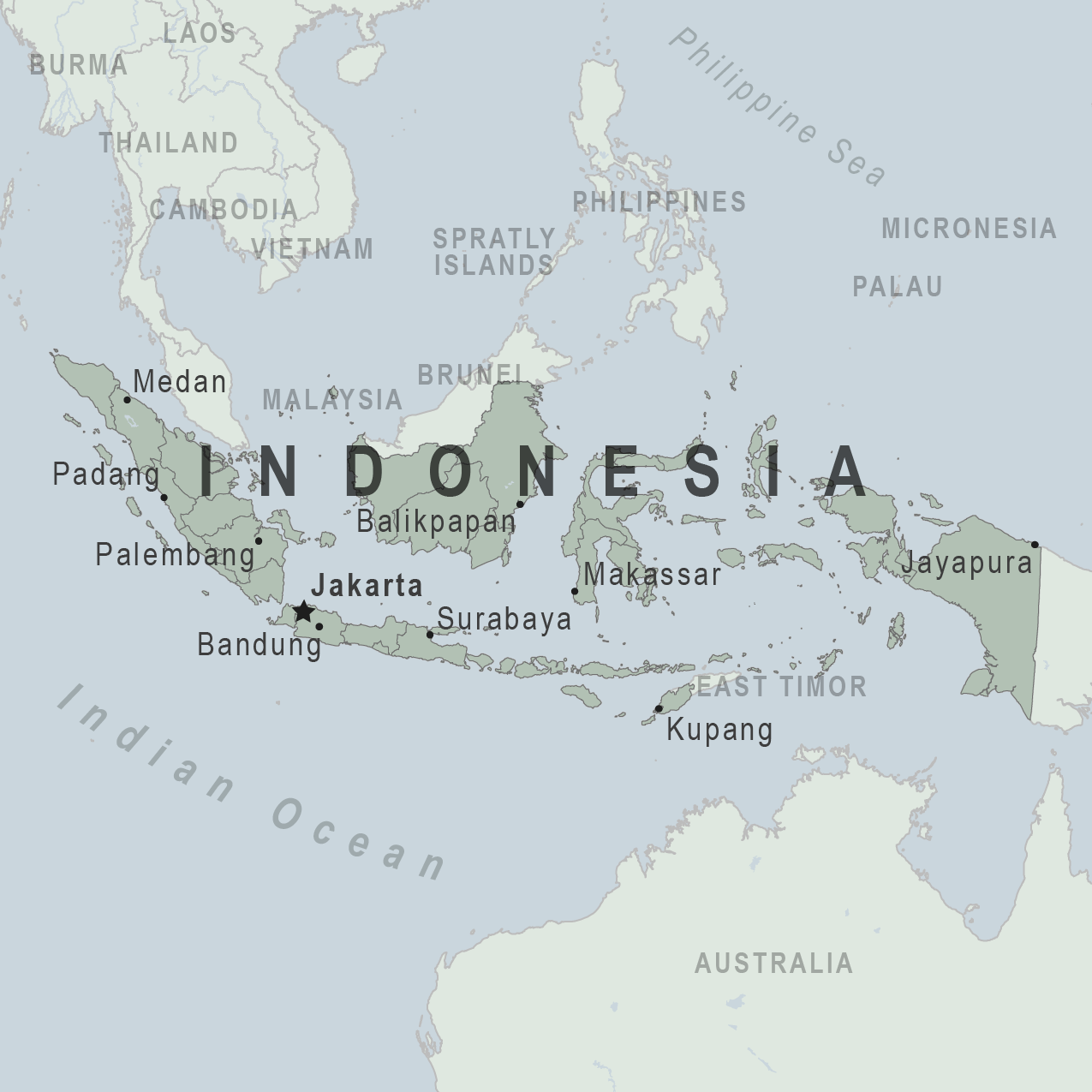
Be aware of current health issues in Indonesia. Learn how to protect yourself.
Level 2 Practice Enhanced Precautions
- Global Polio January 05, 2024 Some international destinations have circulating poliovirus. Before any international travel, make sure you are up to date on your polio vaccines. Destination List: Afghanistan, Algeria, Benin, Botswana, Burkina Faso, Burundi, Cameroon, Central African Republic, Chad, Côte d'Ivoire (Ivory Coast), Democratic Republic of the Congo, Egypt, Guinea, Indonesia, Israel, including the West Bank and Gaza, Kenya, Madagascar, Malawi, Mali, Mauritania, Mozambique, Niger, Nigeria, Pakistan, Republic of the Congo, Somalia, Sudan, Tanzania, including Zanzibar, Yemen, Zambia, Zimbabwe
Level 1 Practice Usual Precautions
- Global Measles March 22, 2024 Many international destinations are reporting increased numbers of cases of measles. Destination List: Afghanistan, Angola, Armenia, Azerbaijan, Benin, Burkina Faso, Burundi, Cameroon, Central African Republic, Chad, Côte d'Ivoire (Ivory Coast), Democratic Republic of the Congo, Djibouti, Equatorial Guinea, Ethiopia, Gabon, Ghana, India, Indonesia, Kazakhstan, Kyrgyzstan, Lebanon, Liberia, Libya, Malaysia, Mauritania, Nepal, Niger, Nigeria, Pakistan, Qatar, Republic of South Sudan, Republic of the Congo, Romania, Russia, Senegal, Somalia, Sri Lanka, Sudan, Syria, Tajikistan, Togo, Turkey, United Arab Emirates, Uzbekistan, Yemen, Zambia
⇧ Top
Check the vaccines and medicines list and visit your doctor at least a month before your trip to get vaccines or medicines you may need. If you or your doctor need help finding a location that provides certain vaccines or medicines, visit the Find a Clinic page.
Routine vaccines
Recommendations.
Make sure you are up-to-date on all routine vaccines before every trip. Some of these vaccines include
- Chickenpox (Varicella)
- Diphtheria-Tetanus-Pertussis
- Flu (influenza)
- Measles-Mumps-Rubella (MMR)
Immunization schedules
All eligible travelers should be up to date with their COVID-19 vaccines. Please see Your COVID-19 Vaccination for more information.
COVID-19 vaccine
Hepatitis A
Recommended for unvaccinated travelers one year old or older going to Indonesia.
Infants 6 to 11 months old should also be vaccinated against Hepatitis A. The dose does not count toward the routine 2-dose series.
Travelers allergic to a vaccine component or who are younger than 6 months should receive a single dose of immune globulin, which provides effective protection for up to 2 months depending on dosage given.
Unvaccinated travelers who are over 40 years old, immunocompromised, or have chronic medical conditions planning to depart to a risk area in less than 2 weeks should get the initial dose of vaccine and at the same appointment receive immune globulin.
Hepatitis A - CDC Yellow Book
Dosing info - Hep A
Hepatitis B
Recommended for unvaccinated travelers of all ages traveling to Indonesia.
Hepatitis B - CDC Yellow Book
Dosing info - Hep B
Japanese Encephalitis
Recommended for travelers who
- Are moving to an area with Japanese encephalitis to live
- Spend long periods of time, such as a month or more, in areas with Japanese encephalitis
- Frequently travel to areas with Japanese encephalitis
Consider vaccination for travelers
- Spending less than a month in areas with Japanese encephalitis but will be doing activities that increase risk of infection, such as visiting rural areas, hiking or camping, or staying in places without air conditioning, screens, or bed nets
- Going to areas with Japanese encephalitis who are uncertain of their activities or how long they will be there
Not recommended for travelers planning short-term travel to urban areas or travel to areas with no clear Japanese encephalitis season.
Japanese encephalitis - CDC Yellow Book
Japanese Encephalitis Vaccine for US Children
CDC recommends that travelers going to certain areas of Indonesia take prescription medicine to prevent malaria. Depending on the medicine you take, you will need to start taking this medicine multiple days before your trip, as well as during and after your trip. Talk to your doctor about which malaria medication you should take.
Find country-specific information about malaria.
Malaria - CDC Yellow Book
Considerations when choosing a drug for malaria prophylaxis (CDC Yellow Book)
Malaria information for Indonesia.
Cases of measles are on the rise worldwide. Travelers are at risk of measles if they have not been fully vaccinated at least two weeks prior to departure, or have not had measles in the past, and travel internationally to areas where measles is spreading.
All international travelers should be fully vaccinated against measles with the measles-mumps-rubella (MMR) vaccine, including an early dose for infants 6–11 months, according to CDC’s measles vaccination recommendations for international travel .
Measles (Rubeola) - CDC Yellow Book
In Indonesia poliovirus has been identified in the past year.
Travelers to Indonesia are at increased risk of exposure to poliovirus.
Vaccine recommendations : Adults traveling to Indonesia who received a complete polio vaccination series as children may receive a single lifetime booster dose of inactivated polio vaccine; travelers who are unvaccinated or not fully vaccinated should receive a complete polio vaccination series before travel. Children who are not fully vaccinated will be considered for an accelerated vaccination schedule .
Polio - CDC Yellow Book
Polio: For Travelers
Rabid dogs are commonly found in Indonesia. If you are bitten or scratched by a dog or other mammal while in Indonesia, there may be limited or no rabies treatment available.
Consider rabies vaccination before your trip if your activities mean you will be around dogs or wildlife.
Travelers more likely to encounter rabid animals include
- Campers, adventure travelers, or cave explorers (spelunkers)
- Veterinarians, animal handlers, field biologists, or laboratory workers handling animal specimens
- Visitors to rural areas
Since children are more likely to be bitten or scratched by a dog or other animals, consider rabies vaccination for children traveling to Indonesia.
Rabies - CDC Yellow Book
Recommended for most travelers, especially those staying with friends or relatives or visiting smaller cities or rural areas.
Typhoid - CDC Yellow Book
Dosing info - Typhoid
Yellow Fever
Required for travelers ≥9 months old arriving from countries with risk for YF virus transmission. 1
Yellow Fever - CDC Yellow Book
- Avoid contaminated water
Leptospirosis
How most people get sick (most common modes of transmission)
- Touching urine or other body fluids from an animal infected with leptospirosis
- Swimming or wading in urine-contaminated fresh water, or contact with urine-contaminated mud
- Drinking water or eating food contaminated with animal urine
- Avoid contaminated water and soil
Clinical Guidance
Schistosomiasis
- Wading, swimming, bathing, or washing in contaminated freshwater streams, rivers, ponds, lakes, or untreated pools.
Avoid bug bites
Chikungunya
- Mosquito bite
- Avoid Bug Bites
- Mosquito bite
- An infected pregnant woman can spread it to her unborn baby
Airborne & droplet
Avian/bird flu.
- Being around, touching, or working with infected poultry, such as visiting poultry farms or live-animal markets
- Avoid domestic and wild poultry
- Breathing in air or accidentally eating food contaminated with the urine, droppings, or saliva of infected rodents
- Bite from an infected rodent
- Less commonly, being around someone sick with hantavirus (only occurs with Andes virus)
- Avoid rodents and areas where they live
- Avoid sick people
Tuberculosis (TB)
- Breathe in TB bacteria that is in the air from an infected and contagious person coughing, speaking, or singing.
Learn actions you can take to stay healthy and safe on your trip. Vaccines cannot protect you from many diseases in Indonesia, so your behaviors are important.
Eat and drink safely
Food and water standards around the world vary based on the destination. Standards may also differ within a country and risk may change depending on activity type (e.g., hiking versus business trip). You can learn more about safe food and drink choices when traveling by accessing the resources below.
- Choose Safe Food and Drinks When Traveling
- Water Treatment Options When Hiking, Camping or Traveling
- Global Water, Sanitation and Hygiene | Healthy Water
- Avoid Contaminated Water During Travel
You can also visit the Department of State Country Information Pages for additional information about food and water safety.
Prevent bug bites
Bugs (like mosquitoes, ticks, and fleas) can spread a number of diseases in Indonesia. Many of these diseases cannot be prevented with a vaccine or medicine. You can reduce your risk by taking steps to prevent bug bites.
What can I do to prevent bug bites?
- Cover exposed skin by wearing long-sleeved shirts, long pants, and hats.
- Use an appropriate insect repellent (see below).
- Use permethrin-treated clothing and gear (such as boots, pants, socks, and tents). Do not use permethrin directly on skin.
- Stay and sleep in air-conditioned or screened rooms.
- Use a bed net if the area where you are sleeping is exposed to the outdoors.
What type of insect repellent should I use?
- FOR PROTECTION AGAINST TICKS AND MOSQUITOES: Use a repellent that contains 20% or more DEET for protection that lasts up to several hours.
- Picaridin (also known as KBR 3023, Bayrepel, and icaridin)
- Oil of lemon eucalyptus (OLE) or para-menthane-diol (PMD)
- 2-undecanone
- Always use insect repellent as directed.
What should I do if I am bitten by bugs?
- Avoid scratching bug bites, and apply hydrocortisone cream or calamine lotion to reduce the itching.
- Check your entire body for ticks after outdoor activity. Be sure to remove ticks properly.
What can I do to avoid bed bugs?
Although bed bugs do not carry disease, they are an annoyance. See our information page about avoiding bug bites for some easy tips to avoid them. For more information on bed bugs, see Bed Bugs .
For more detailed information on avoiding bug bites, see Avoid Bug Bites .
Stay safe outdoors
If your travel plans in Indonesia include outdoor activities, take these steps to stay safe and healthy during your trip.
- Stay alert to changing weather conditions and adjust your plans if conditions become unsafe.
- Prepare for activities by wearing the right clothes and packing protective items, such as bug spray, sunscreen, and a basic first aid kit.
- Consider learning basic first aid and CPR before travel. Bring a travel health kit with items appropriate for your activities.
- If you are outside for many hours in heat, eat salty snacks and drink water to stay hydrated and replace salt lost through sweating.
- Protect yourself from UV radiation : use sunscreen with an SPF of at least 15, wear protective clothing, and seek shade during the hottest time of day (10 a.m.–4 p.m.).
- Be especially careful during summer months and at high elevation. Because sunlight reflects off snow, sand, and water, sun exposure may be increased during activities like skiing, swimming, and sailing.
- Very cold temperatures can be dangerous. Dress in layers and cover heads, hands, and feet properly if you are visiting a cold location.
Stay safe around water
- Swim only in designated swimming areas. Obey lifeguards and warning flags on beaches.
- Practice safe boating—follow all boating safety laws, do not drink alcohol if driving a boat, and always wear a life jacket.
- Do not dive into shallow water.
- Do not swim in freshwater in developing areas or where sanitation is poor.
- Avoid swallowing water when swimming. Untreated water can carry germs that make you sick.
- To prevent infections, wear shoes on beaches where there may be animal waste.
Schistosomiasis, a parasitic infection that can be spread in fresh water, is found in Indonesia. Avoid swimming in fresh, unchlorinated water, such as lakes, ponds, or rivers.
Keep away from animals
Most animals avoid people, but they may attack if they feel threatened, are protecting their young or territory, or if they are injured or ill. Animal bites and scratches can lead to serious diseases such as rabies.
Follow these tips to protect yourself:
- Do not touch or feed any animals you do not know.
- Do not allow animals to lick open wounds, and do not get animal saliva in your eyes or mouth.
- Avoid rodents and their urine and feces.
- Traveling pets should be supervised closely and not allowed to come in contact with local animals.
- If you wake in a room with a bat, seek medical care immediately. Bat bites may be hard to see.
All animals can pose a threat, but be extra careful around dogs, bats, monkeys, sea animals such as jellyfish, and snakes. If you are bitten or scratched by an animal, immediately:
- Wash the wound with soap and clean water.
- Go to a doctor right away.
- Tell your doctor about your injury when you get back to the United States.
Consider buying medical evacuation insurance. Rabies is a deadly disease that must be treated quickly, and treatment may not be available in some countries.
Reduce your exposure to germs
Follow these tips to avoid getting sick or spreading illness to others while traveling:
- Wash your hands often, especially before eating.
- If soap and water aren’t available, clean hands with hand sanitizer (containing at least 60% alcohol).
- Don’t touch your eyes, nose, or mouth. If you need to touch your face, make sure your hands are clean.
- Cover your mouth and nose with a tissue or your sleeve (not your hands) when coughing or sneezing.
- Try to avoid contact with people who are sick.
- If you are sick, stay home or in your hotel room, unless you need medical care.
Avoid sharing body fluids
Diseases can be spread through body fluids, such as saliva, blood, vomit, and semen.
Protect yourself:
- Use latex condoms correctly.
- Do not inject drugs.
- Limit alcohol consumption. People take more risks when intoxicated.
- Do not share needles or any devices that can break the skin. That includes needles for tattoos, piercings, and acupuncture.
- If you receive medical or dental care, make sure the equipment is disinfected or sanitized.
Know how to get medical care while traveling
Plan for how you will get health care during your trip, should the need arise:
- Carry a list of local doctors and hospitals at your destination.
- Review your health insurance plan to determine what medical services it would cover during your trip. Consider purchasing travel health and medical evacuation insurance.
- Carry a card that identifies, in the local language, your blood type, chronic conditions or serious allergies, and the generic names of any medications you take.
- Some prescription drugs may be illegal in other countries. Call Indonesia’s embassy to verify that all of your prescription(s) are legal to bring with you.
- Bring all the medicines (including over-the-counter medicines) you think you might need during your trip, including extra in case of travel delays. Ask your doctor to help you get prescriptions filled early if you need to.
Many foreign hospitals and clinics are accredited by the Joint Commission International. A list of accredited facilities is available at their website ( www.jointcommissioninternational.org ).
In some countries, medicine (prescription and over-the-counter) may be substandard or counterfeit. Bring the medicines you will need from the United States to avoid having to buy them at your destination.
Malaria is a risk in some parts of Indonesia. If you are going to a risk area, fill your malaria prescription before you leave, and take enough with you for the entire length of your trip. Follow your doctor’s instructions for taking the pills; some need to be started before you leave.
Select safe transportation
Motor vehicle crashes are the #1 killer of healthy US citizens in foreign countries.
In many places cars, buses, large trucks, rickshaws, bikes, people on foot, and even animals share the same lanes of traffic, increasing the risk for crashes.
Be smart when you are traveling on foot.
- Use sidewalks and marked crosswalks.
- Pay attention to the traffic around you, especially in crowded areas.
- Remember, people on foot do not always have the right of way in other countries.
Riding/Driving
Choose a safe vehicle.
- Choose official taxis or public transportation, such as trains and buses.
- Ride only in cars that have seatbelts.
- Avoid overcrowded, overloaded, top-heavy buses and minivans.
- Avoid riding on motorcycles or motorbikes, especially motorbike taxis. (Many crashes are caused by inexperienced motorbike drivers.)
- Choose newer vehicles—they may have more safety features, such as airbags, and be more reliable.
- Choose larger vehicles, which may provide more protection in crashes.
Think about the driver.
- Do not drive after drinking alcohol or ride with someone who has been drinking.
- Consider hiring a licensed, trained driver familiar with the area.
- Arrange payment before departing.
Follow basic safety tips.
- Wear a seatbelt at all times.
- Sit in the back seat of cars and taxis.
- When on motorbikes or bicycles, always wear a helmet. (Bring a helmet from home, if needed.)
- Avoid driving at night; street lighting in certain parts of Indonesia may be poor.
- Do not use a cell phone or text while driving (illegal in many countries).
- Travel during daylight hours only, especially in rural areas.
- If you choose to drive a vehicle in Indonesia, learn the local traffic laws and have the proper paperwork.
- Get any driving permits and insurance you may need. Get an International Driving Permit (IDP). Carry the IDP and a US-issued driver's license at all times.
- Check with your auto insurance policy's international coverage, and get more coverage if needed. Make sure you have liability insurance.
- Avoid using local, unscheduled aircraft.
- If possible, fly on larger planes (more than 30 seats); larger airplanes are more likely to have regular safety inspections.
- Try to schedule flights during daylight hours and in good weather.
Medical Evacuation Insurance
If you are seriously injured, emergency care may not be available or may not meet US standards. Trauma care centers are uncommon outside urban areas. Having medical evacuation insurance can be helpful for these reasons.
Helpful Resources
Road Safety Overseas (Information from the US Department of State): Includes tips on driving in other countries, International Driving Permits, auto insurance, and other resources.
The Association for International Road Travel has country-specific Road Travel Reports available for most countries for a minimal fee.
For information traffic safety and road conditions in Indonesia, see Travel and Transportation on US Department of State's country-specific information for Indonesia .
Traffic flows on the left side of the road in Indonesia.
- Always pay close attention to the flow of traffic, especially when crossing the street.
- LOOK RIGHT for approaching traffic.
Maintain personal security
Use the same common sense traveling overseas that you would at home, and always stay alert and aware of your surroundings.
Before you leave
- Research your destination(s), including local laws, customs, and culture.
- Monitor travel advisories and alerts and read travel tips from the US Department of State.
- Enroll in the Smart Traveler Enrollment Program (STEP) .
- Leave a copy of your itinerary, contact information, credit cards, and passport with someone at home.
- Pack as light as possible, and leave at home any item you could not replace.
While at your destination(s)
- Carry contact information for the nearest US embassy or consulate .
- Carry a photocopy of your passport and entry stamp; leave the actual passport securely in your hotel.
- Follow all local laws and social customs.
- Do not wear expensive clothing or jewelry.
- Always keep hotel doors locked, and store valuables in secure areas.
- If possible, choose hotel rooms between the 2nd and 6th floors.
Healthy Travel Packing List
Use the Healthy Travel Packing List for Indonesia for a list of health-related items to consider packing for your trip. Talk to your doctor about which items are most important for you.
Why does CDC recommend packing these health-related items?
It’s best to be prepared to prevent and treat common illnesses and injuries. Some supplies and medicines may be difficult to find at your destination, may have different names, or may have different ingredients than what you normally use.
If you are not feeling well after your trip, you may need to see a doctor. If you need help finding a travel medicine specialist, see Find a Clinic . Be sure to tell your doctor about your travel, including where you went and what you did on your trip. Also tell your doctor if you were bitten or scratched by an animal while traveling.
If your doctor prescribed antimalarial medicine for your trip, keep taking the rest of your pills after you return home. If you stop taking your medicine too soon, you could still get sick.
Malaria is always a serious disease and may be a deadly illness. If you become ill with a fever either while traveling in a malaria-risk area or after you return home (for up to 1 year), you should seek immediate medical attention and should tell the doctor about your travel history.
For more information on what to do if you are sick after your trip, see Getting Sick after Travel .
Map Disclaimer - The boundaries and names shown and the designations used on maps do not imply the expression of any opinion whatsoever on the part of the Centers for Disease Control and Prevention concerning the legal status of any country, territory, city or area or of its authorities, or concerning the delimitation of its frontiers or boundaries. Approximate border lines for which there may not yet be full agreement are generally marked.
Other Destinations
If you need help finding travel information:
Message & data rates may apply. CDC Privacy Policy
File Formats Help:
- Adobe PDF file
- Microsoft PowerPoint file
- Microsoft Word file
- Microsoft Excel file
- Audio/Video file
- Apple Quicktime file
- RealPlayer file
- Zip Archive file
Exit Notification / Disclaimer Policy
- The Centers for Disease Control and Prevention (CDC) cannot attest to the accuracy of a non-federal website.
- Linking to a non-federal website does not constitute an endorsement by CDC or any of its employees of the sponsors or the information and products presented on the website.
- You will be subject to the destination website's privacy policy when you follow the link.
- CDC is not responsible for Section 508 compliance (accessibility) on other federal or private website.
We’re sorry, this site is currently experiencing technical difficulties. Please try again in a few moments. Exception: request blocked
- Skip to main content
- Skip to "About this site"
Language selection
Search travel.gc.ca.
Help us to improve our website. Take our survey !
COVID-19: travel health notice for all travellers
Indonesia travel advice
Latest updates: The Need help? section was updated.
Last updated: April 12, 2024 09:05 ET
On this page
Safety and security, entry and exit requirements, laws and culture, natural disasters and climate, indonesia - exercise a high degree of caution.
Exercise a high degree of caution in Indonesia due to political and social tensions and the threat of terrorism throughout the country.
Indonesian Papua - Avoid non-essential travel
Avoid non-essential travel to all the provinces of Indonesia Papua due to the regular occurrence of violent incidents, threats made against foreigners by militant groups and risk of kidnapping.
Back to top
- Indonesian Papua
Political tension and regular violent incidents continue to occur in Indonesian Papua.
In February 2023, militant groups threatened to attack and take hostages, specifically referencing foreigners. You may also face increased threats of violence or kidnapping if you travel to Indonesian Papua.
Labour disputes at the Freeport-McMoRan mine near Timika have led to demonstrations, public transportation disruptions and violence.
Fatal attacks have occurred on roads near the mine. Foreigners have been targeted by local militants.
There is a heightened police and military presence in this area.
There is a threat of terrorism in Indonesia.
While effective counterterrorism measures by Indonesian authorities are in place, terrorist cells are active and have the capacity to carry out attacks throughout the country.
Attacks have targeted:
- military and government facilities
- tourist attractions and popular public places
- nightclubs and entertainment venues
- public transportation
Further attacks are likely, and terrorists may also target:
- crowded places
- places with high pedestrian traffic and where foreigners may gather
- commercial establishments
- local government offices
- public transit stations
- busy streets
- long lineups at tourist attractions
- places of worship
Stay at hotels that have robust security measures, including metal detectors, guards and security cameras. Keep in mind, however, that even the most secure locations cannot be considered completely free of risk.
Be particularly vigilant during religious holidays and other public celebrations, as terrorists have used such occasions to mount attacks.
- Always be aware of your surroundings when in public places and identify ways to leave the area in case of emergency
- Monitor local media
- Follow the instructions of the local authorities
Violent crime
Violent crime, such as armed robberies, occurs regularly. Be particularly cautious on the road from Banda Aceh to Medan, where armed robberies have occurred.
Foreigners travelling alone and those travelling at night are at particular risk.
Standards of police services differ considerably from those in Canada.
- Avoid showing signs of affluence
- Ensure that your personal belongings, including your passport and other travel documents, are secure at all times
- If you’re travelling by car, keep valuable belongings out of sight, windows closed and doors locked
Petty crime
Petty crime, such as pickpocketing and purse snatching, occurs throughout Indonesia, specifically in tourist areas, such as Bali and Lombok. Criminals sometimes force people to withdraw cash from ATMs.
Merchants don’t always honour pricing agreements. Use good judgment in engaging services of tourist guides, especially in places that tourists rarely visit.
There is a threat of kidnapping, particularly in the provinces of Indonesian Papua and Aceh province. Foreign travellers have been kidnapped and killed. Terrorist groups have also kidnapped tourists in East and West Kalimantan.
- Be extra vigilant if travelling in these areas
- Avoid travelling alone and after dusk
- Use varied routes and schedules when moving from one place to another
Women's safety
Women travelling alone may face some forms of harassment and verbal abuse.
Advice for women travellers
Demonstrations
Demonstrations take place from time to time. Even peaceful demonstrations can turn violent at any time. They can also lead to disruptions to traffic and public transportation.
- Avoid areas where demonstrations and large gatherings are taking place
- Follow the instructions of local authorities
- Monitor local media for information on ongoing demonstrations
Mass gatherings (large-scale events)
Political and social tension
There are long-standing sectarian and social tensions throughout Indonesia, particularly in the provinces of:
- Central Sulawesi, in Palu, Poso and Tentena
- Maluku, especially in Ambon
Sectarian violence targeting civilians has occurred. The potential for violence remains, despite ongoing security operations efforts from local authorities. Be aware of your surroundings.
There is a very high rate of credit and debit card fraud in Indonesia, including online fraud.
When using debit or credit cards:
- pay careful attention if other people are handling your cards
- use ATMs located in public areas or inside a bank or business
- avoid using card readers with an irregular or unusual feature
- cover the keypad with one hand when entering your PIN
- check for any unauthorized transactions on your account statements
Romance scams
If you’re travelling to Indonesia to meet someone you’ve only met online, keep it mind that you may be the victim of a scam. Be wary of unsolicited emails or requests for a wire transfer.
Don’t send money to someone you have never met in person.
Overseas fraud
Spiked food and drinks
Even if the wrapping or container appears intact, snacks, beverages, gum and cigarettes may contain drugs that could put you at risk of sexual assault and robbery.
- Be wary of accepting these items from new acquaintances
- Never leave food or drinks unattended or in the care of strangers
People have died after drinking methanol-adulterated alcohol. Counterfeits of well-known alcohol brands often contain dangerous amounts of methanol. Poisoning incidents have happened at hotels, bars, and shops in tourist areas like Bali, Lombok, the Gili Islands and Sumatra.
- Be cautious if you choose to drink alcohol
- Be wary of lesser-known or illegal brands
- Avoid buying alcohol from individuals
- Seek medical assistance if you begin to feel sick
Alcohol, drugs and travel
Road safety
Road conditions and road safety vary greatly throughout the country. Driving conditions may be hazardous during the rainy season.
Road travel in Indonesia can be very challenging due to:
- reckless driving
- perilous road conditions
- inadequate lighting
- poor signage
- high traffic congestion
If you plan to rent a car, consider hiring a driver.
Avoid driving after dark outside of major cities or major roads as some drivers do not use lights.
You may face mob anger if you are involved in an accident that causes serious injury. In such cases, remain in your vehicle and wait for a police officer to arrive.
Motorcycles and scooters
Motorcycle and scooter accidents are the main cause of death and serious injury among foreigners visiting many parts of Indonesia, including Bali.
Rental motorcycles are also often targeted and stolen. In such cases, you may have to pay the replacement cost for a new motorcycle.
Public transport
Public transport can be crowded and safety standards are poor. Many remote parts of Indonesia have poor transportation networks.
Crashes involving overcrowded buses are common. Large buses are generally available only on Java. Minibuses are available elsewhere.
If you choose to travel by bus,
- keep in mind that minibus drivers may try to overcharge foreigners
- keep your belongings secure due to pickpocketing
The condition of taxis varies. Foreign travellers using taxis have been victims of armed robbery, either by the driver or other passengers.
- Pre-arrange transportation with a safe and reliable taxi company
- Only use a taxi company whose vehicles are equipped with a meter
- Never enter a cab if it already has one or more passengers
- Don’t hail taxis off the street and avoid using unmarked taxi services
Reliable taxis are available from Bluebird, Thunderbird and Express. Be careful of “lookalike” taxis from competitors.
Ferry accidents are common and are often caused by poor safety practices or extreme weather conditions.
If you choose to travel by ferry:
- make sure the vessel you are boarding is carrying appropriate safety equipment and that life jackets are provided for all passengers and accessible at all times
- don’t board vessels that appear overloaded or unseaworthy
- verify the safety standards of ferries with your tour operator
We do not make assessments on the compliance of foreign domestic airlines with international safety standards.
Information about foreign domestic airlines
Every country or territory decides who can enter or exit through its borders. The Government of Canada cannot intervene on your behalf if you do not meet your destination’s entry or exit requirements.
We have obtained the information on this page from the Indonesian authorities. It can, however, change at any time.
Verify this information with the Foreign Representatives in Canada .
Entry requirements vary depending on the type of passport you use for travel.
Before you travel, check with your transportation company about passport requirements. Its rules on passport validity may be more stringent than the country’s entry rules.
Regular Canadian passport
Your passport must be valid for at least 6 months beyond the date of entry into Indonesia and must contain at least one blank page for the placement of the Indonesian visa or entry stamp.
Passport for official travel
Different entry rules may apply.
Official travel
Passport with “X” gender identifier
While the Government of Canada issues passports with an “X” gender identifier, it cannot guarantee your entry or transit through other countries. You might face entry restrictions in countries that do not recognize the “X” gender identifier. Before you leave, check with the closest foreign representative for your destination.
Other travel documents
Different entry rules may apply when travelling with a temporary passport or an emergency travel document. Before you leave, check with the closest foreign representative for your destination.
Useful links
- Foreign Representatives in Canada
- Canadian passports
Tourist visa: required Business visa: required Social-cultural visit visa: required
Indonesia strictly enforces its immigration and visa requirements. Foreign travellers have been detained in immigration detention centres for visa violations or overstays. Those in violation may be subject to substantial fines and deportation.
A round-trip or onward airline ticket is required to obtain all types of visas.
Tourist visa
If you are travelling for tourism with a regular Canadian passport, you may obtain a visa in advance or on arrival at select points of entry.
Business and social-cultural visas
If you are travelling to Indonesia for business or social-cultural purposes (e.g. volunteer work), you must obtain a visa prior to your arrival. You must provide a letter from both the sponsoring organization in Indonesia and the sending organization in Canada to obtain your visa.
A business or social-cultural single-entry visa is extendable from within Indonesia.
Aid workers
Aid workers must have a sponsor in Indonesia to obtain a visa. Those going to Aceh also require prior authorization from the Directorate General of Immigration in Aceh or Jakarta.
Journalists
Journalists visiting Indonesia for reporting and filming purposes must obtain authorization from the Directorate General of Immigration in Jakarta before applying for a visa.
Directorate General of Immigration – Ministry of Law and Human Rights of Indonesia
Restricted areas
You must obtain a permit to travel to Indonesian Papua.
Entry regulations and permission to remain in Indonesian Papua may change at any time.
Other entry requirements
Starting February 14, 2024, tourists entering Bali will be subject to a new tax, the Love Bali Tourist Levy. This fee will be in addition to the visa fees paid to enter Indonesia.
If your are travelling to Bali, you must pay directly though the Provincial Government of Bali website.
Levy for Foreign Tourists – Provincial Government of Bali
Customs officials may ask you to show them a return or onward ticket and proof of sufficient funds to cover your stay.
Children and travel
Learn more about travelling with children .
Yellow fever
Learn about potential entry requirements related to yellow fever (vaccines section).
Relevant Travel Health Notices
- Global Measles Notice - 13 March, 2024
- Zika virus: Advice for travellers - 31 August, 2023
- COVID-19 and International Travel - 13 March, 2024
- Polio: Advice for travellers - 4 January, 2024
- Mpox (monkeypox): Advice for travellers - 20 February, 2024
- Dengue: Advice for travellers - 8 April, 2024
This section contains information on possible health risks and restrictions regularly found or ongoing in the destination. Follow this advice to lower your risk of becoming ill while travelling. Not all risks are listed below.
Consult a health care professional or visit a travel health clinic preferably 6 weeks before you travel to get personalized health advice and recommendations.
Routine vaccines
Be sure that your routine vaccinations , as per your province or territory , are up-to-date before travelling, regardless of your destination.
Some of these vaccinations include measles-mumps-rubella (MMR), diphtheria, tetanus, pertussis, polio, varicella (chickenpox), influenza and others.
Pre-travel vaccines and medications
You may be at risk for preventable diseases while travelling in this destination. Talk to a travel health professional about which medications or vaccines may be right for you, based on your destination and itinerary.
Yellow fever is a disease caused by a flavivirus from the bite of an infected mosquito.
Travellers get vaccinated either because it is required to enter a country or because it is recommended for their protection.
- There is no risk of yellow fever in this country.
Country Entry Requirement*
- Proof of vaccination is required if you are coming from a country where yellow fever occurs.
Recommendation
- Vaccination is not recommended.
- Discuss travel plans, activities, and destinations with a health care professional.
- Contact a designated Yellow Fever Vaccination Centre well in advance of your trip to arrange for vaccination.
About Yellow Fever
Yellow Fever Vaccination Centre
* It is important to note that country entry requirements may not reflect your risk of yellow fever at your destination. It is recommended that you contact the nearest diplomatic or consular office of the destination(s) you will be visiting to verify any additional entry requirements.
There is a risk of hepatitis A in this destination. It is a disease of the liver. People can get hepatitis A if they ingest contaminated food or water, eat foods prepared by an infectious person, or if they have close physical contact (such as oral-anal sex) with an infectious person, although casual contact among people does not spread the virus.
Practise safe food and water precautions and wash your hands often. Vaccination is recommended for all travellers to areas where hepatitis A is present.
Measles is a highly contagious viral disease. It can spread quickly from person to person by direct contact and through droplets in the air.
Anyone who is not protected against measles is at risk of being infected with it when travelling internationally.
Regardless of where you are going, talk to a health care professional before travelling to make sure you are fully protected against measles.
Japanese encephalitis is a viral infection that can cause swelling of the brain. It is spread to humans through the bite of an infected mosquito. Risk is very low for most travellers. Travellers at relatively higher risk may want to consider vaccination for JE prior to travelling.
Travellers are at higher risk if they will be:
- travelling long term (e.g. more than 30 days)
- making multiple trips to endemic areas
- staying for extended periods in rural areas
- visiting an area suffering a JE outbreak
- engaging in activities involving high contact with mosquitos (e.g., entomologists)
Hepatitis B is a risk in every destination. It is a viral liver disease that is easily transmitted from one person to another through exposure to blood and body fluids containing the hepatitis B virus. Travellers who may be exposed to blood or other bodily fluids (e.g., through sexual contact, medical treatment, sharing needles, tattooing, acupuncture or occupational exposure) are at higher risk of getting hepatitis B.
Hepatitis B vaccination is recommended for all travellers. Prevent hepatitis B infection by practicing safe sex, only using new and sterile drug equipment, and only getting tattoos and piercings in settings that follow public health regulations and standards.
The best way to protect yourself from seasonal influenza (flu) is to get vaccinated every year. Get the flu shot at least 2 weeks before travelling.
The flu occurs worldwide.
- In the Northern Hemisphere, the flu season usually runs from November to April.
- In the Southern Hemisphere, the flu season usually runs between April and October.
- In the tropics, there is flu activity year round.
The flu vaccine available in one hemisphere may only offer partial protection against the flu in the other hemisphere.
The flu virus spreads from person to person when they cough or sneeze or by touching objects and surfaces that have been contaminated with the virus. Clean your hands often and wear a mask if you have a fever or respiratory symptoms.
Malaria is a serious and sometimes fatal disease that is caused by parasites spread through the bites of mosquitoes. There is a risk of malaria in certain areas and/or during a certain time of year in this destination.
Antimalarial medication may be recommended depending on your itinerary and the time of year you are travelling. Consult a health care professional or visit a travel health clinic before travelling to discuss your options. It is recommended to do this 6 weeks before travel, however, it is still a good idea any time before leaving. Protect yourself from mosquito bites at all times: • Cover your skin and use an approved insect repellent on uncovered skin. • Exclude mosquitoes from your living area with screening and/or closed, well-sealed doors and windows. • Use insecticide-treated bed nets if mosquitoes cannot be excluded from your living area. • Wear permethrin-treated clothing. If you develop symptoms similar to malaria when you are travelling or up to a year after you return home, see a health care professional immediately. Tell them where you have been travelling or living.
In this destination, rabies is commonly carried by dogs and some wildlife, including bats. Rabies is a deadly disease that spreads to humans primarily through bites or scratches from an infected animal. While travelling, take precautions , including keeping your distance from animals (including free-roaming dogs), and closely supervising children.
If you are bitten or scratched by a dog or other animal while travelling, immediately wash the wound with soap and clean water and see a health care professional. In this destination, rabies treatment may be limited or may not be available, therefore you may need to return to Canada for treatment.
Before travel, discuss rabies vaccination with a health care professional. It may be recommended for travellers who are at high risk of exposure (e.g., occupational risk such as veterinarians and wildlife workers, children, adventure travellers and spelunkers, and others in close contact with animals).
Polio (poliomyelitis) is an infectious disease that can be prevented by vaccination. It is caused by poliovirus type 1, 2 or 3. Circulating vaccine-derived poliovirus 2 (cVDPV2) is present in this country. Polio is spread from person to person and through contaminated food and water. Infection with the polio virus can cause paralysis and death in individuals of any age who are not immune.
Recommendations:
- Be sure that your polio vaccinations are up to date before travelling. Polio is part of the routine vaccine schedule for children in Canada.
- One booster dose of the polio vaccine is recommended as an adult .
Coronavirus disease (COVID-19) is an infectious viral disease. It can spread from person to person by direct contact and through droplets in the air.
It is recommended that all eligible travellers complete a COVID-19 vaccine series along with any additional recommended doses in Canada before travelling. Evidence shows that vaccines are very effective at preventing severe illness, hospitalization and death from COVID-19. While vaccination provides better protection against serious illness, you may still be at risk of infection from the virus that causes COVID-19. Anyone who has not completed a vaccine series is at increased risk of being infected with the virus that causes COVID-19 and is at greater risk for severe disease when travelling internationally.
Before travelling, verify your destination’s COVID-19 vaccination entry/exit requirements. Regardless of where you are going, talk to a health care professional before travelling to make sure you are adequately protected against COVID-19.
Safe food and water precautions
Many illnesses can be caused by eating food or drinking beverages contaminated by bacteria, parasites, toxins, or viruses, or by swimming or bathing in contaminated water.
- Learn more about food and water precautions to take to avoid getting sick by visiting our eat and drink safely abroad page. Remember: Boil it, cook it, peel it, or leave it!
- Avoid getting water into your eyes, mouth or nose when swimming or participating in activities in freshwater (streams, canals, lakes), particularly after flooding or heavy rain. Water may look clean but could still be polluted or contaminated.
- Avoid inhaling or swallowing water while bathing, showering, or swimming in pools or hot tubs.
Travellers' diarrhea is the most common illness affecting travellers. It is spread from eating or drinking contaminated food or water.
Risk of developing travellers' diarrhea increases when travelling in regions with poor standards of hygiene and sanitation. Practise safe food and water precautions.
The most important treatment for travellers' diarrhea is rehydration (drinking lots of fluids). Carry oral rehydration salts when travelling.
Typhoid is a bacterial infection spread by contaminated food or water. Risk is higher among children, travellers going to rural areas, travellers visiting friends and relatives or those travelling for a long period of time.
Travellers visiting regions with a risk of typhoid, especially those exposed to places with poor sanitation, should speak to a health care professional about vaccination.
There is a risk of schistosomiasis in this destination. Schistosomiasis is a parasitic disease caused by tiny worms (blood flukes) which can be found in freshwater (lakes, rivers, ponds, and wetlands). The worms can break the skin, and their eggs can cause stomach pain, diarrhea, flu-like symptoms, or urinary problems. Schistosomiasis mostly affects underdeveloped and r ural communities, particularly agricultural and fishing communities.
Most travellers are at low risk. Travellers should avoid contact with untreated freshwater such as lakes, rivers, and ponds (e.g., swimming, bathing, wading, ingesting). There is no vaccine or medication available to prevent infection.
Insect bite prevention
Many diseases are spread by the bites of infected insects such as mosquitoes, ticks, fleas or flies. When travelling to areas where infected insects may be present:
- Use insect repellent (bug spray) on exposed skin
- Cover up with light-coloured, loose clothes made of tightly woven materials such as nylon or polyester
- Minimize exposure to insects
- Use mosquito netting when sleeping outdoors or in buildings that are not fully enclosed
To learn more about how you can reduce your risk of infection and disease caused by bites, both at home and abroad, visit our insect bite prevention page.
Find out what types of insects are present where you’re travelling, when they’re most active, and the symptoms of the diseases they spread.
There is a risk of chikungunya in this country. The risk may vary between regions of a country. Chikungunya is a virus spread through the bite of an infected mosquito. Chikungunya can cause a viral disease that typically causes fever and pain in the joints. In some cases, the joint pain can be severe and last for months or years.
Protect yourself from mosquito bites at all times. There is no vaccine available for chikungunya.
Lymphatic filariasis , also known as elephantiasis, is caused by filariae (tiny worms) spread to humans through the bite of an infected mosquito. It can cause a range of illnesses. Risk is generally low for most travellers. Protect yourself from mosquito bites. There is no vaccine available for lymphatic filariasis although drug treatments exist.
- In this country, dengue is a risk to travellers. It is a viral disease spread to humans by mosquito bites.
- Dengue can cause flu-like symptoms. In some cases, it can lead to severe dengue, which can be fatal.
- The level of risk of dengue changes seasonally, and varies from year to year. The level of risk also varies between regions in a country and can depend on the elevation in the region.
- Mosquitoes carrying dengue typically bite during the daytime, particularly around sunrise and sunset.
- Protect yourself from mosquito bites . There is no vaccine or medication that protects against dengue.
Zika virus is a risk in this country.
Zika virus is primarily spread through the bite of an infected mosquito. It can also be sexually transmitted. Zika virus can cause serious birth defects.
During your trip:
- Prevent mosquito bites at all times.
- Use condoms correctly or avoid sexual contact, particularly if you are pregnant.
If you are pregnant or planning a pregnancy, you should discuss the potential risks of travelling to this destination with your health care provider. You may choose to avoid or postpone travel.
For more information, see Zika virus: Pregnant or planning a pregnancy.
Animal precautions
Some infections, such as rabies and influenza, can be shared between humans and animals. Certain types of activities may increase your chance of contact with animals, such as travelling in rural or forested areas, camping, hiking, and visiting wet markets (places where live animals are slaughtered and sold) or caves.
Travellers are cautioned to avoid contact with animals, including dogs, livestock (pigs, cows), monkeys, snakes, rodents, birds, and bats, and to avoid eating undercooked wild game.
Closely supervise children, as they are more likely to come in contact with animals.
Human cases of avian influenza have been reported in this destination. Avian influenza is a viral infection that can spread quickly and easily among birds and in rare cases it can infect mammals, including people. The risk is low for most travellers.
Avoid contact with birds, including wild, farm, and backyard birds (alive or dead) and surfaces that may have bird droppings on them. Ensure all poultry dishes, including eggs and wild game, are properly cooked.
Travellers with a higher risk of exposure include those:
- visiting live bird/animal markets or poultry farms
- working with poultry (such as chickens, turkeys, domestic ducks)
- hunting, de-feathering, field dressing and butchering wild birds and wild mammals
- working with wild birds for activities such as research, conservation, or rehabilitation
- working with wild mammals, especially those that eat wild birds (e.g., foxes)
All eligible people are encouraged to get the seasonal influenza shot, which will protect them against human influenza viruses. While the seasonal influenza shot does not prevent infection with avian influenza, it can reduce the chance of getting sick with human and avian influenza viruses at the same time.
Person-to-person infections
Stay home if you’re sick and practise proper cough and sneeze etiquette , which includes coughing or sneezing into a tissue or the bend of your arm, not your hand. Reduce your risk of colds, the flu and other illnesses by:
- washing your hands often
- avoiding or limiting the amount of time spent in closed spaces, crowded places, or at large-scale events (concerts, sporting events, rallies)
- avoiding close physical contact with people who may be showing symptoms of illness
Sexually transmitted infections (STIs) , HIV , and mpox are spread through blood and bodily fluids; use condoms, practise safe sex, and limit your number of sexual partners. Check with your local public health authority pre-travel to determine your eligibility for mpox vaccine.
Tuberculosis is an infection caused by bacteria and usually affects the lungs.
For most travellers the risk of tuberculosis is low.
Travellers who may be at high risk while travelling in regions with risk of tuberculosis should discuss pre- and post-travel options with a health care professional.
High-risk travellers include those visiting or working in prisons, refugee camps, homeless shelters, or hospitals, or travellers visiting friends and relatives.
Medical services and facilities
Heath care is inadequate.
Most medical staff don’t speak English or French. You may have to pay in advance, in cash, to obtain medical services.
Medical evacuation can be very expensive and you may need it in case of serious illness or injury.
Make sure you get travel insurance that includes coverage for medical evacuation and hospital stays.
Travel health and safety
You must abide by local laws.
Learn about what you should do and how we can help if you are arrested or detained abroad .
Overview of the criminal law system in Indonesia
Penalties for possession, use or trafficking of illegal drugs are severe. Convicted offenders can expect long jail sentences. They can also be detained for long periods, without the possibility of release on bail, while police conduct investigations prior to prosecution.
Police have arrested tourists after random drug testing throughout the country.
Drugs, alcohol and travel
Some prescription and over-the-counter medications that are legal in Canada, such as those containing morphine and codeine, are classified as controlled substances in Indonesia. It’s illegal to bring them into the country, even in small quantities, without prior permission from the Indonesian Ministry of Health and the required documentation.
If you attempt to bring banned pharmaceuticals into Indonesia without prior authorization and proper documentation, Indonesian authorities may confiscate them. You may also be subject to fines and imprisonment.
In some areas, Islamic practices and beliefs closely adhere to local customs, laws and regulations.
Religious police enforce sharia law in Aceh. Specific applications of sharia may differ by region and apply to non-Muslims as well.
Be aware of the relevant provisions specifically related to the region, regardless of your religion.
Dress and behaviour
To avoid offending local sensitivities:
- dress conservatively
- behave discreetly
- respect religious and social traditions
In 2024, the lunar month of Ramadan is expected to begin on or around March 10.
In public, between sunrise and sunset, be discreet when:
2SLGBTQI+ travellers
Indonesian national law doesn’t criminalize sexual acts or relationships between persons of the same sex. However, they are prohibited and punishable under local laws in some provinces.
In Aceh, Sharia law is enforced and sexual acts between Muslim individuals of the same sex is punished by caning. They could also face arrest under charges related to immoral behaviour, prostitution or social ills.
2SLGBTQI+ travellers could be discriminated against based on their sexual orientation, gender identity, gender expression or sex characteristics.
2SLGBTQI+ individuals should carefully consider the risks of travelling to Indonesia.
Travel and your sexual orientation, gender identity, gender expression and sex characteristics
Dual citizenship
Dual citizenship is not legally recognized in Indonesia.
If local authorities consider you a citizen of Indonesia, they may refuse to grant you access to Canadian consular services. This will prevent us from providing you with those services.
Indonesia allows minors to carry dual citizenship until the age of 18. After this time, they must choose between their Indonesian citizenship and foreign citizenship.
General information for travellers with dual citizenship
International Child Abduction
The Hague Convention on the Civil Aspects of International Child Abduction is an international treaty. It can help parents with the return of children who have been removed to or retained in certain countries in violation of custody rights. It does not apply between Canada and Indonesia.
If your child was wrongfully taken to, or is being held in Indonesia by an abducting parent:
- act as quickly as you can
- consult a lawyer in Canada and in Indonesia to explore all the legal options for the return of your child
- report the situation to the nearest Canadian government office abroad or to the Vulnerable Children’s Consular Unit at Global Affairs Canada by calling the Emergency Watch and Response Centre.
If your child was removed from a country other than Canada, consult a lawyer to determine if The Hague Convention applies.
Be aware that Canadian consular officials cannot interfere in private legal matters or in another country’s judicial affairs.
- International Child Abduction: A Guidebook for Left-Behind Parents
- Travelling with children
- Canadian embassies and consulates by destination
- Emergency Watch and Response Centre
Imports and exports
Local customs authorities may enforce strict regulations concerning temporary import or export of items such as audiovisual material.
Gambling is illegal in Indonesia.
Identification
You must carry adequate identification, such as your passport and your stay permit, at all times.
You may be detained and fined if you don’t have the original on you.
Traffic drives on the left.
You must carry an International Driving Permit along with your Canadian driver’s licence.
If you got your International Driving Permit outside of Indonesia, local authorities may ask to approve it.
If you’re involved in an accident, you must stop and exchange information with and provide assistance to other drivers.
- International Driving Permit registration – Traffic Police, Government of Indonesia (in Indonesian)
- More about the International Driving Permit
The currency is the rupiah (IDR).
Credit cards are not widely accepted outside of large urban centres and tourist areas.
Carry cash when visiting remote areas.
Earthquake in the Java Sea
On March 22, 2024, a 6.4 magnitude earthquake occurred near Bawean Island in the Java Sea, resulting in damage to infrastructure and some casualties.
Transportation and access to essential services could also be disrupted in. Aftershocks may occur.
If you’re in or around the affected areas:
- monitor local media for the latest information
- follow the instructions of local authorities
Indonesia is located in a very active seismic zone. It's prone to a multitude of natural disasters such as earthquakes, tsunamis, flooding, volcanic eruptions and drought.
Earthquakes and tsunamis
Each year, Indonesia experiences thousands of earthquakes. Some trigger tsunamis and cause significant damage. Deaths and injuries occasionally occur.
A tsunami can occur within minutes of a nearby earthquake. However, the risk of tsunami can remain for several hours following the first tremor. If you're staying on the coast, familiarize yourself with the region's evacuation plans in the event of a tsunami warning.
- Earthquakes - What to Do?
- Tsunami alerts - U.S. Tsunami Warning System
Indonesia has 129 active volcanoes and periodically experiences major volcanic events that can be dangerous, even life-threatening. Ash clouds can disrupt air travel, including on the island of Bali, and cause or worsen respiratory problems.
Active volcanoes are monitored to provide residents with an early warning should unusual activity occur. Local authorities can raise alert levels and order evacuations on short notice.
If you are near active volcanoes:
- take official warnings seriously and respect exclusion zones
- monitor local media to stay up-to-date on latest developments
- follow the advice of local authorities, including evacuation orders
- be prepared to modify your travel arrangements or even evacuate the area on short notice
- National Disaster Management Authority
- Map of active volcanoes in Indonesia – MAGMA Indonesia
Rainy season
The rainy season extends from November to March, but heavy rains are common throughout the year. Flooding and landslides can occur with little warning, especially in remote areas where extensive deforestation is common, but also in major cities, including Jakarta. Such incidents have led to fatalities and destruction of property.
Seasonal flooding can hamper overland travel and reduce the provision of essential services. Roads may become impassable and bridges damaged.
- Be aware of health risks associated with flood waters
- Keep informed of regional weather forecasts as well as road closures or detours
- Avoid disaster areas
- Follow the advice of local authorities
Tornadoes, cyclones, hurricanes, typhoons and monsoons
Air pollution
Unrestricted burning in Sumatra and Kalimantan sometimes causes air pollution to rise to unhealthy levels, especially from June to October.
Monitor air pollution levels closely, as they change quickly.
During periods of high pollution:
- limit your activities outdoors
- monitor local media
Local services
In case of emergency, dial 110 for police.
Research and carry contact information for local medical facilities.
Consular assistance
Timor-Leste
There is no Canadian government office in Bali. You can obtain consular assistance from the Australian Consulate General of Australia, in Bali, under the Canada-Australia Consular Services Sharing Agreement.
Sign up to receive email updates from the Australian government on situations and events that could affect your safety while in Bali.
Smartraveller - Australian travel advice
For emergency consular assistance, call the Embassy of Canada to Indonesia, in Jakarta, and follow the instructions. At any time, you may also contact the Emergency Watch and Response Centre in Ottawa.
The decision to travel is your choice and you are responsible for your personal safety abroad. We take the safety and security of Canadians abroad very seriously and provide credible and timely information in our Travel Advice to enable you to make well-informed decisions regarding your travel abroad.
The content on this page is provided for information only. While we make every effort to give you correct information, it is provided on an "as is" basis without warranty of any kind, expressed or implied. The Government of Canada does not assume responsibility and will not be liable for any damages in connection to the information provided.
If you need consular assistance while abroad, we will make every effort to help you. However, there may be constraints that will limit the ability of the Government of Canada to provide services.
Learn more about consular services .
Risk Levels
take normal security precautions.
Take similar precautions to those you would take in Canada.
Exercise a high degree of caution
There are certain safety and security concerns or the situation could change quickly. Be very cautious at all times, monitor local media and follow the instructions of local authorities.
IMPORTANT: The two levels below are official Government of Canada Travel Advisories and are issued when the safety and security of Canadians travelling or living in the country or region may be at risk.
Avoid non-essential travel
Your safety and security could be at risk. You should think about your need to travel to this country, territory or region based on family or business requirements, knowledge of or familiarity with the region, and other factors. If you are already there, think about whether you really need to be there. If you do not need to be there, you should think about leaving.
Avoid all travel
You should not travel to this country, territory or region. Your personal safety and security are at great risk. If you are already there, you should think about leaving if it is safe to do so.
- Bus & Travel
- Airport Transfer
Things to Do
Find your travel regulations, anywhere to jakarta open, city/country status descriptions.
- Starting 9 June 2023 until further notice , based on SE Satgas COVID-19 No 1 Tahun 2023 :
- Travelers no longer need to present COVID-19 vaccination certificate or COVID-19 test result when traveling.
- [International Travel Update] Many countries have opened their borders for international tourists. Please ensure you have read all the information completely and have fulfilled travel regulations in origin country and destination country when flying abroad.
- Please ensure you have read and fulfilled all regulations to be allowed on board.
- This landing page is updated regularly based on the latest regulation. Please check this page regularly for the latest updates.
Flight Refund & Reschedule
- Flight Refund & Reschedule Info
Payment Partners
About Traveloka
- How to Book
- Help Center
- Installment
Follow us on
- International Data Plans
- Gift Voucher
- Traveloka for Corporates
- Traveloka Affiliate
- Privacy Notice
- Terms & Conditions
- Register Your Accommodation
- Register Your Experience Business
- Traveloka Press Room
- Traveloka Ads
Download Traveloka App
- aid.govt.nz
- mfat.govt.nz
- NZ Embassies

Official advice for New Zealanders living and travelling overseas
- Before you go
- Quick checklist and tips
- Disability information
- Dual Citizenship
- Going to Australia?
- LGBTQIA+ travellers
- Staying healthy while travelling
- Passports and visas
- Solo travellers
- Travel insurance
- Travelling with a criminal conviction
- Work and income benefits
- Travel advisories
- By destination
- Central Asia
- Central/South America
- Travel tips - travel to Europe
- Middle East
- North America
- Travel tips - travel to the United States
- South East Asia
- About our advisories
- Travel advisory risk levels
- News features
- When things go wrong
- Arrest and detention
- Contingency planning for New Zealanders overseas
- Financial difficulties
- Hostage taking and kidnapping
- Illness and injury
- Internet dating scams
- Internet fraud and international scams
- Large-scale emergency
- Lost, stolen or damaged passport
- Missing persons
- Nuclear incident
- Victims of crime
- Family issues
- Child abductions
- Combating sex crimes against children
- Inter-country adoptions
- Travelling with children
- Our services
- New Zealand embassy locator
- Register/update your travel plans
- Subscribe to travel advisories
Type: Embassy
Street Address: Sentral Senayan 2, 10th Floor, Jl Asia Afrika No 8, Gelora Bung Karno, Jakarta Pusat 10270, Indonesia
Postal Address: PO Box 2349 JKT 10024, Jakarta 10210, Indonesia
Telephone: (+ 62 21) 2995 5800
Alternate Telephone:
Mobile Number:
Emergency Number:
Fax Number: (+ 62 21) 5797 4578
Hours: Mon-Thurs 0730 - 1600 hrs, Fri 0730 - 1300 hrs
Covers Country:
Ministry of Foreign Affairs and Trade 195 Lambton Quay Private Bag 18 901 Wellington 5045 New Zealand
- About this site
- Accessibility
Is Jakarta Safe – Areas to Avoid and Best Neighborhoods to Stay
For your next trip to indonesia , you wonder if Jakarta is a safe city and if there are neighborhoods or areas to avoid.
Indeed, the capital of Indonesia has always had the reputation of being a chaotic and overcrowded metropolis. But is Jakarta a dangerous city?
We will discover below that while it is true that traveling to Jakarta involves risks, the city is not really dangerous. As in any large agglomeration, certain areas and situations require caution and vigilance.
This article will allow you to know the areas to avoid in Jakarta but also the best neighborhoods to stay. This is a guide to neighborhoods in Jakarta with Google Maps and tips for finding the best place to stay.
This is a summary of the data available on the Internet at the time of writing (forums, newspaper articles, rankings and statistics) and therefore does not contain any judgment or discriminatory remarks.

Is Jakarta a safe city?
To say whether Jakarta is a safe city, you have to compare its level of crime with that of other major cities in the world.
However, if we study the figures provided by the world ranking Numbeo.com , we see that Jakarta has a crime index of 52.52. This means that, unlike Denpasar , Jakarta is not a safe city because it is in the middle range.
In comparison on this ranking, Jakarta is more dangerous than Dallas , Cairo , Istanbul , Bangkok ou Bombay .
This is confirmed on the Numbeo.com map below where Jakarta is not pinned in green or yellow but in orange:
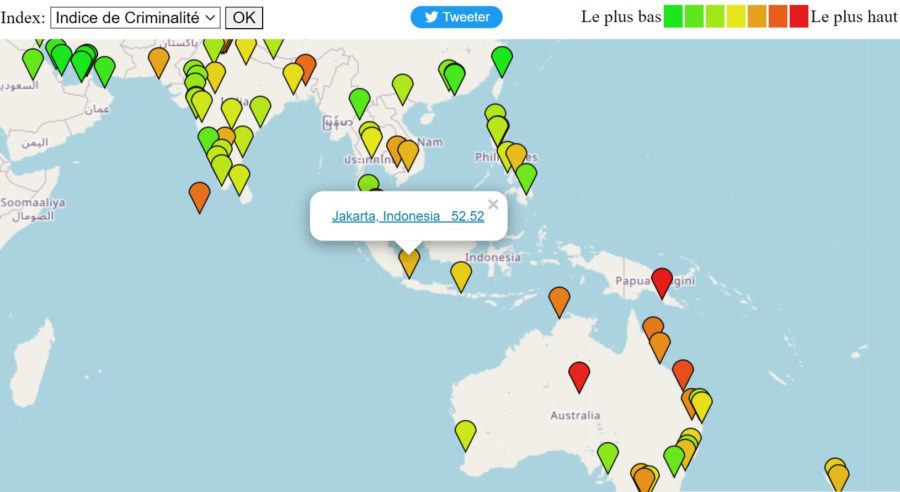
Is Jakarta a dangerous city in 2024?
While Jakarta was listed among the 2019 safest cities in the world in 10 (see article on aseantoday.com ), What about today ? Is Jakarta a dangerous city in 2024?
According to the various rankings of the most dangerous cities in the world in 2024, we see that Jakarta is not included ( statista.com ou populationu.com ).
So we can say that even though Jakarta is not 100% safe, it is not considered a dangerous city.
Indeed, like all big cities, Jakarta has its share of security problems. But they are more linked to petty crime and theft. Indeed, there are very few violent crimes in Jakarta.
However, Jakarta is a city where there is a proven terrorist risk. Here is what the site says France Diplomacy :
« A number of terrorist acts have been committed, without foreign interests being particularly targeted so far. The approach of general elections in February 2024 could lead to an increase in political violence throughout Indonesia ."
Is Jakarta safe for tourists?
Yes, tourists can travel to Jakarta without being in danger as they might be in a city in the Mexico or South Africa .
However, petty crime is still present at tourist sites and in highly frequented places such as markets and public transport. This is confirmed France Diplomacy which indicates :
« The level of security is generally satisfactory in Indonesia. However, we are witnessing an upsurge in petty crime (purse robbery) in tourist areas (Bali, Lombok, Jakarta, etc.), with a sharp increase in the number of offenses as major holidays approach (Day of year, Idul Fitri). Several cases of loss of consciousness have been reported after ingesting drinks offered by strangers. Once drugged, people are dispossessed of their property and wake up with no memory of their attackers. Cases of credit card fraud have been reported. It is advisable to show great caution when using this means of payment (do not take your eyes off your card). «
Another security problem in Jakarta is traffic congestion. Heavy traffic can prevent emergency services from reaching their destination quickly. This can be a significant problem in an emergency, as it can lead to delays in medical assistance or police response. However, the city has implemented several measures to address this issue, such as creating emergency vehicle lanes and improving the public transportation system.

Now let's see which neighborhoods and areas to avoid in Jakarta.
Map of Jakarta neighborhoods
Jakarta is a huge, sprawling city with a population of over 10 million. It consists of 5 main areas:
- Central Jakarta (Jakarta Pusat)
- West Jakarta (Jakarta Barat)
- South Jakarta (Jakarta Selatan)
- East Jakarta (Jakarta Timur)
- North Jakarta (Jakarta Utara)
Each of these areas has many neighborhoods, the list of which is too long to mention them all.
On the other hand, to help you identify the neighborhoods to avoid in Jakarta, here is a map of the main neighborhoods of the city:
Dangerous neighborhoods in Jakarta?
After much research on the internet and on the recommendations for travelers from many countries, I did not find any text mentioning dangerous neighborhoods in Jakarta.
While there are indeed poor, densely populated, poorly equipped neighborhoods to be avoided, especially at night, there is no truly dangerous neighborhood in Jakarta.
Areas to avoid in Jakarta
Without being dangerous areas, the city of Jakarta has some less quiet and less interesting areas for tourists.
According to many forums and web articles, the main area to avoid in Jakarta is the area to the east of the city with Matraman (community conflicts) and Salemba (drug trafficking).
Another area to avoid in Jakarta: It is located in and around Kampung Ambon where there is a slum where you can feel insecure.
Neighborhoods to avoid in Jakarta
While it is important to know the areas to avoid in Jakarta, it is essential to note that the city is generally safe for tourists and expats.
However, according to many expat forums, some areas of Jakarta are considered less safe than others, especially at night.
Here is the list of these neighborhoods to avoid in Jakarta:
- The slums of Networking and the river Ciliwung
- Malay Village

Best areas to stay in Jakarta
Far from the areas to avoid in Jakarta, there are many very safe and friendly neighborhoods to stay. Among the best areas to stay in Jakarta, real estate agencies mainly cite:
- Kemang, nicknamed the “Bali of Jakarta”
- Kelapa Gading which is one of the most chic and expensive areas of Jakarta
- The Golden Triangle made up of the neighborhoods of Sudirman, Gatot Subroto and Rasuna Said
- Kebayoran Lama
- Beautiful Cottage
Best area in Jakarta for tourists
The best area of Jakarta for tourists is undoubtedly Menteng. Indeed, Menteng is a tourist district in the center of Jakarta, famous for its colonial buildings and its beautiful parks.
Menteng tourist district of Jakarta
For those who want to visit Jakarta, Menteng is the district that houses the emblematic sites of the city: Presidential Palace, Taman Suropati Park, National Museum, Sukarno National Monument.
Another reason why Menteng is the best area in Jakarta for tourists is its proximity to other attractions like the National Monument, Old Town (kota), Textile Museum, Istiqlal Mosque and Jakarta Cathedral (10 minutes away road from Menteng).
Moreover, Menteng is well connected to other parts of the city by public transport.
It is also an ideal area if you want to go shopping. Indeed, there is the Grand Indonesia Mall, one of the largest shopping centers in Southeast Asia.
And this district is also a short distance from the famous shopping district of Jalan Thamrin, where tourists can buy souvenirs and traditional Indonesian handicrafts.
Finally, Menteng is also renowned for its nightlife, with cool bars and restaurants offering a wide variety of cuisines. From traditional nasi goreng to more refined Indonesian specialties, there is something for everyone in Menteng.
Where to stay in Jakarta outside the areas to avoid?
If you want to stay in the tourist district of Menteng, the accommodation options are many and varied, ranging from luxury hotels to guesthouses.
Some of the most popular hotels in the area include the Shangri La Hotel Jakarta , Four Seasons Hotel and l' Hotel Alila Jakarta .
If you are looking for a more affordable option, I recommend this hotel at the best value for money: Ashley Wahid Hasyim Jakarta .
Indeed, it benefits from an ideal location for tourists: 400 meters from the Sarinah mall, the Tugu Tani Monument and very close to the Taman Menteng Park and the National Monument.

Where to stay in Jakarta to go to Yogyakarta?
If Jakarta is only a stage before going to Yogyakarta , I recommend that you stay in a cheap hotel near Gambir Station (the one that connects Jakarta to Yogyakarta and other cities in Indonesia): Konko Hostel Jakarta
Hotel near Jakarta Airport
What if you need to spend only one night in Jakarta before joining Bali or another destination by plane, I recommend that you stay in a cheap hotel near the airport: Digital Airport Hotel
Indeed, this modern hotel is located in Jakarta International Airport and offers well-equipped capsule-shaped rooms.
Similar publications
Yogyakarta airport taxis hotel - day 1.

YOGYAKARTA WHAT TO SEE - DAY 2

BOROBUDUR AND PRAMBANAN - DAY 3

BROMO VOLCANO ROUTE - DAY 4
Leave comments cancel reply.
Your email address will not be published. Required fields are marked with *
TheJakartaPost
Please Update your browser
Your browser is out of date, and may not be compatible with our website. A list of the most popular web browsers can be found below. Just click on the icons to get to the download page.
- Destinations
- Jakpost Guide to
- Newsletter New
- Mobile Apps
- Tenggara Strategics
- B/NDL Studios
- Archipelago
- Election 2024
- Regulations
- Asia & Pacific
- Middle East & Africa
- Entertainment
- Arts & Culture
- Environment
- Work it Right
- Quick Dispatch
- Longform Biz
Safe journey
Over the weekend, as thousands of homebound travelers left Jakarta toward cities throughout Java and elsewhere, motorists were stuck for hours in a 25-kilometer long traffic jam in Betung, South Sumatra, trying to reach the provincial capital of Palembang, which also serves as a way station to other major cities on the island.
Share This Article
Change size.
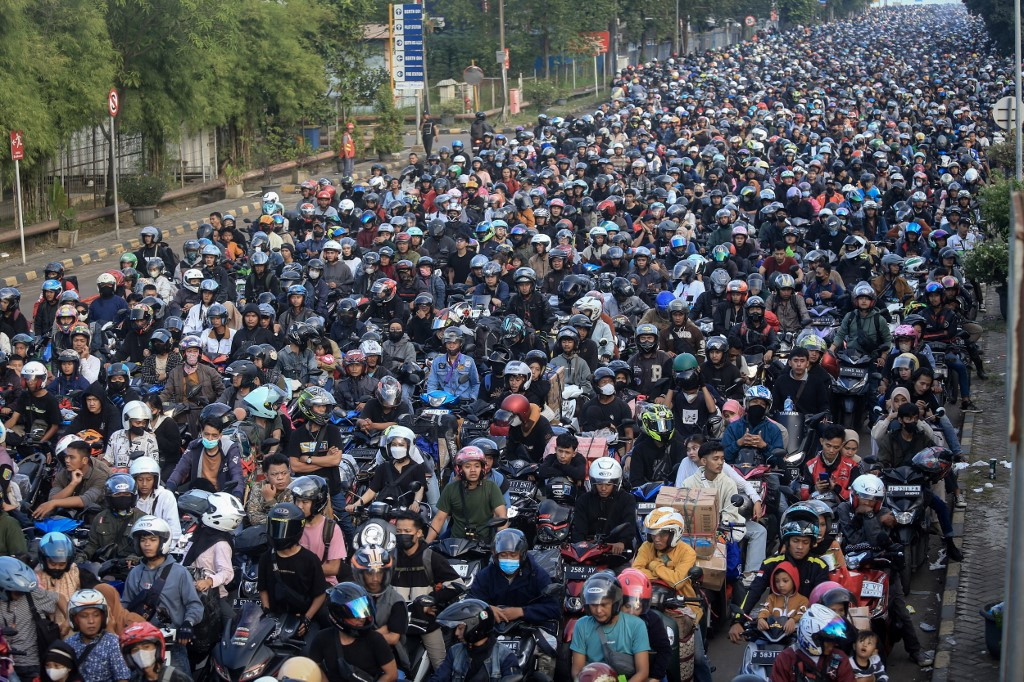
It has certainly been one of the most arduous if not treacherous Idul Fitri holiday travel seasons in recent years.
Over the weekend, as thousands of homebound travelers left Jakarta toward cities throughout Java and elsewhere, motorists were stuck for hours in a 25-kilometer long traffic jam in Betung, South Sumatra, trying to reach the provincial capital of Palembang, which also serves as a way station to other major cities on the island. For more than 12 hours traffic came to a standstill, forcing holiday travelers to set up camp along the road.
For other Sumatra-bound travelers, their problems began early in Java, as also over the weekend, thousands of travelers on their motorbikes were forced to wait for hours at Ciwandan Port, waiting for their ferry ride to Lampung. Several travelers, after waiting for at least five hours under the scorching sun, while fasting, collapsed from exhaustion and heatstroke and were evacuated to a nearby medical center. Things were so bad that on Sunday, President Joko “Jokowi” Widodo instructed Transportation Minister Budi Karya Sumadi to pay special attention to riders stuck at Ciwandan.
With the rainy season still in full swing, this year’s holiday travel was also slowed down by heavy weather. Days before the Idul Fitri travel reached its peak, the ground beneath a section of the Bogor-Ciawi-Sukabumi (Bocimi) toll road collapsed, forcing the authorities to initially shut down the thoroughfare, before allowing one lane to open just for the holiday travel.
Turns out that the Bocimi landslide was a sign of a trouble ahead.
On Monday morning, as the flow of traffic bound for eastern Java eased off, and with millions of travelers already safely arriving home, tragedy struck. For years, the contra-flow policy, which allows several west-bound lanes along the Cikampek toll road to be used for east-bound traffic, has been successful in easing congestion along the northern coast trans-Java toll road network.

Every Thursday
Whether you're looking to broaden your horizons or stay informed on the latest developments, "Viewpoint" is the perfect source for anyone seeking to engage with the issues that matter most.
By registering, you agree with The Jakarta Post 's Privacy Policy
for signing up our newsletter!
Please check your email for your newsletter subscription.
However, on Monday with only two west-bound lanes still open for traffic heading toward Jakarta, a driver of a minivan carrying 12 people, unaware of the incoming traffic from the opposite direction, perhaps from fatigue or a mechanical problem decided to make a stop on the emergency stopping lane and was struck by a speeding bus. The resulting collision ignited a fire and all 12 passengers in the minivan were killed in the tragedy.
It was one of the worst traffic accidents involving holiday travel in recent years and certainly the first major accident resulting from the National Police ’s contra-flow policy. Police in charge of the Cikampek toll road, seemingly admitting an error in their decision, immediately suspended the traffic-engineering policy and promised to conduct a thorough investigation. We can certainly ask why the police appeared to half-heartedly apply the contraflow policy by leaving one lane open for westbound traffic.
Did the police let down their guard, knowing that the holiday travel had reached its peak on Saturday and passed without any major incident? We demand a thorough investigation into the crash and those responsible for any errors resulting in the loss of lives should be held accountable.
The same goes for the Bocimi toll road collapse. Whether it was shoddy construction work or force of nature, its effect on travelers is clear, the journey from Bogor to Sukabumi now takes six hours to complete, up significantly from a mere 1.5 hours prior to the landslide.
In the spirit of Idul Fitri, we certainly can forgive the mistakes made by authorities in charge of administering our holiday travel, but those affected and injured by the crash or who have had their travel delayed by government incompetence should not forget their deadly mistakes.
This weekend, millions of travelers will return to Jakarta and other major cities in Java. The risks remain the same, so we call on the authorities to step up their game. Our lives are literally on the line.
For now, we can only wish everyone a safe journey and happy and peaceful Idul Fitri celebration.
Eid Mubarak.
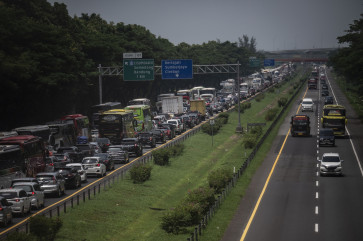
Holidaymakers told to return early to avoid congestion'
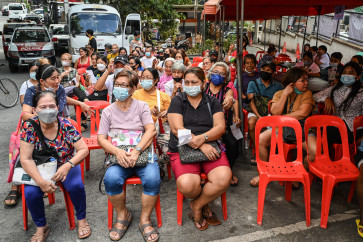
Asia-Pacific gets new weapon in fight against drug-resistant TB

Government denies Israeli reports on normalizing ties
Related articles, prabowo’s campaign chief visits megawati twice on idul fitri, with wary eye, china courts president-elect prabowo, airlangga loyalists close ranks in contest for golkar chair, 71 percent of indonesians to participate in ‘mudik’ this year: ministry, thousands leave greater jakarta during nyepi holiday, related article, more in opinion.

EU-Indonesia relations need a new dynamic
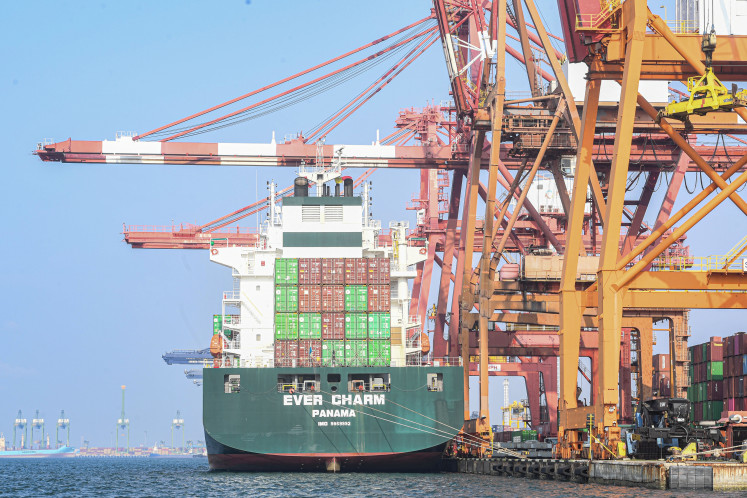
How Southeast Asia can stay in the global trade sweet spot
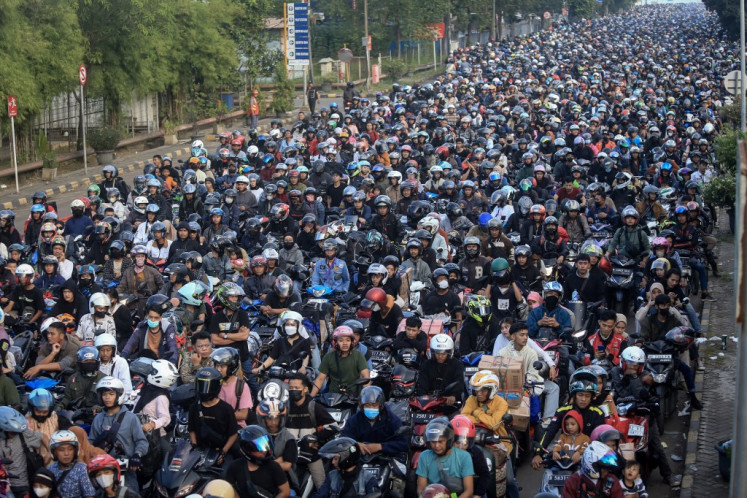
Jokowi bows out of Idul Fitri visit to Megawati
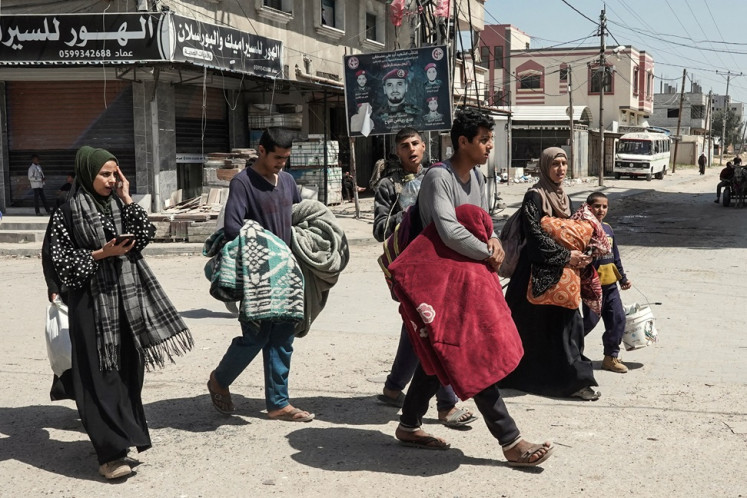
Israel pounds Gaza as Iran attack threat puts region on edge

Beijing slams US-Japan-Philippines summit, says South China Sea actions 'lawful'
Us steel shareholders approve nippon buyout opposed by biden, former pdi-p politician maruarar to join gerindra, china's commerce minister chides 'protectionist' europe, pope to visit indonesia, png, east timor, singapore in september, educated and unemployed: india's angry young voters.
- Jakpost Guide To
- Art & Culture
- Today's Paper
- Southeast Asia
- Cyber Media Guidelines
- Paper Subscription
- Privacy Policy
- Discussion Guideline
- Term of Use
© 2016 - 2024 PT. Bina Media Tenggara
Your Opinion Matters
Share your experiences, suggestions, and any issues you've encountered on The Jakarta Post. We're here to listen.
Thank you for sharing your thoughts. We appreciate your feedback.

IMAGES
VIDEO
COMMENTS
OVERALL RISK: MEDIUM. When the overall risk is in question, Jakarta can be considered not so safe city. Tourists need to exercise a high degree of caution in Jakarta, and this is all due to the high threat of terrorist attack. Your security is at danger at all times, so you need to pay special attention.
Read the entire Travel Advisory. Do Not travel to: The provinces of Central Papua (Papua Tengah) and Highland Papua (Papua Pegunungan) due to civil unrest. ... Be aware of your personal safety and security at all times. Enroll in the Smart Traveler Enrollment Program ... Jakarta 10110, Indonesia. Telephone +(62)(21) 5083-1000. Emergency
How Safe Is Jakarta: Crime. Violent crime isn't common in Jakarta, however it does exist. Assault and home robberies tend to take place at dusk and dawn. While most robbers don't intend to harm victims physically, some have been known to use weapons. Therefore keep windows locked - not open - at night, and ensure doors and residences ...
Much of Indonesia is safe to travel. Around 5,889,031 tourists arrived in the country by 2022 as stated in Indonesia's statistical report, and travellers mostly had a positive experience. ... Jakarta - Jakarta is a GREAT city to visit and pretty safe as well. But the air quality is definitely not ideal.
Suggested for you. JAKARTA, 23 November 2022 - As an immediate response to recover tourism industry and relaxing the international travel restrictions, COVID-19 Task Force issued the Circular Letter of the COVID-19 Task Force Number 25 of 2022 concerning Health Protocols for International Travels during the COVID-19 Pandemic.
Safe Travel dibuat dan dikembangkan oleh Kementerian Luar Negeri RI. Dapatkan informasi praktis yang Anda perlukan ketika berada di luar negeri untuk berbagai keperluan, seperti wisata, studi, umrah/haji, atau bekerja. ... DKI Jakarta 10110 Indonesia. No Telp : (+62 21) 3441508 - 3813186. Email: [email protected]. BERLANGGANAN INFO KAMI ...
Jakarta is generally very safe, but it's essential to be aware of potential pitfalls. Scams Targeting Tourists. Beware of overly friendly individuals offering unsolicited help or services. Overcharging is also common, so always agree on prices beforehand, especially with street vendors or rickshaw drivers.
Jakarta does indeed offer a higher standard of safety compared to various other Asian metropolises, but it pays to be prepared and stay on your toes. Ensuring your personal security in Jakarta is pivotal, particularly when it comes to guarding against common nuisances like tourism-related scams and petty crimes. Staying safe in Jakarta
Latest FCDO travel advice for Indonesia including on entry requirements, safety and security ... The main toll road to Soekarno-Hatta International Airport and other major roads in Jakarta can be ...
Avoid Walking Alone at Night. One of the most important safety tips for Jakarta is to avoid walking alone at night, especially in unfamiliar or poorly lit areas. Instead, opt for using reputable transportation services, such as taxis or ride-sharing apps like Grab or Gojek, which provide a safer mode of travel.
U.S. Consular Agency in Bali, Indonesia. +62-361-233-605 or +62-21-5083-1000 after hours. [email protected]. For regular updates, follow the U.S. Consulate General in Surabaya on Twitter and Facebook and the U.S. Embassy in Jakarta at Twitter and Facebook. State Department - Consular Affairs.
Location: Indonesia Event: Government Announces New Travel Restrictions Effective September 19, 2021, the Government of Indonesia (GOI) introduced new Effective September 19, 2021, the Government of Indonesia (GOI) introduced new travel requirements and COVID-19 testing procedures which will affect all travelers arriving to or traveling within Indonesia.
Women's Safety in Jakarta: The country of Indonesia is quite safe for women if you stay in the right places. Though women still struggle for equal rights in the country, being a popular tourist destination, Jakarta is relatively lenient when it comes to equality. ... Travel Tips. Safety in Indonesia - 10 Tips For a Secure and Memorable Vacation ...
Many people will travel throughout the country, including the greater Jakarta area. This may impact traffic and public transport, including airports, seaports, highways, toll roads, train and bus stations. Airports are expected to be busy. Plan your travel carefully and prepare for significant delays.
Traveling by car is the best way to get around Jakarta safely. Marielle Descalsota/Insider. The capital of Indonesia ranks as one of the least safe cities in Southeast Asia, and the 169th safest ...
Warnings and insurance. Information on health risks in Indonesia ('Health' page). The Foreign, Commonwealth & Development Office (FCDO) provides advice about risks of travel to support British ...
If your travel plans in Indonesia include outdoor activities, take these steps to stay safe and healthy during your trip. Stay alert to changing weather conditions and adjust your plans if conditions become unsafe. Prepare for activities by wearing the right clothes and packing protective items, such as bug spray, sunscreen, and a basic first ...
U.S. Consular Agency in Bali, Indonesia. +62-361-233-605 or +62-21-5083-1000 after hours. [email protected]. For regular updates, follow the U.S. Consulate General in Surabaya on Twitter and Facebook and the U.S. Embassy in Jakarta at Twitter and Facebook. State Department - Consular Affairs.
Alcohol, drugs and travel. Road safety. Road conditions and road safety vary greatly throughout the country. Driving conditions may be hazardous during the rainy season. ... For emergency consular assistance, call the Embassy of Canada to Indonesia, in Jakarta, and follow the instructions. At any time, you may also contact the Emergency Watch ...
Food is cheap in Indonesia, especially street food. If you stick to local food, then expect to pay around IDR 60,000-80,000 per day on meals. ENTRANCE FEES. Entrance fees to the National Museum and National Monument amount to just IDR 25,000.
Starting 9 June 2023 until further notice, based on SE Satgas COVID-19 No 1 Tahun 2023:; Travelers no longer need to present COVID-19 vaccination certificate or COVID-19 test result when traveling. [International Travel Update] Many countries have opened their borders for international tourists. Please ensure you have read all the information completely and have fulfilled travel regulations in ...
Home /; Jakarta; Jakarta. Type: Embassy Street Address: Sentral Senayan 2, 10th Floor, Jl Asia Afrika No 8, Gelora Bung Karno, Jakarta Pusat 10270, Indonesia Postal Address: PO Box 2349 JKT 10024, Jakarta 10210, Indonesia Telephone: (+ 62 21) 2995 5800 Alternate Telephone: Mobile Number: Emergency Number: Fax Number: (+ 62 21) 5797 4578 Email: [email protected] Web Site: https://www.mfat ...
Far from the areas to avoid in Jakarta, there are many very safe and friendly neighborhoods to stay. Among the best areas to stay in Jakarta, real estate agencies mainly cite: Kemang, nicknamed the "Bali of Jakarta". Kelapa Gading which is one of the most chic and expensive areas of Jakarta. menteng.
Safe journey. Over the weekend, as thousands of homebound travelers left Jakarta toward cities throughout Java and elsewhere, motorists were stuck for hours in a 25-kilometer long traffic jam in ...